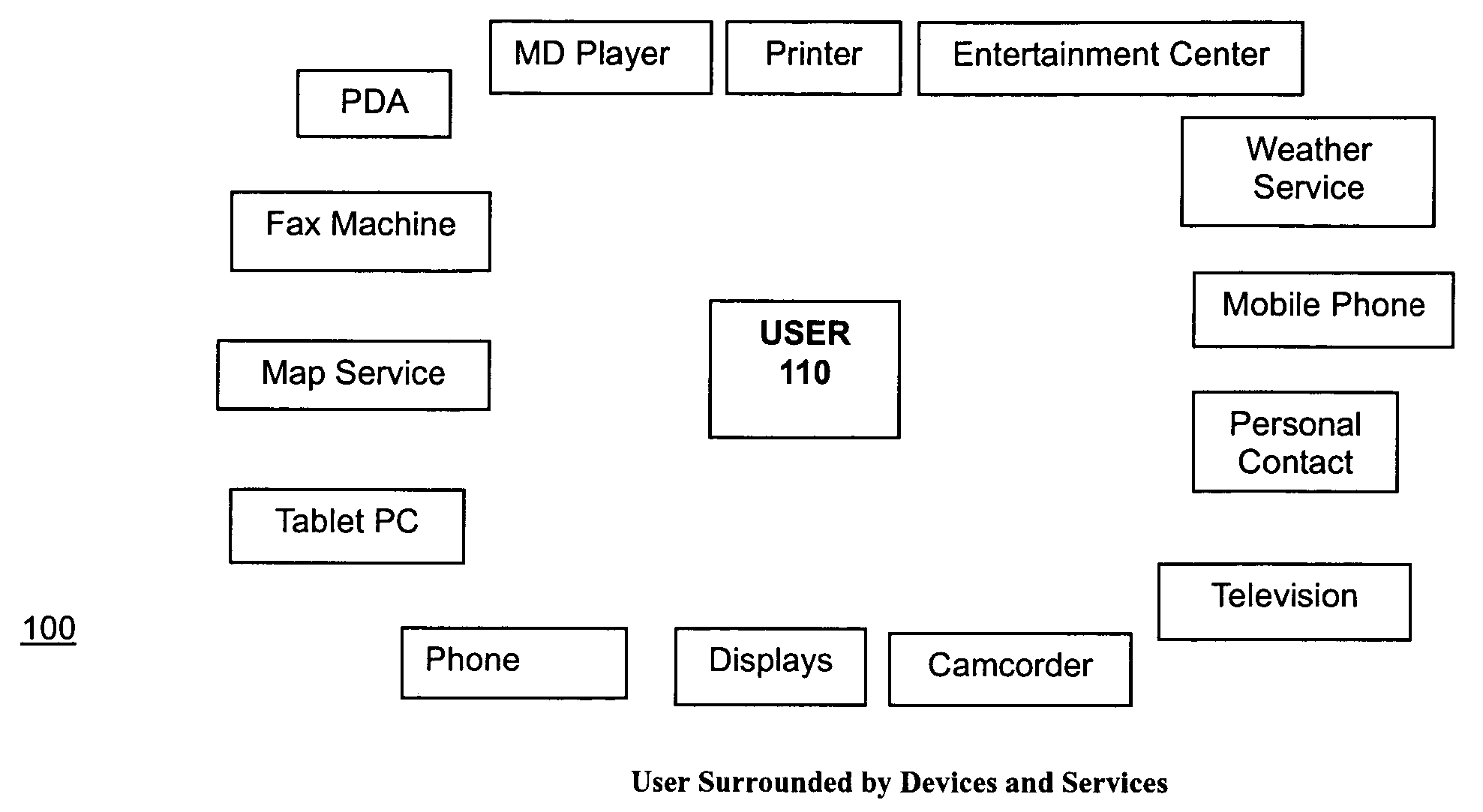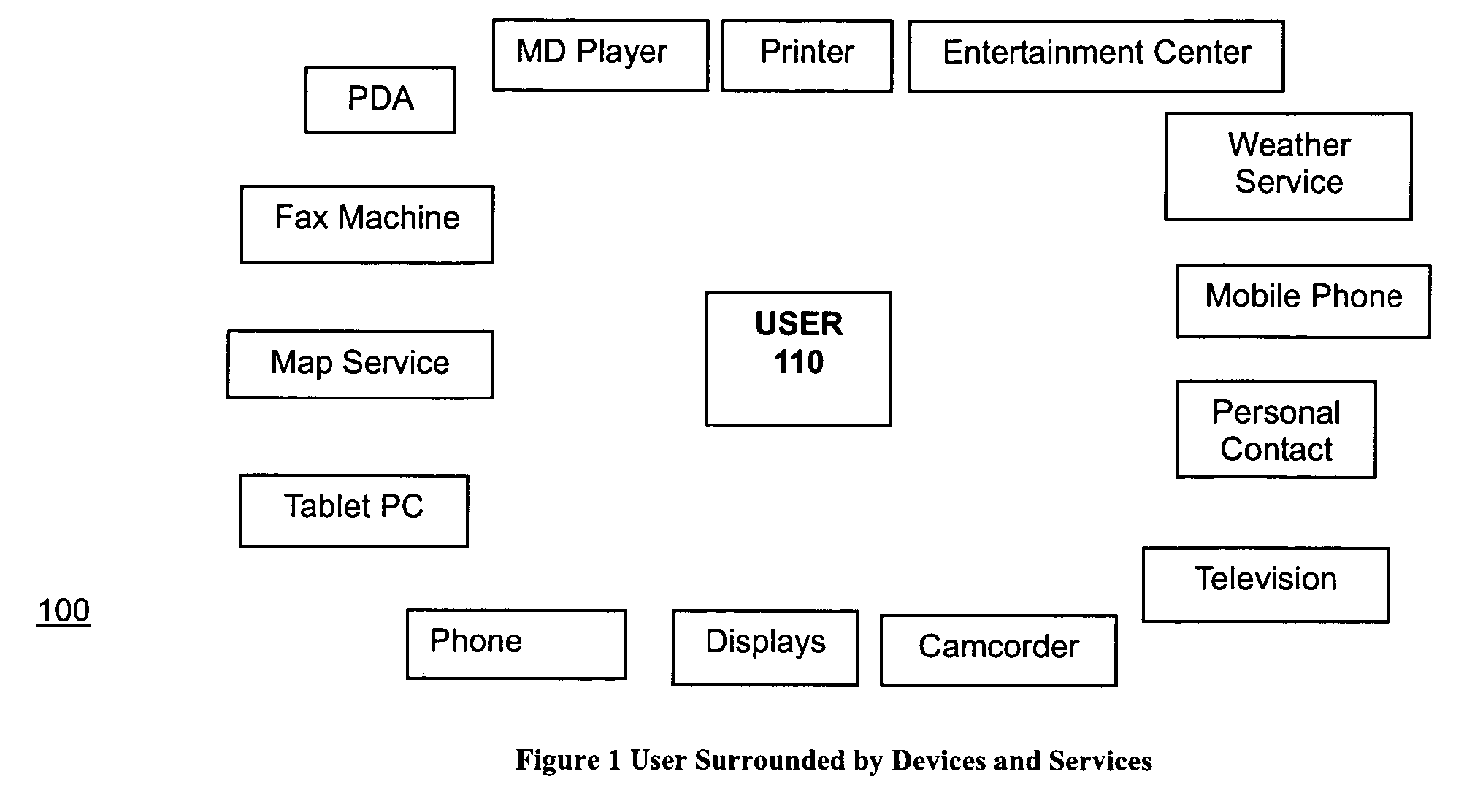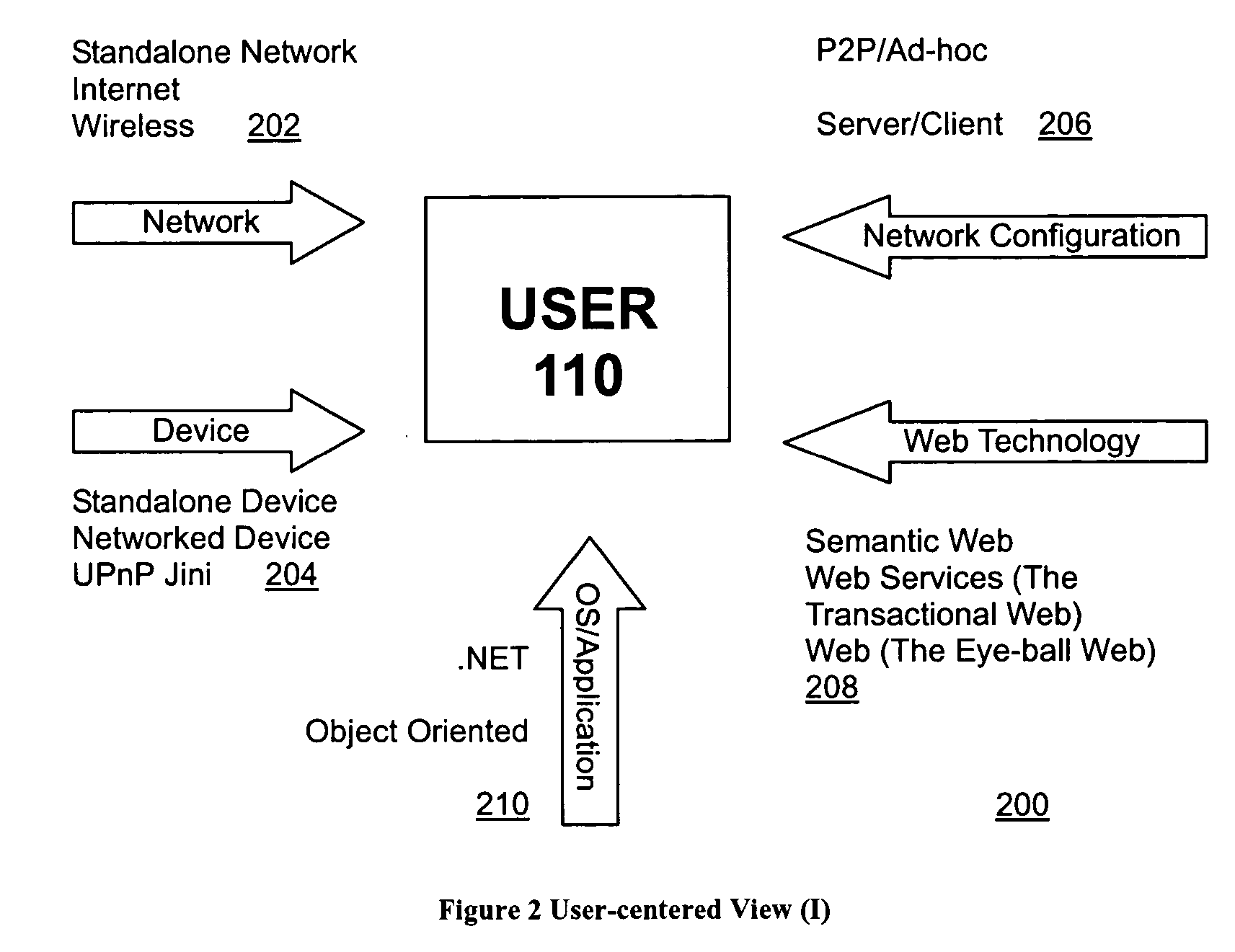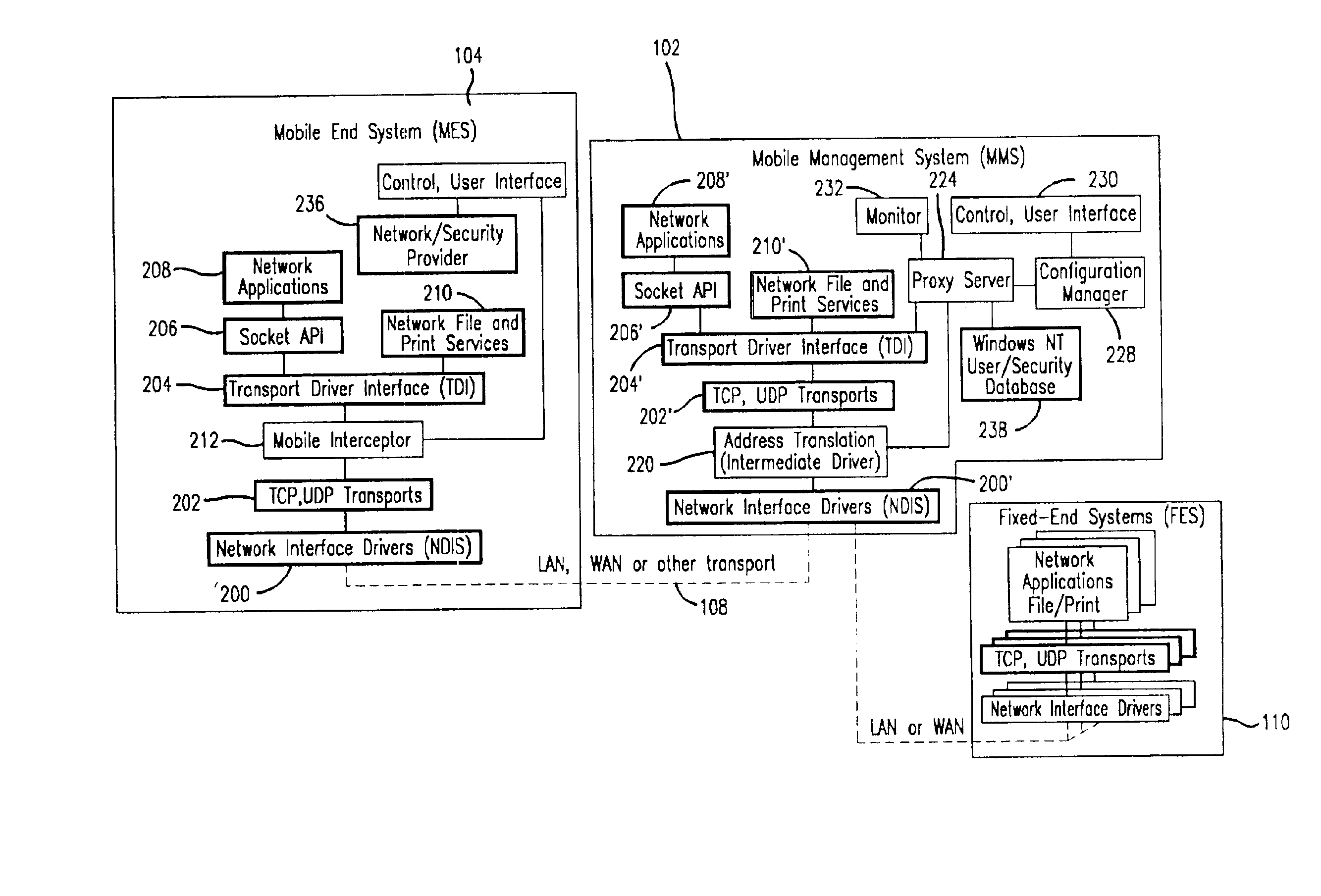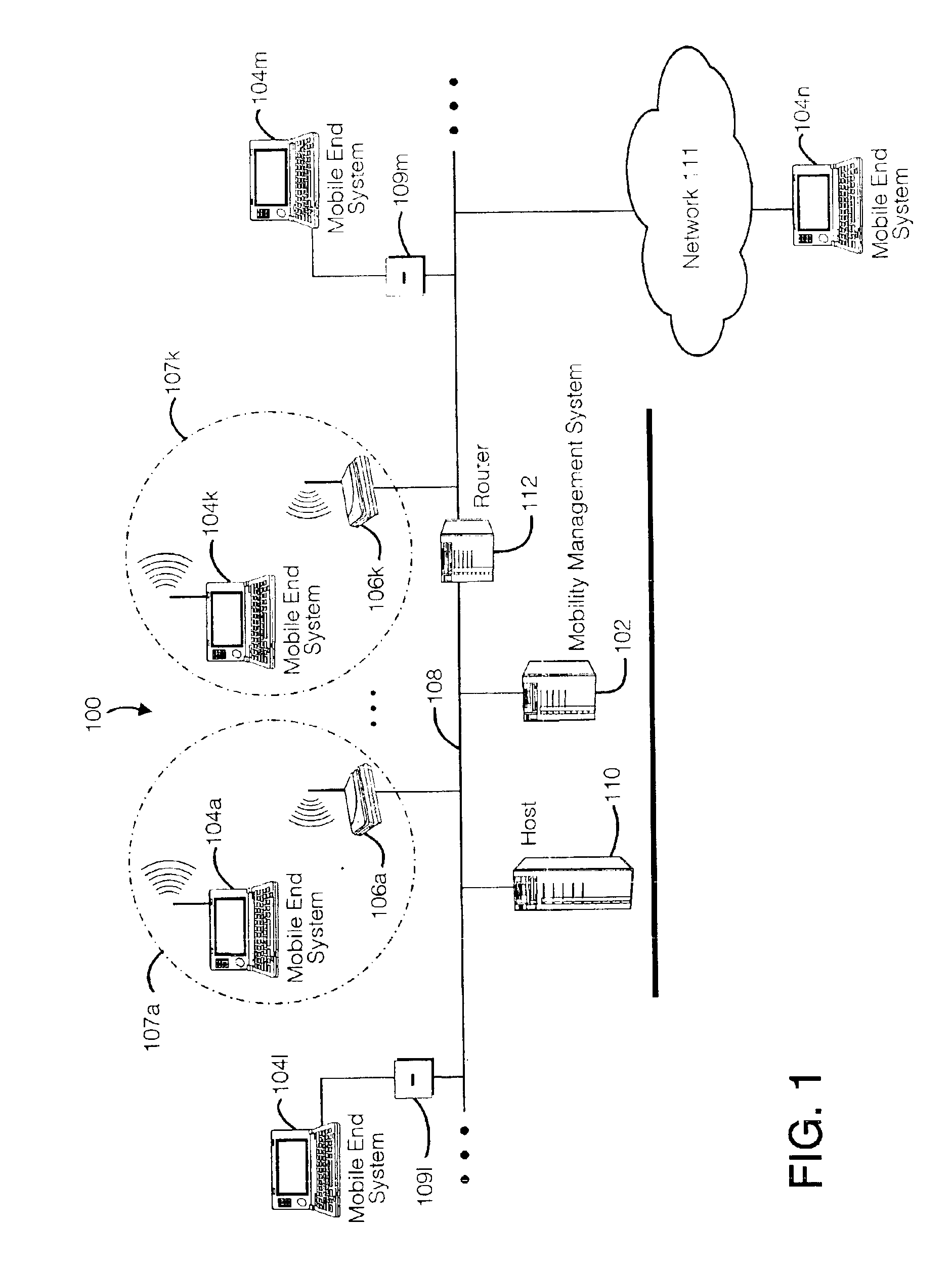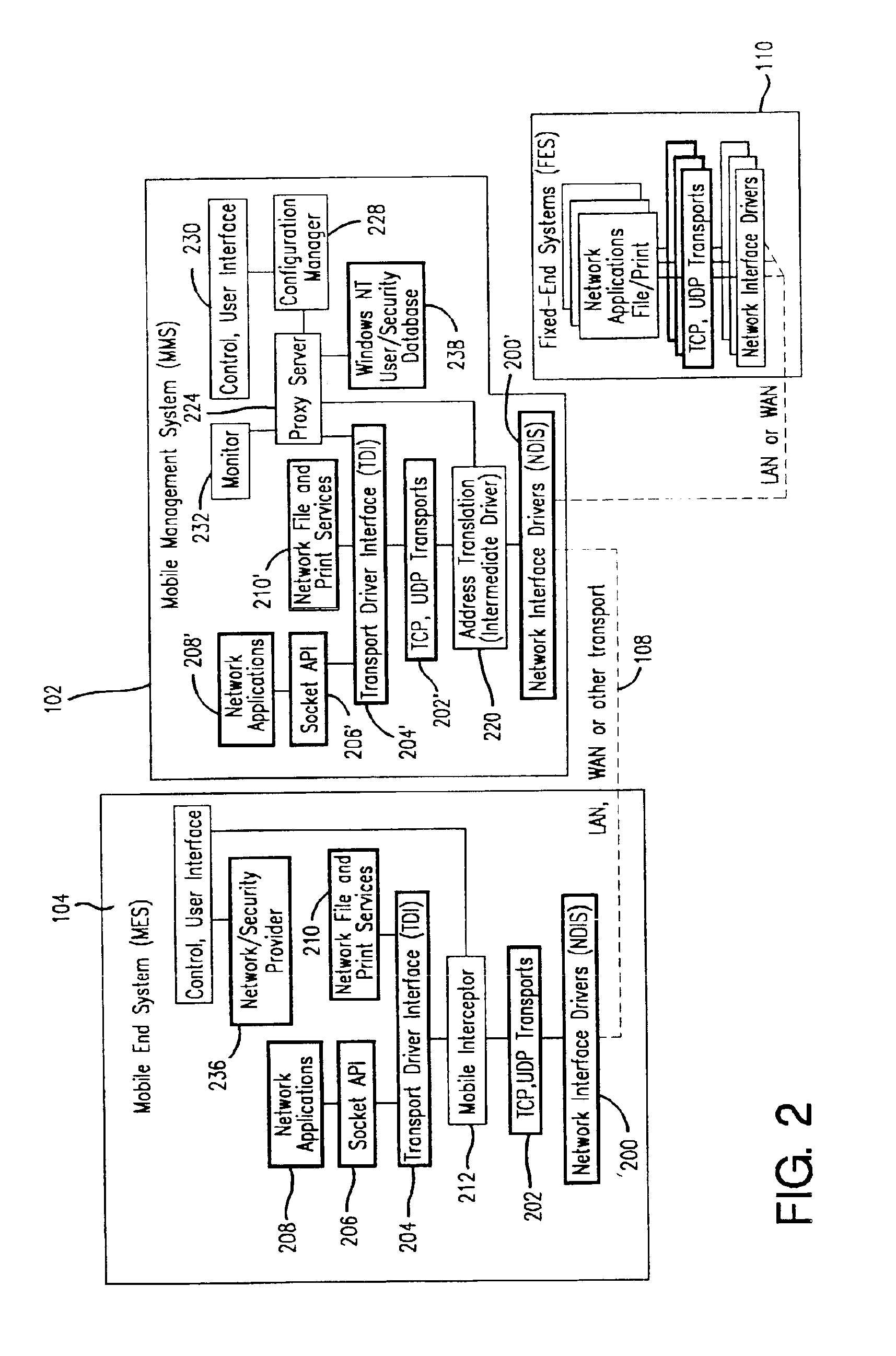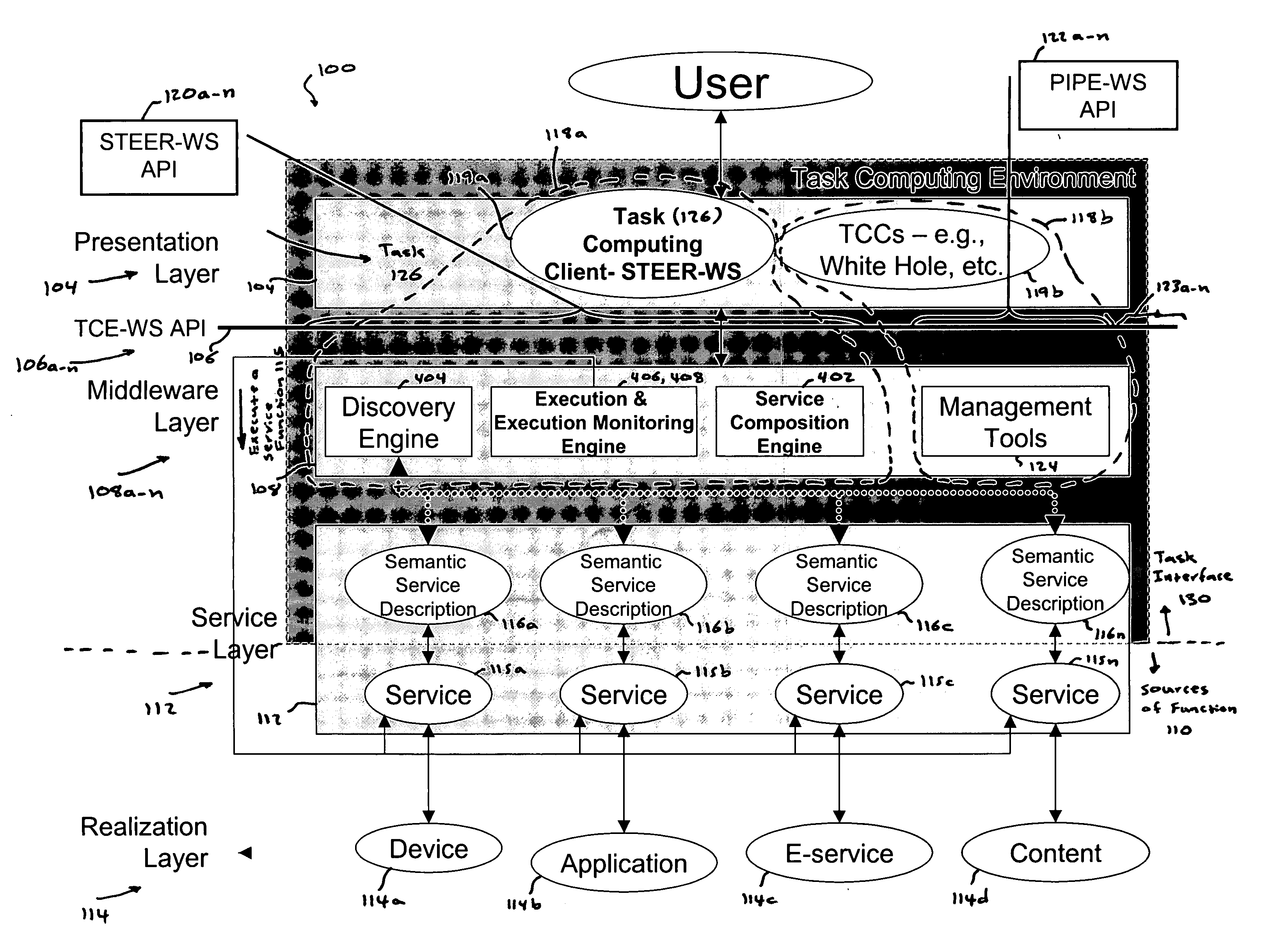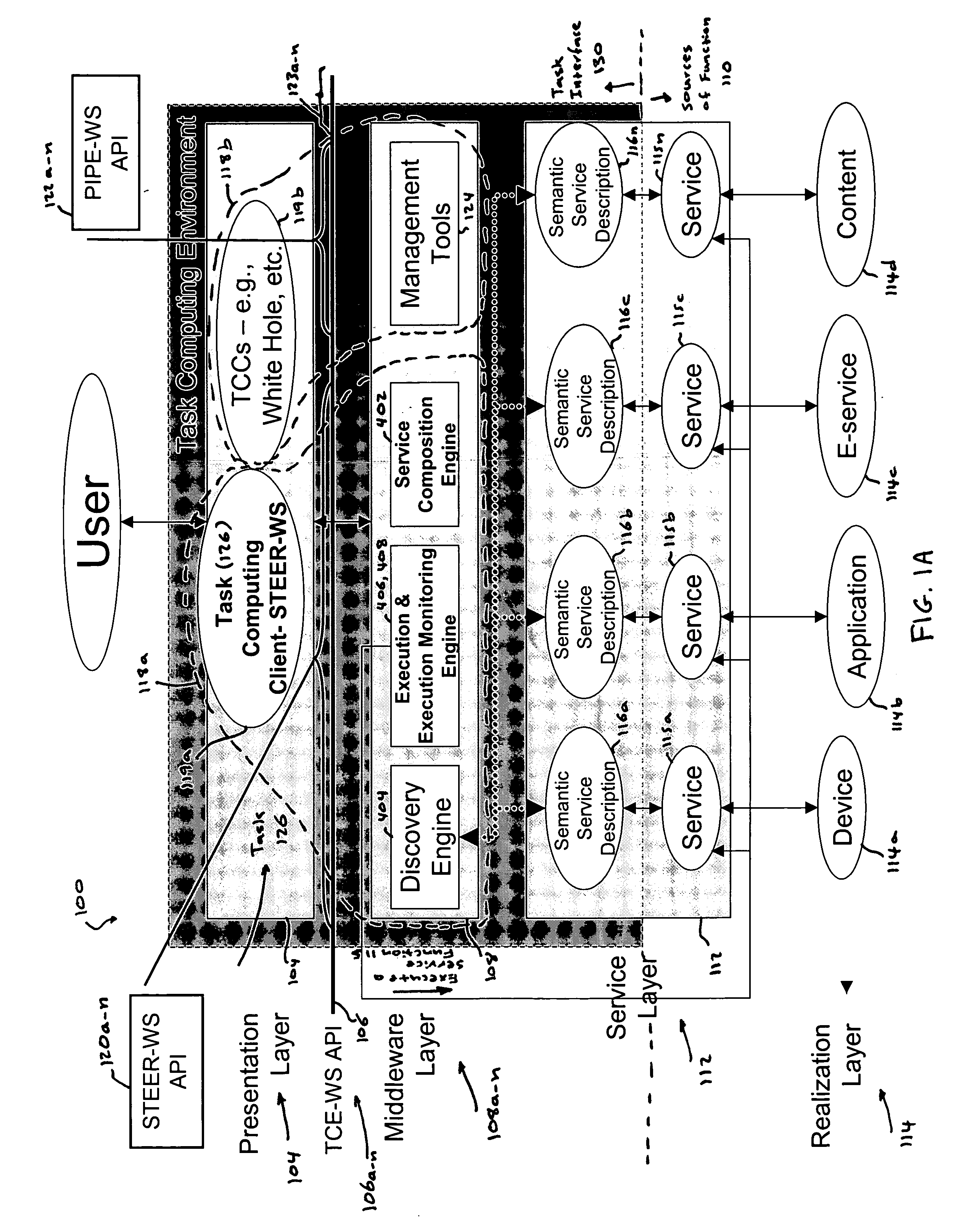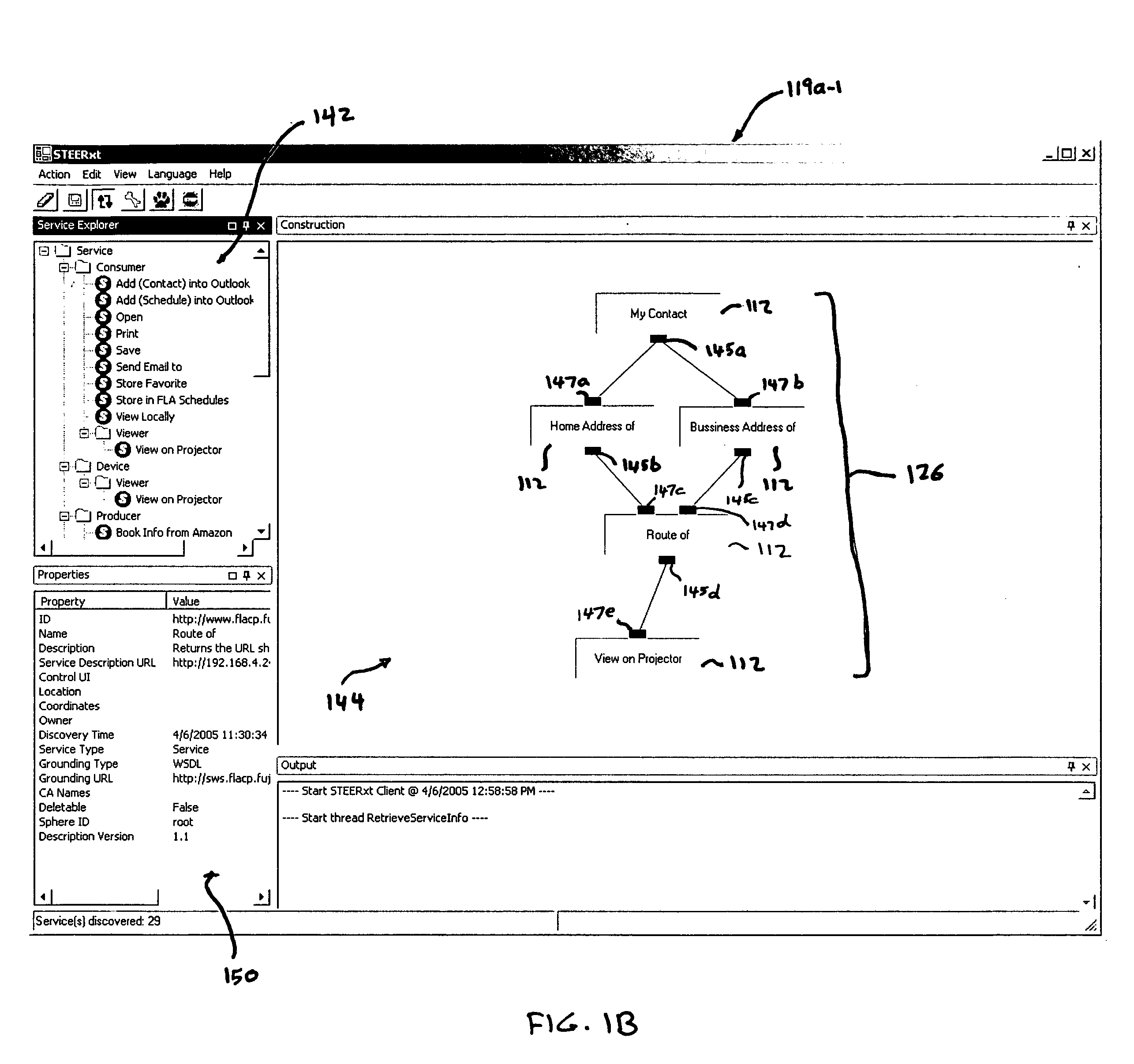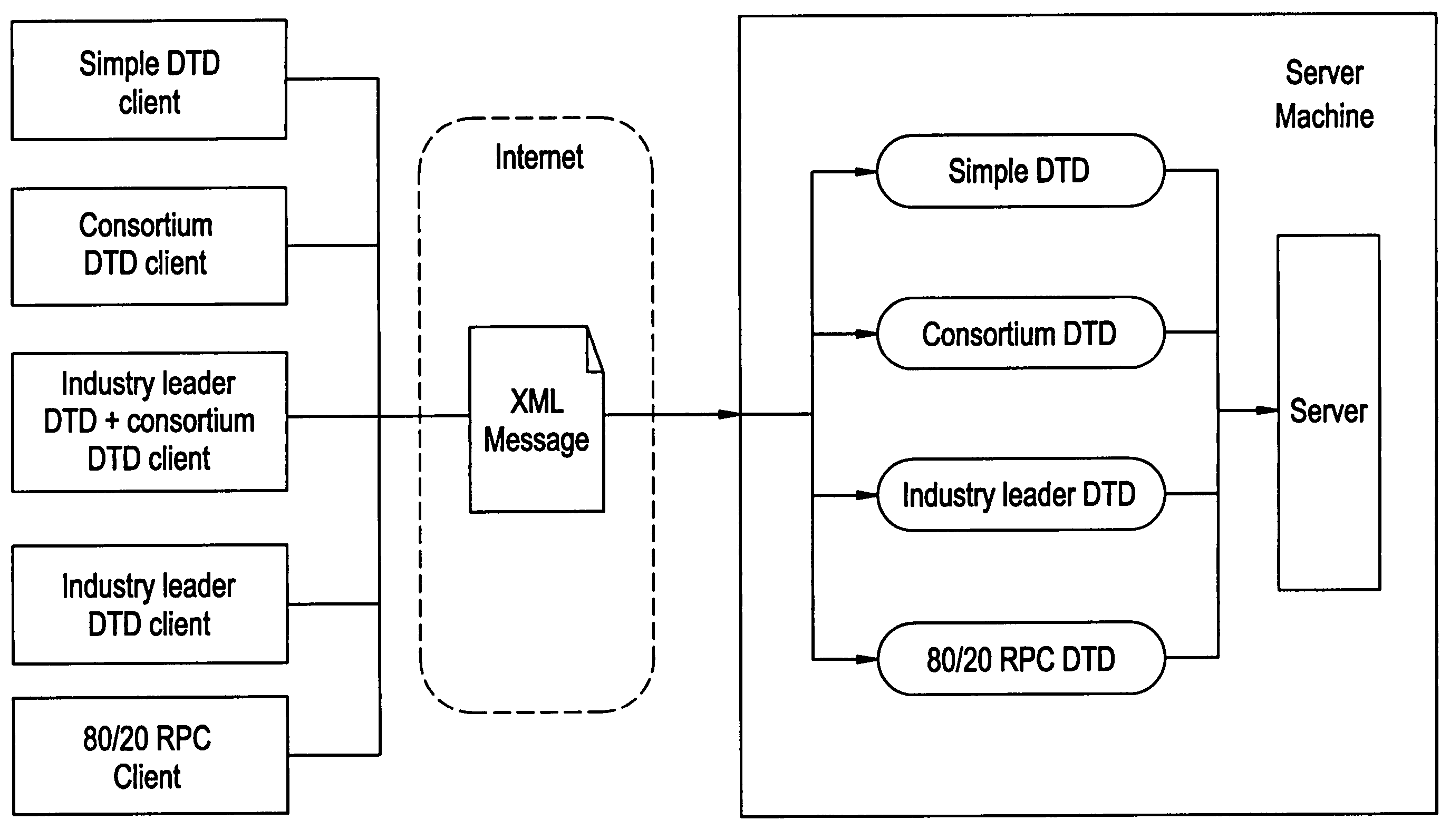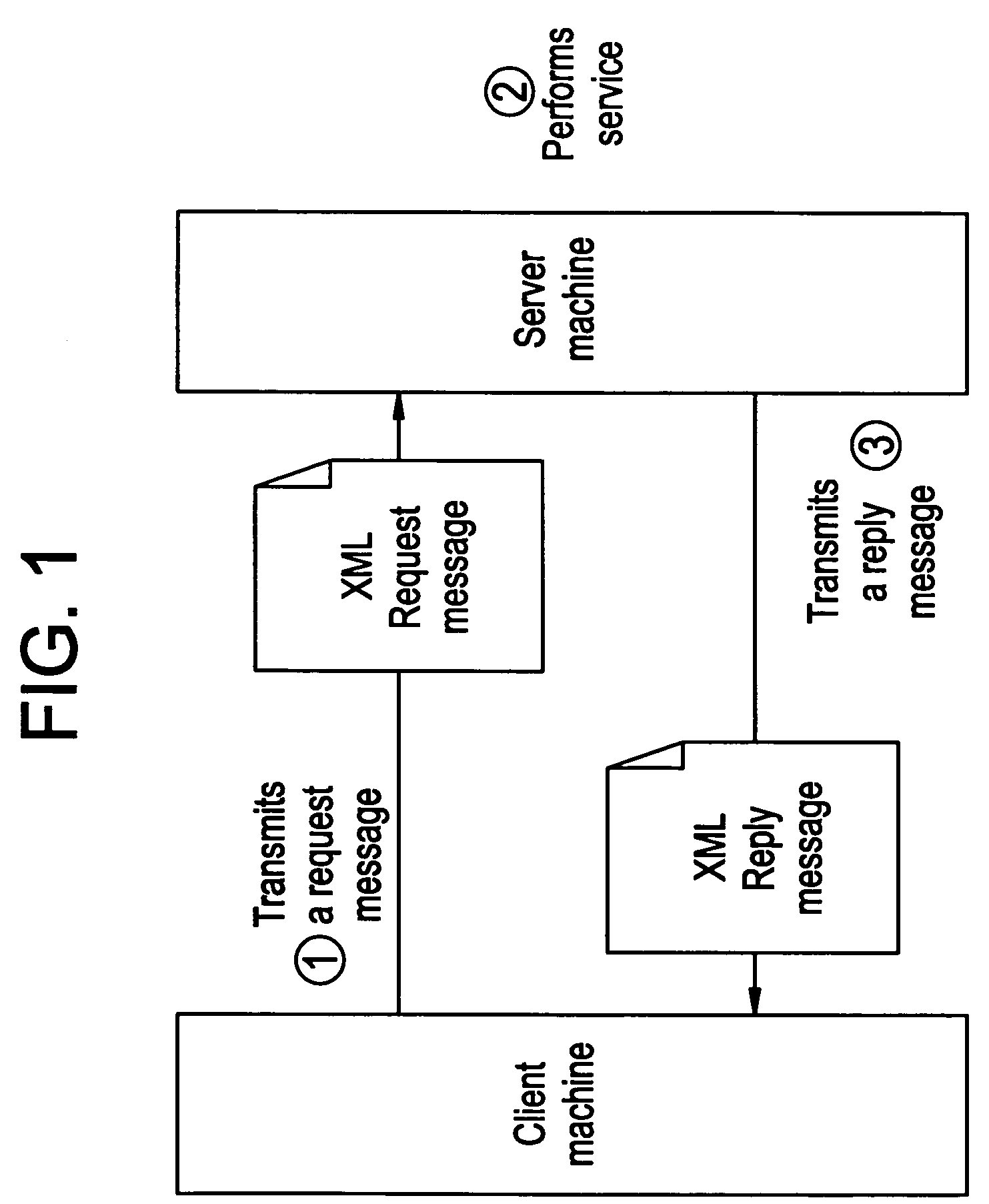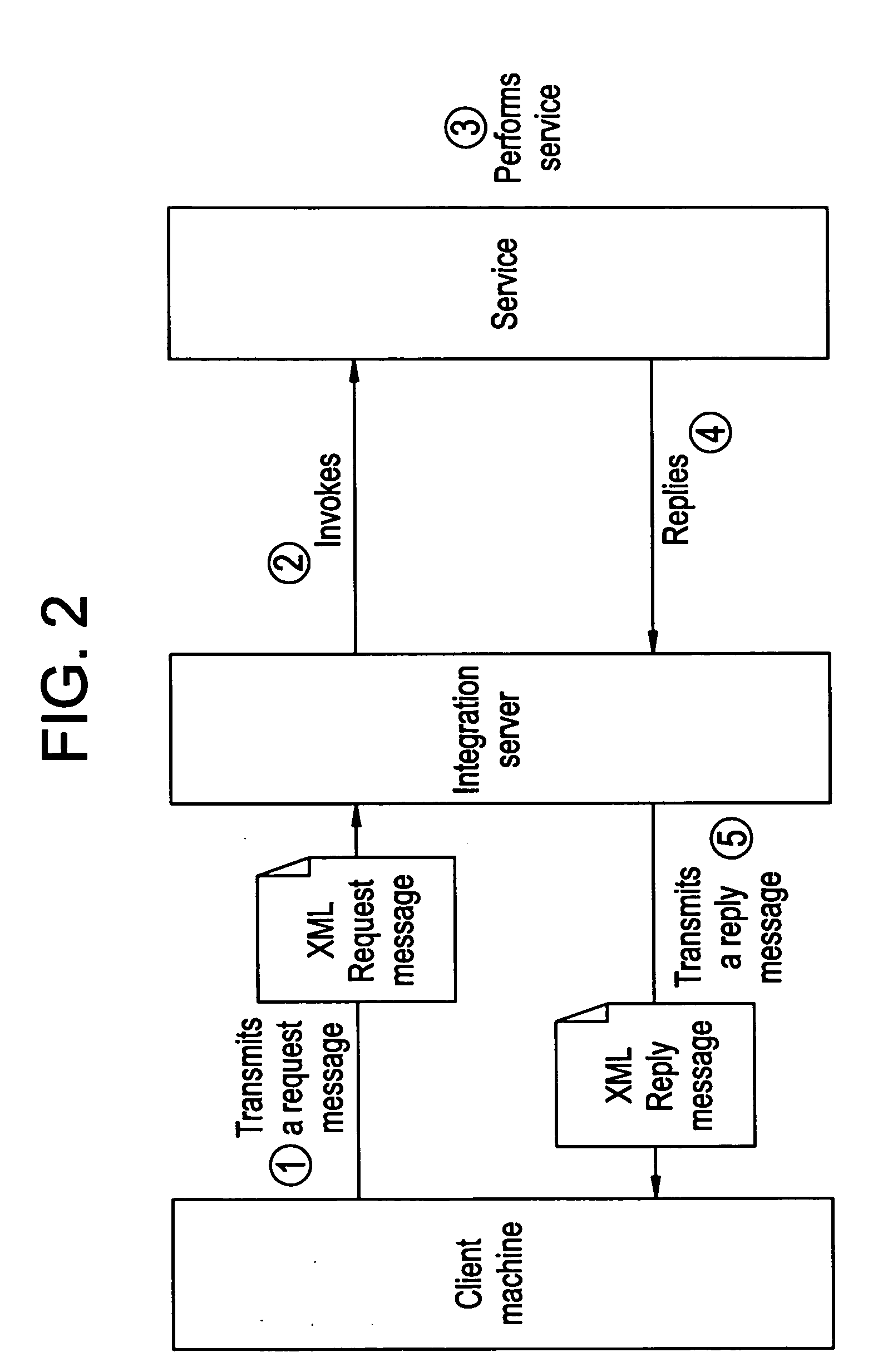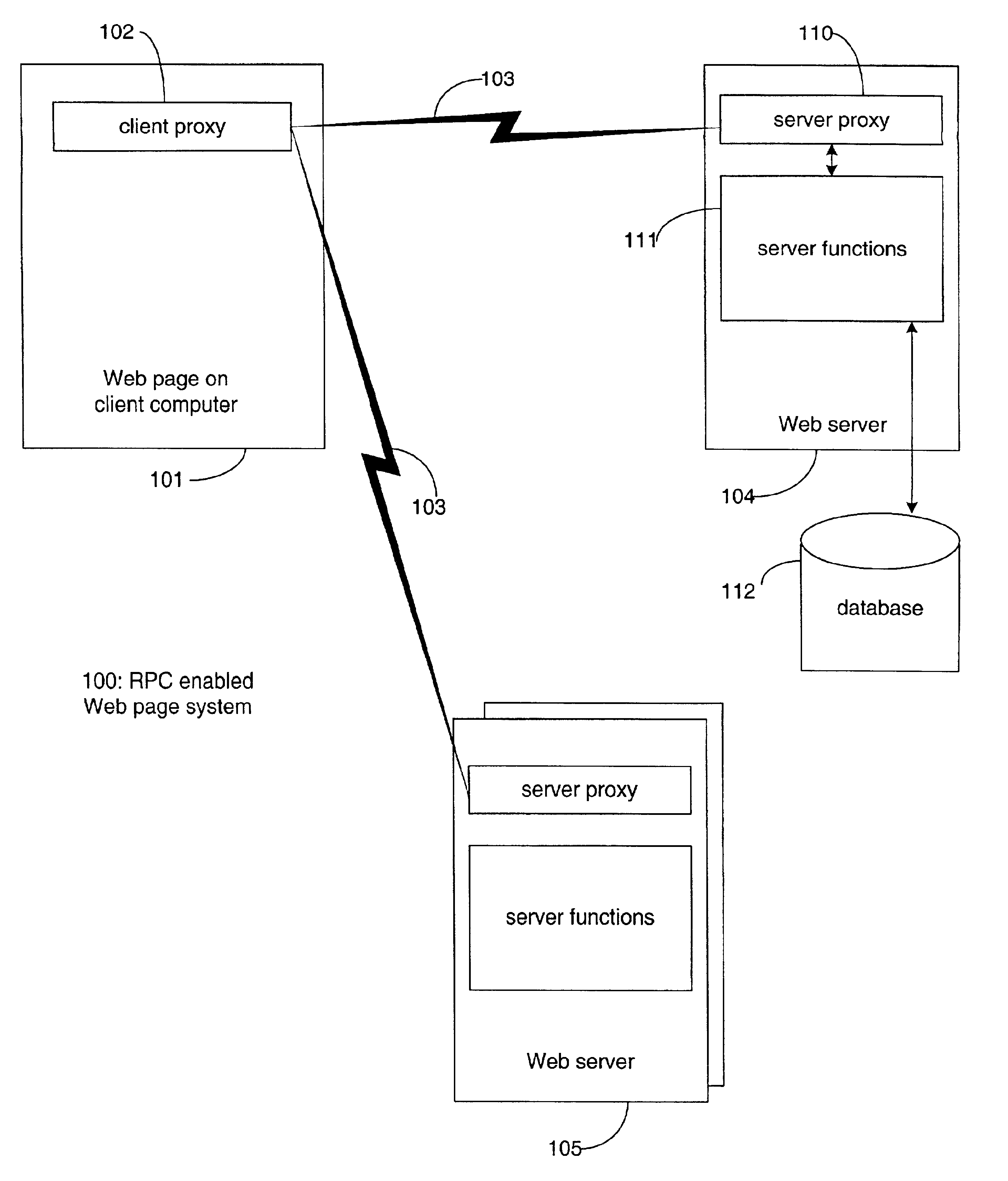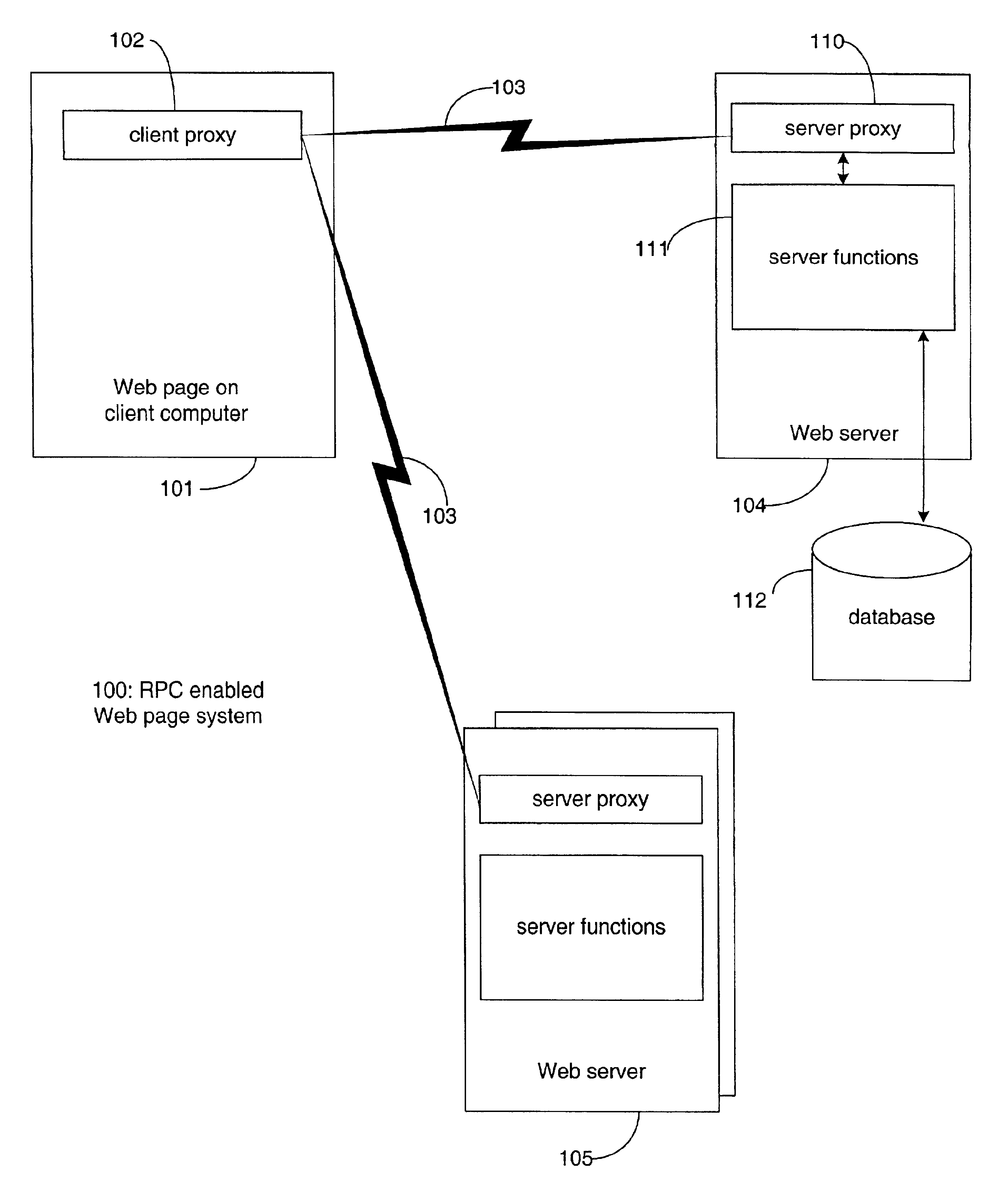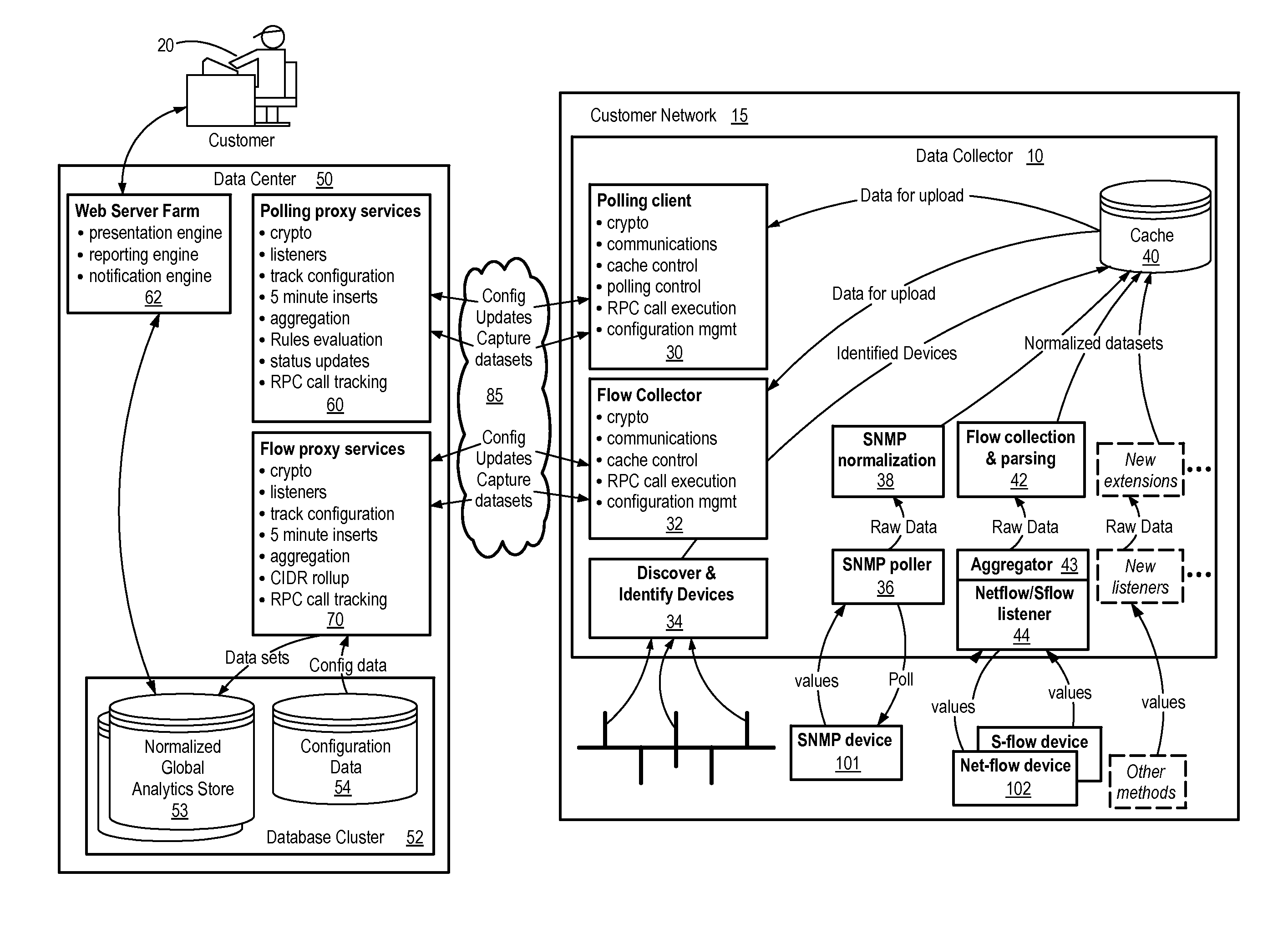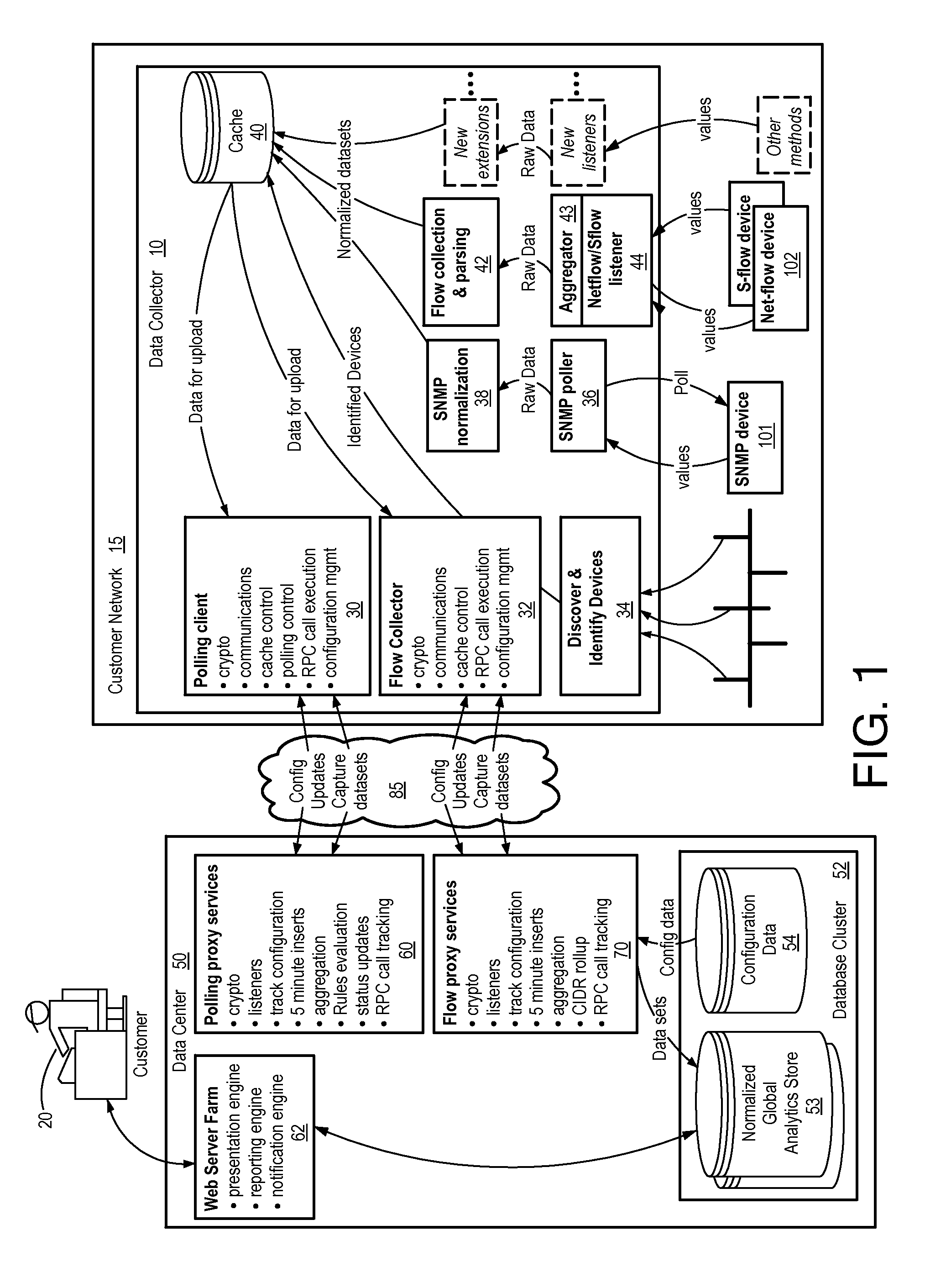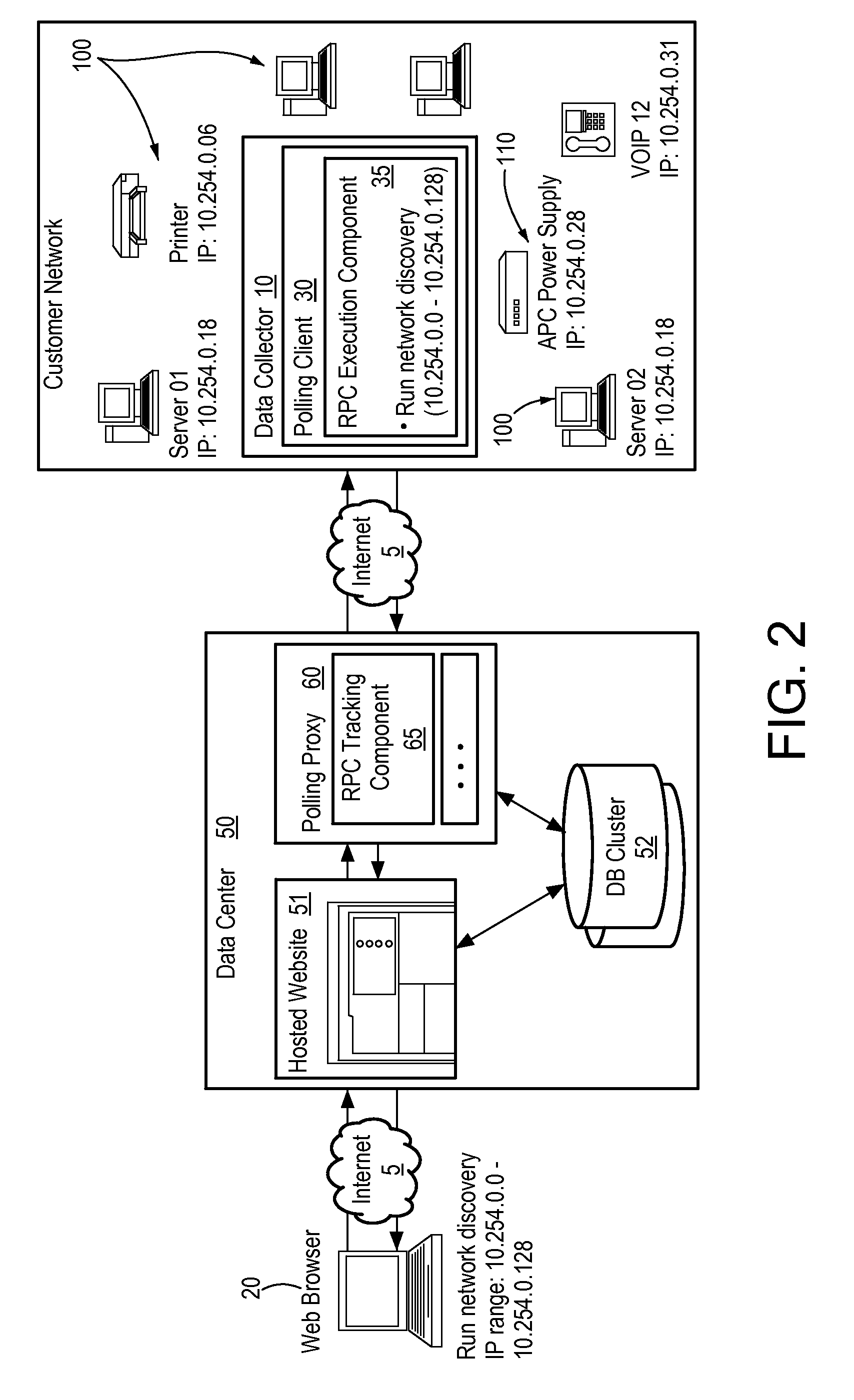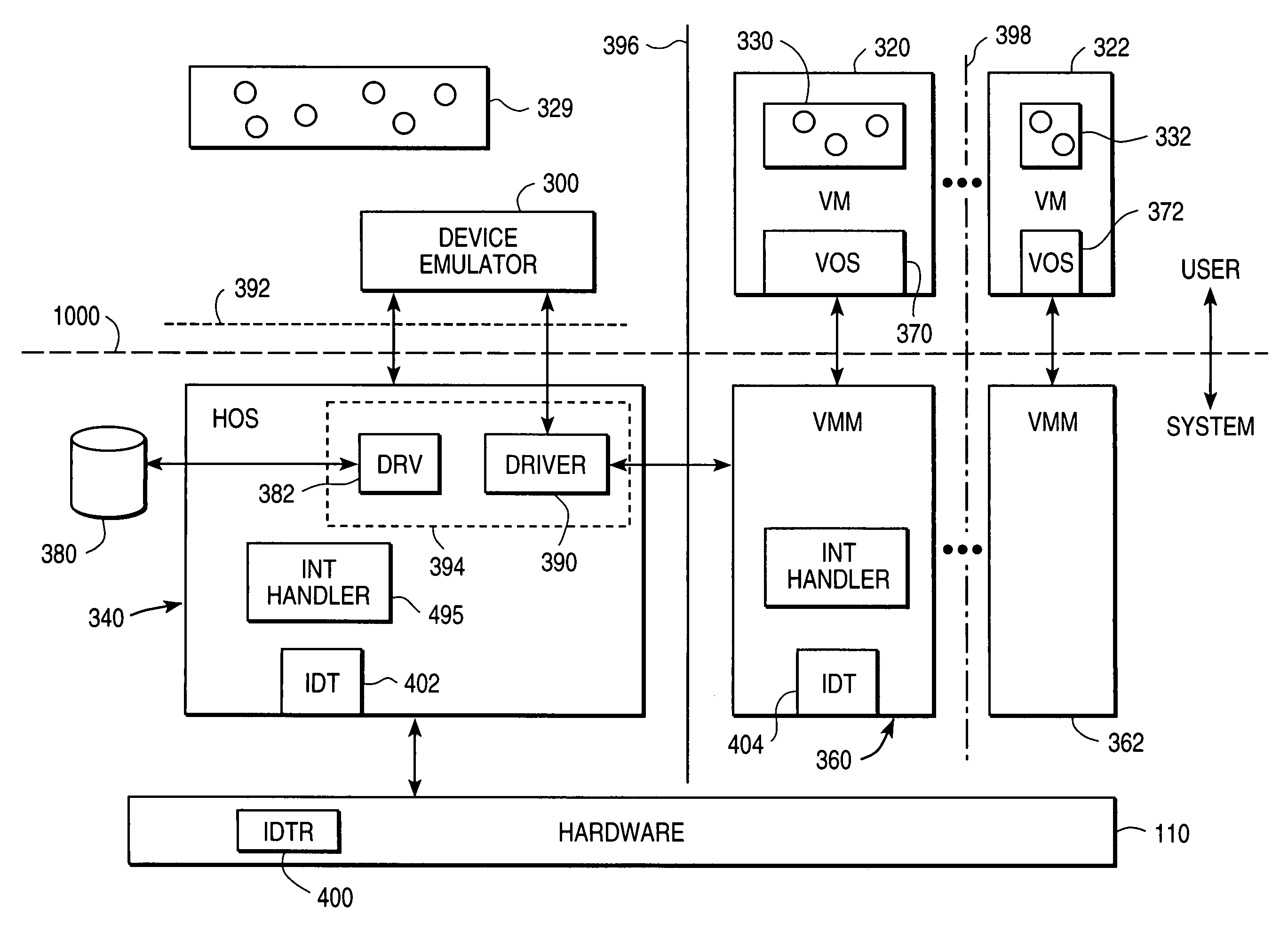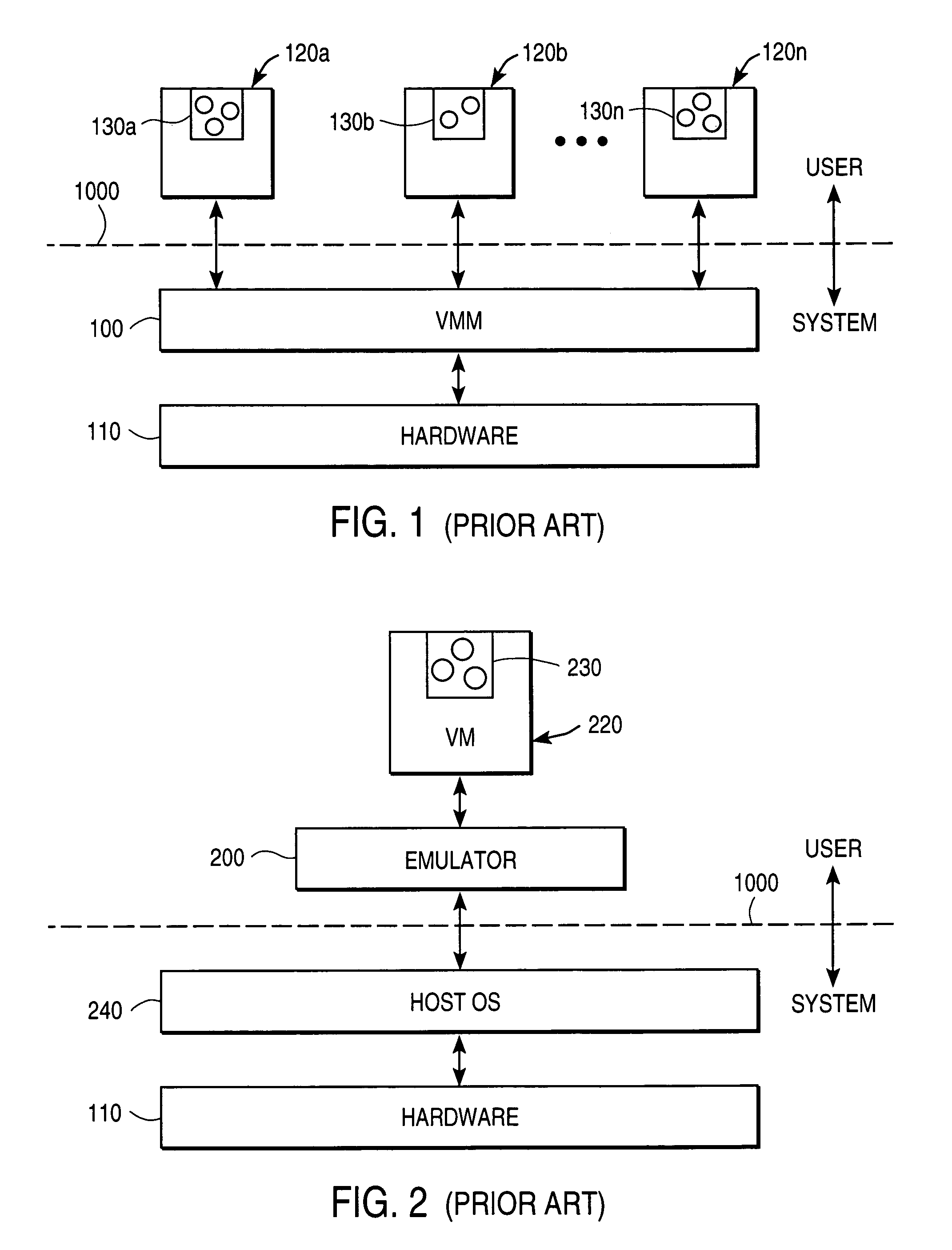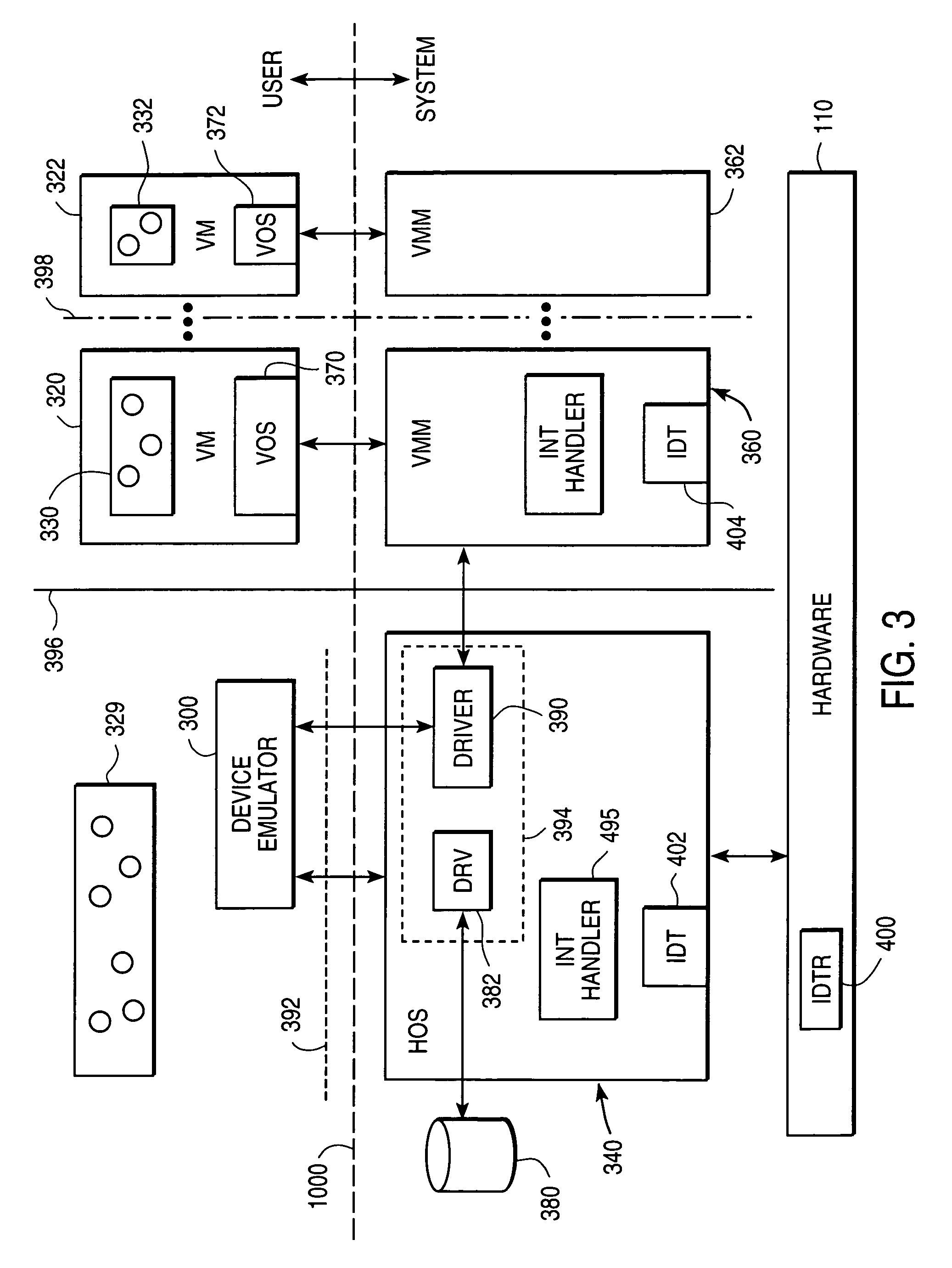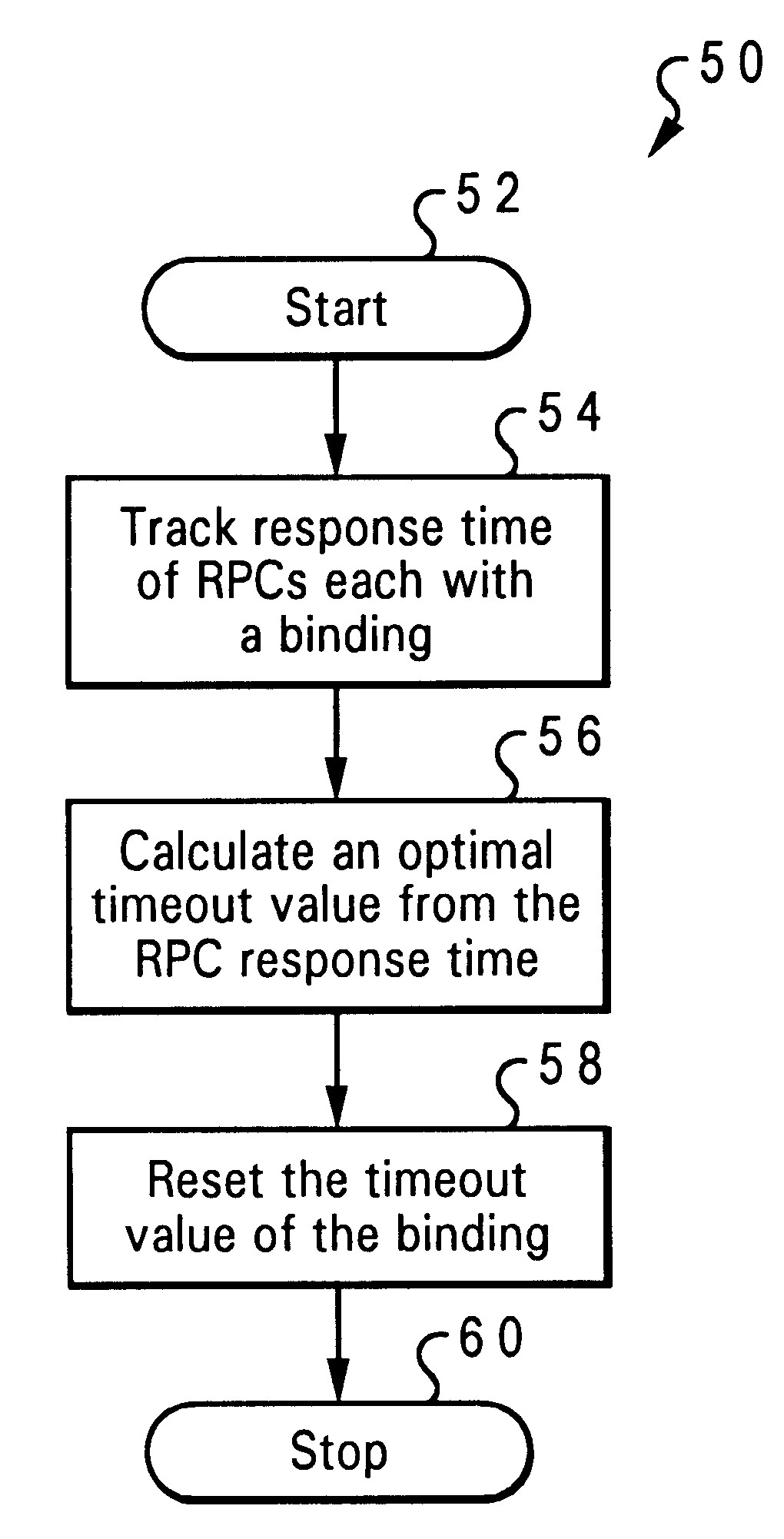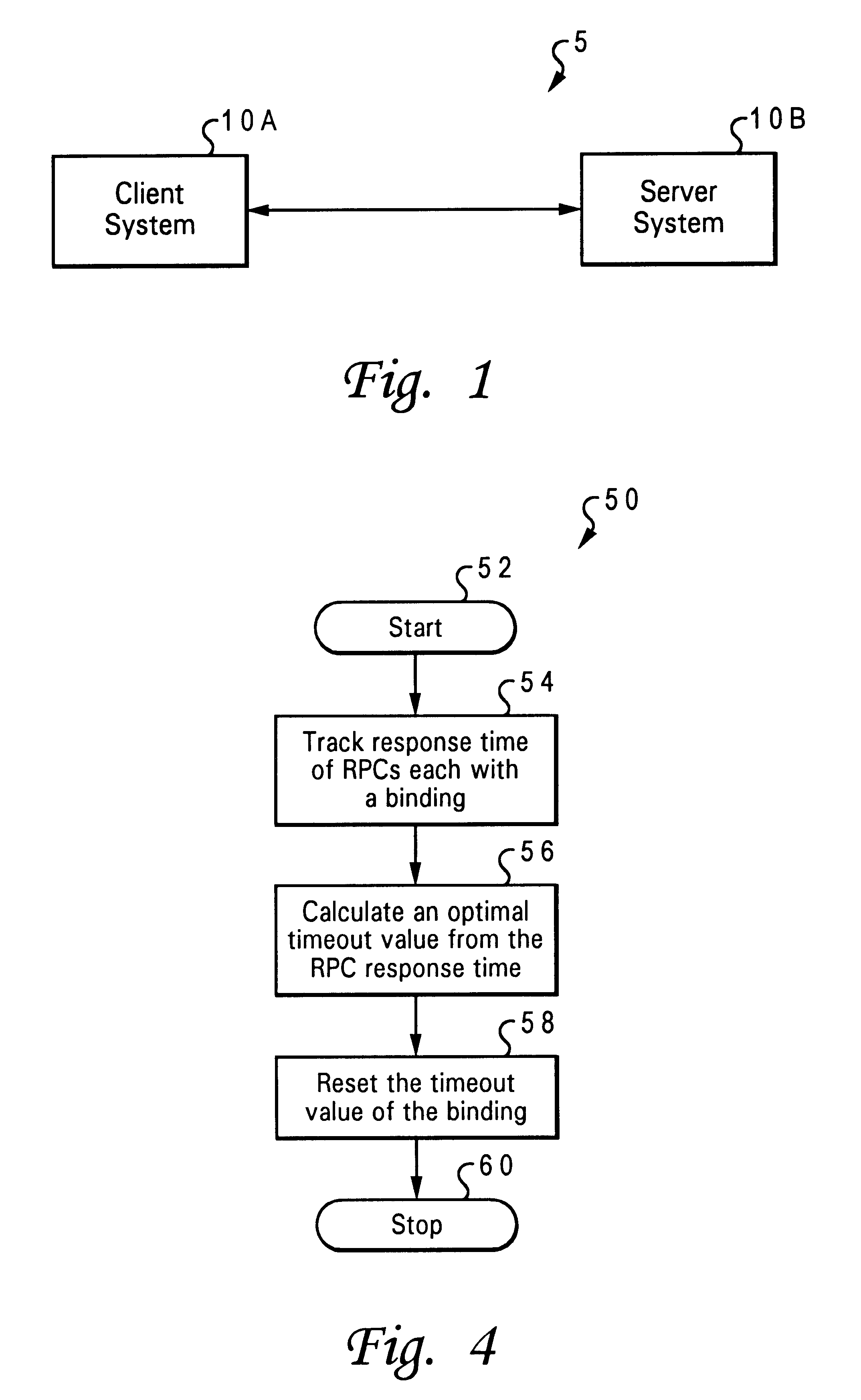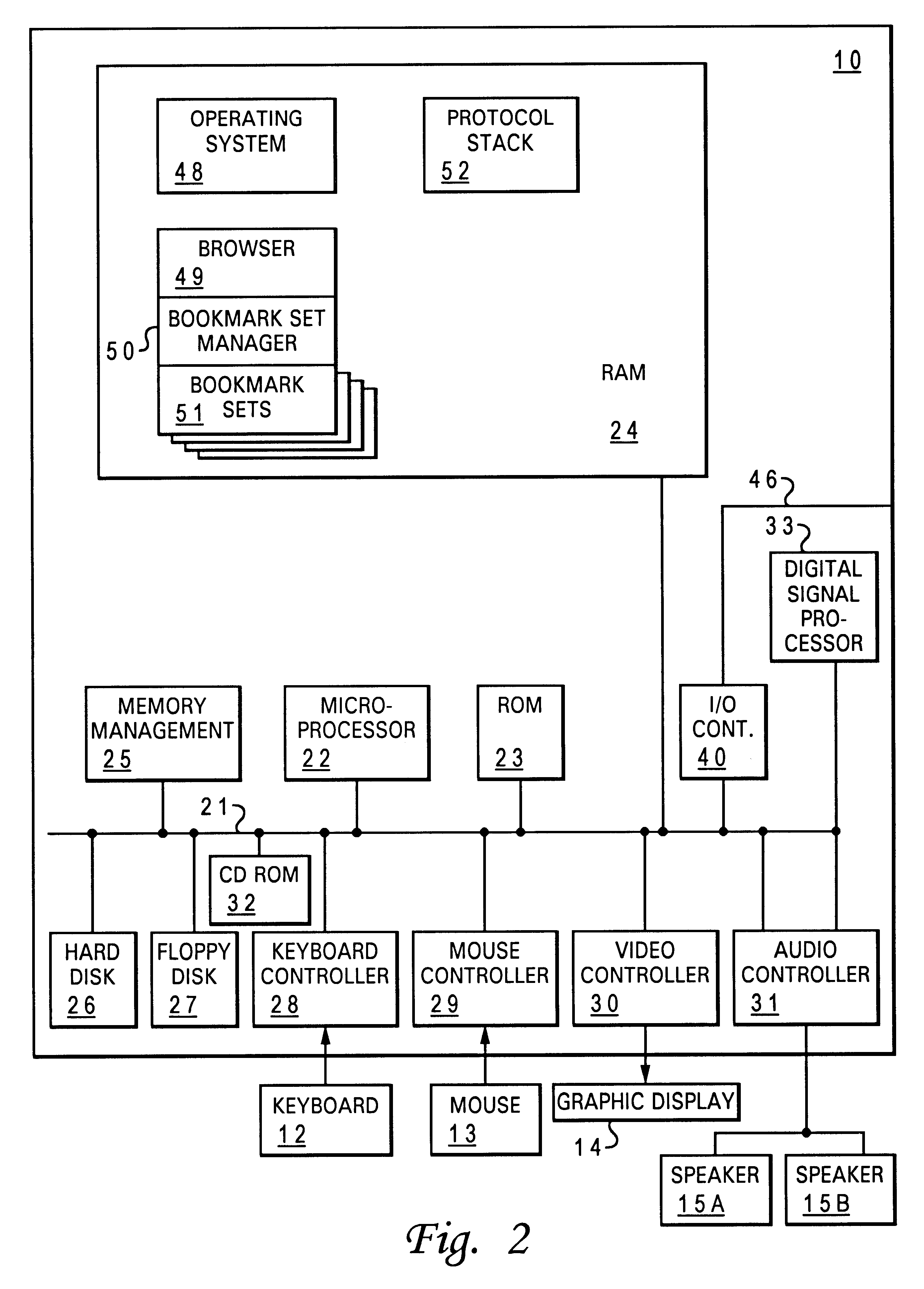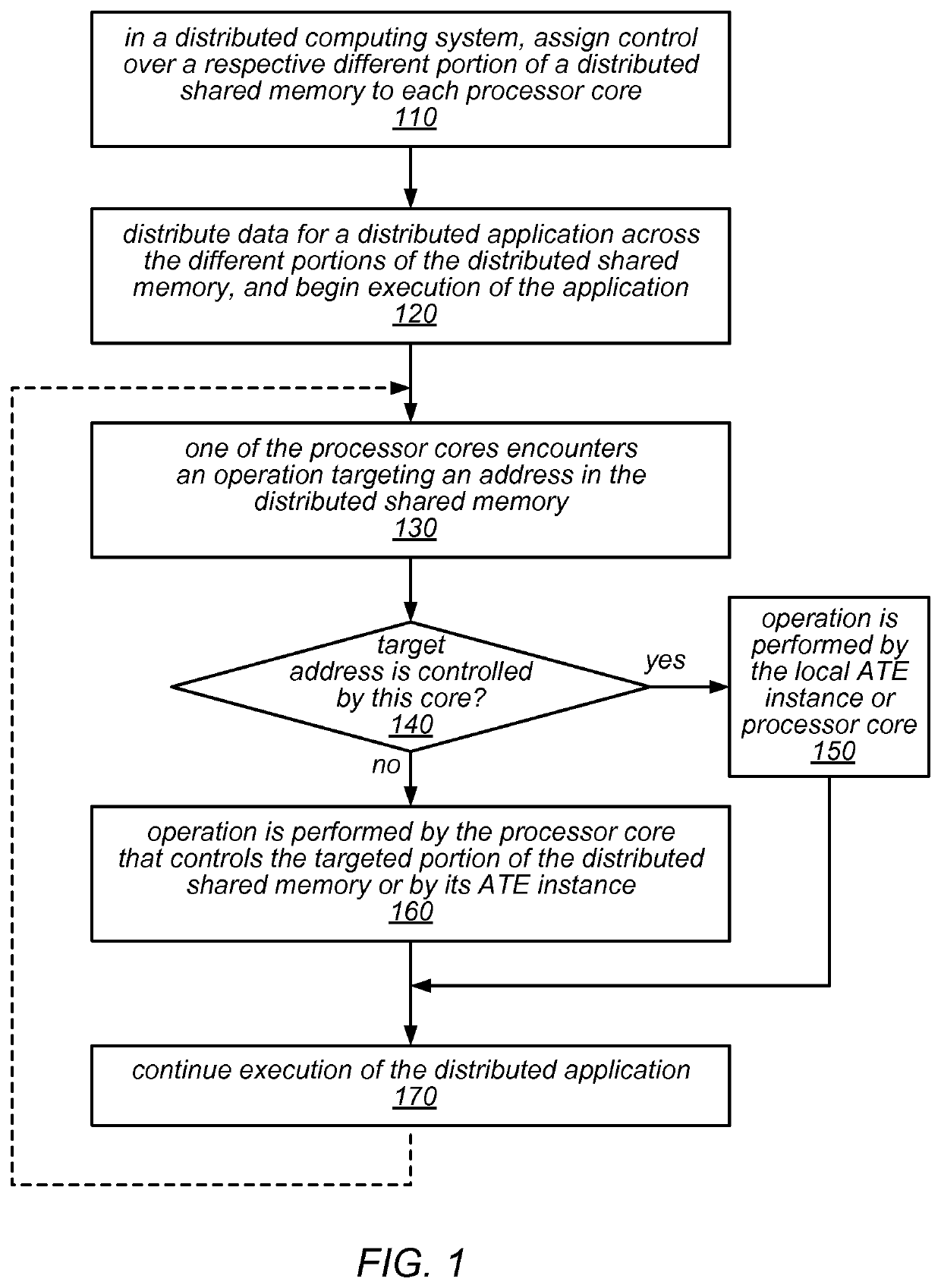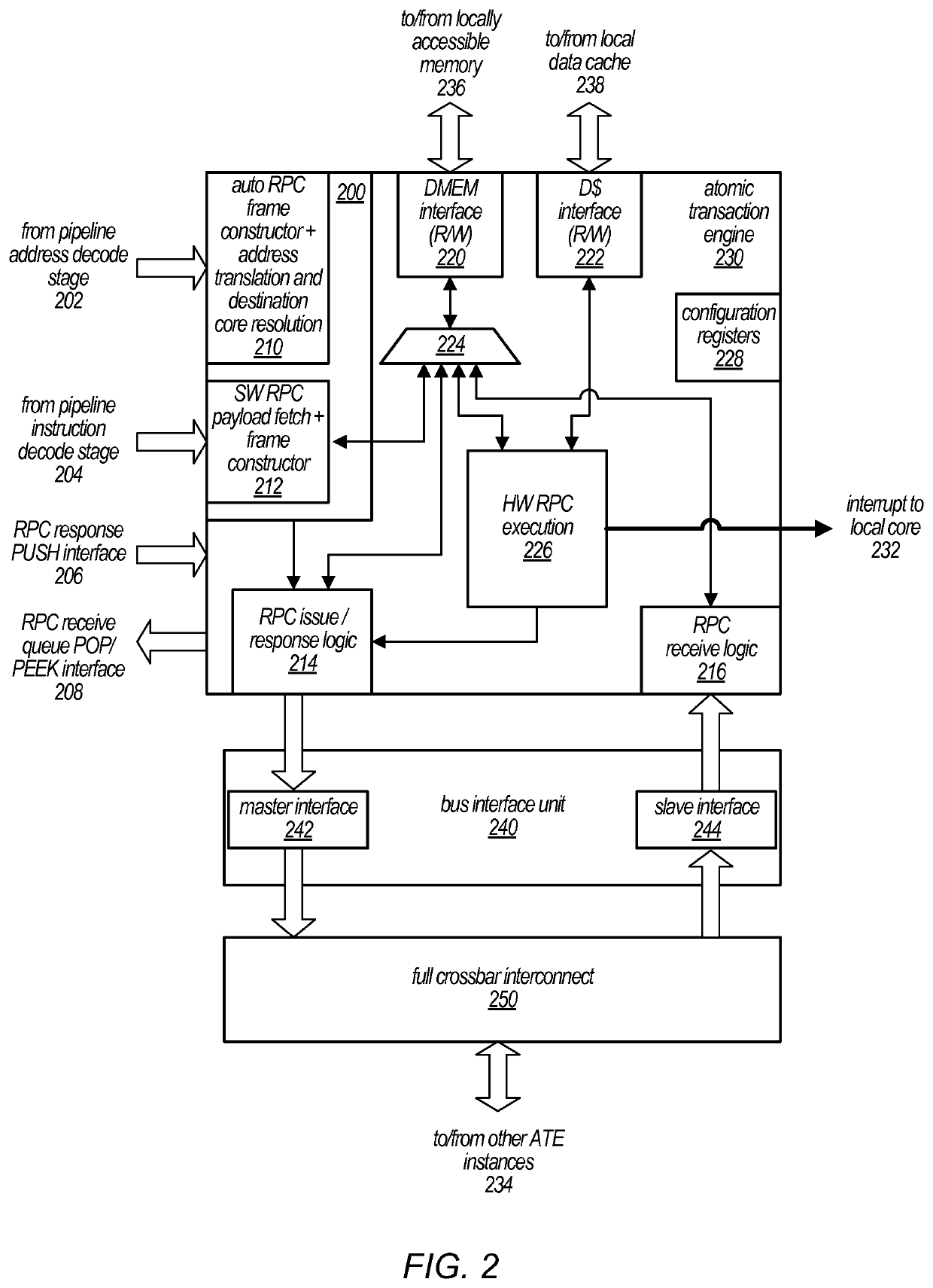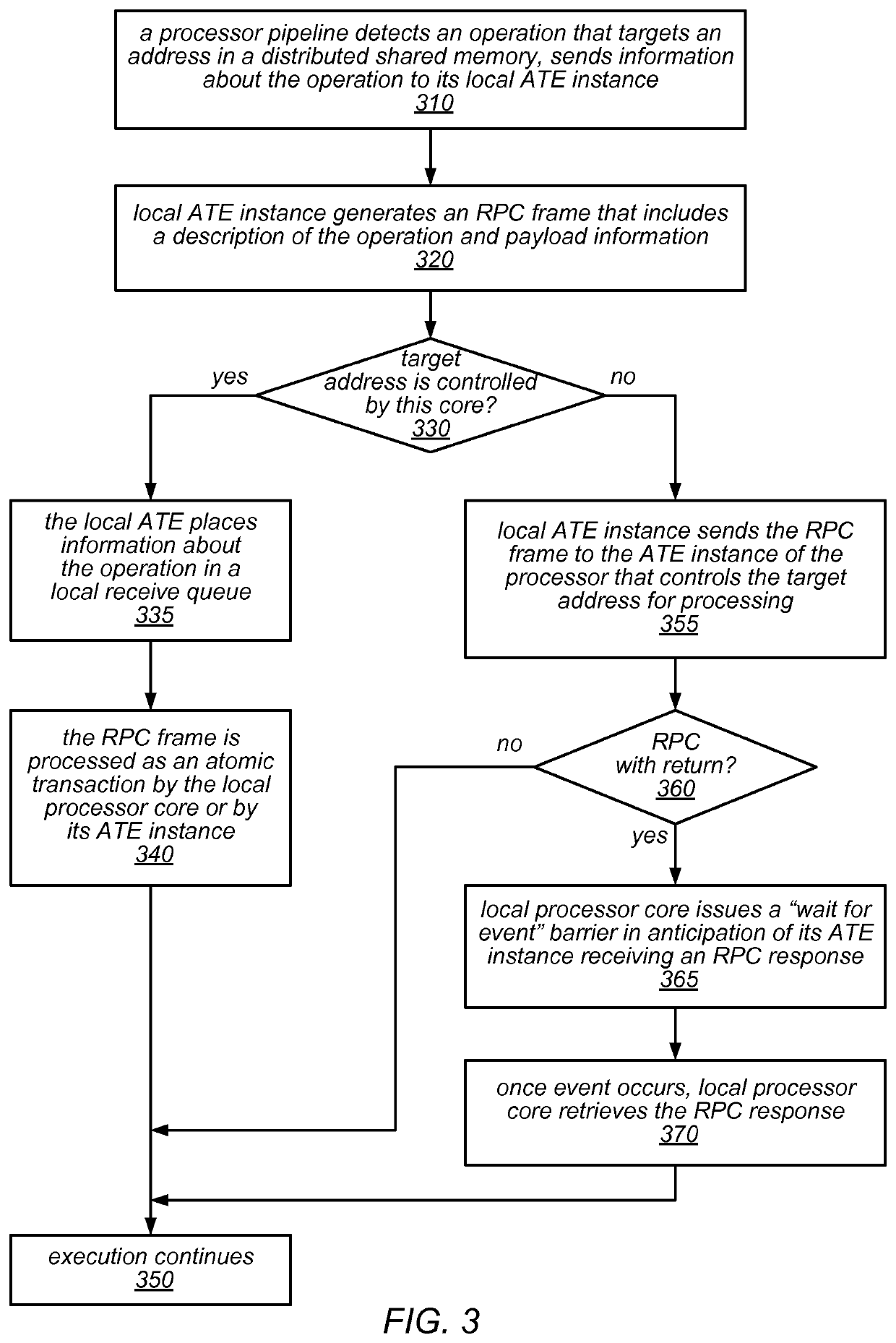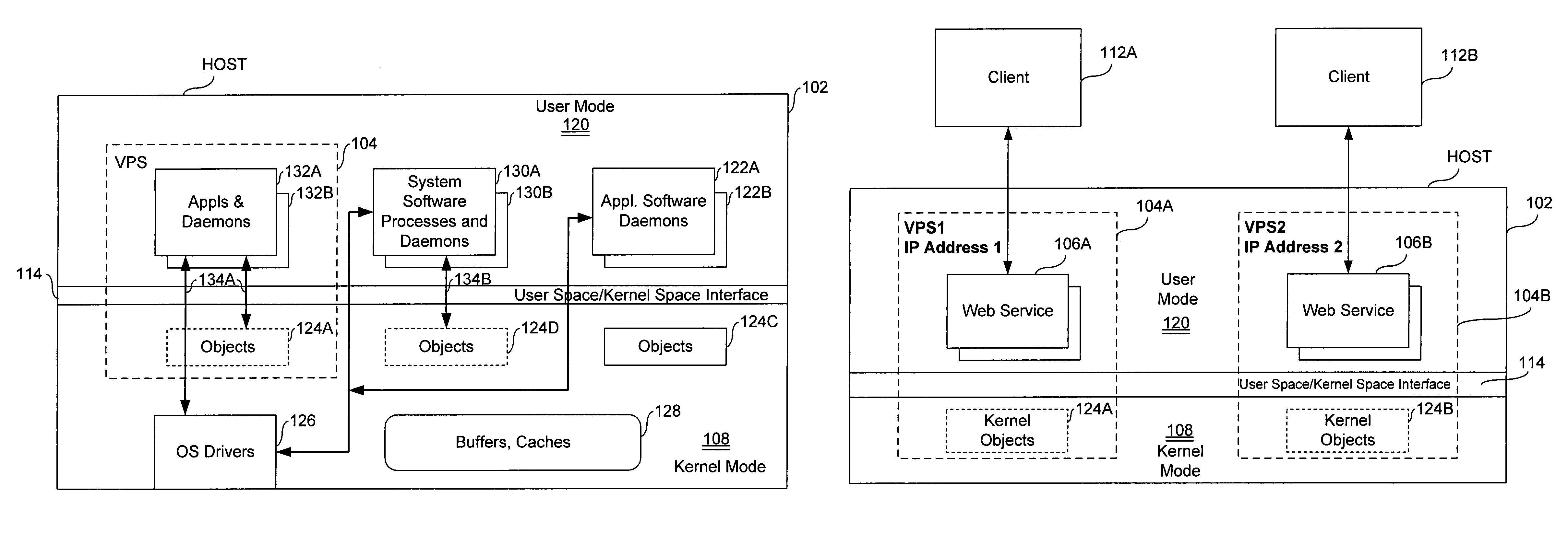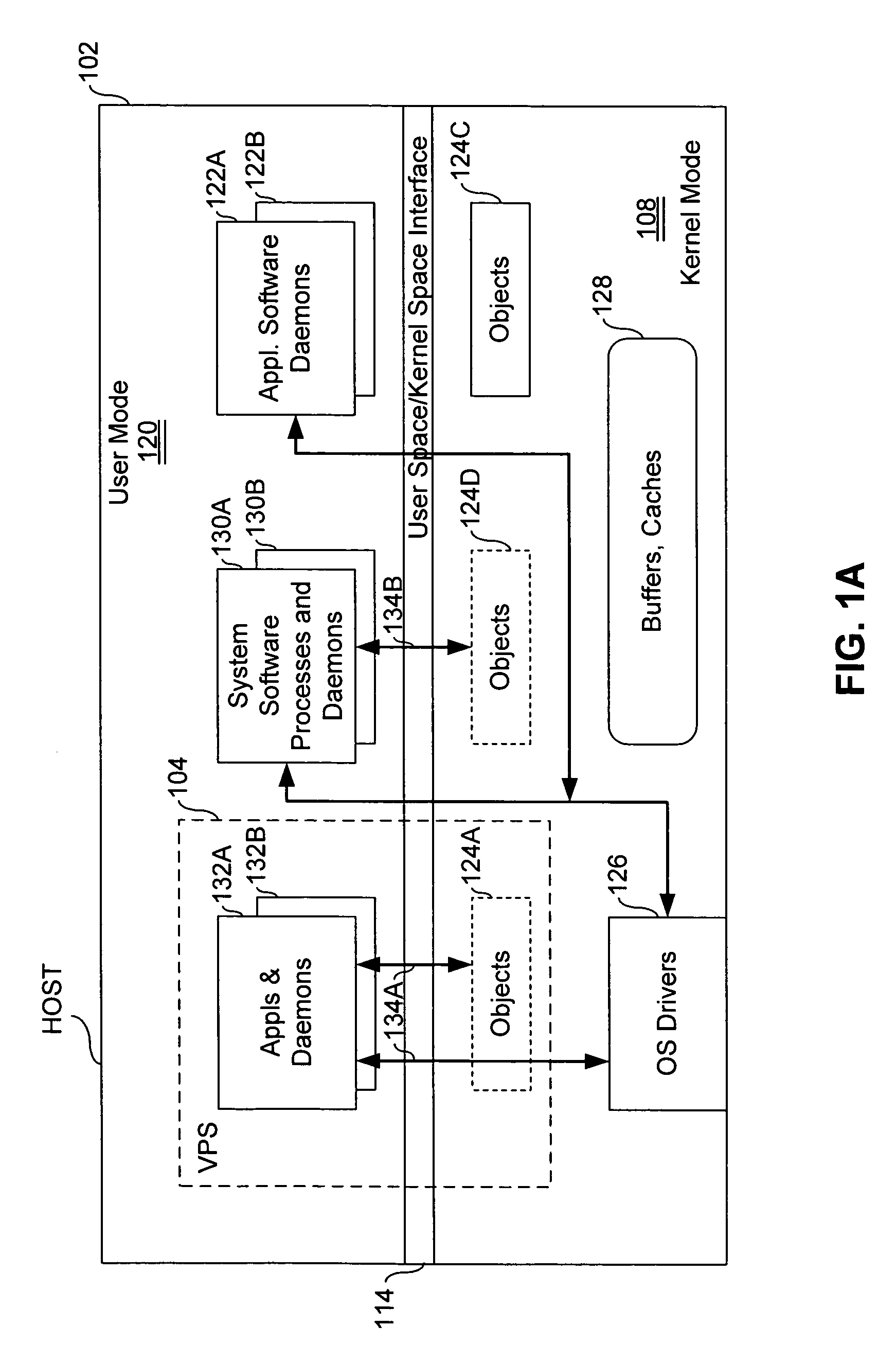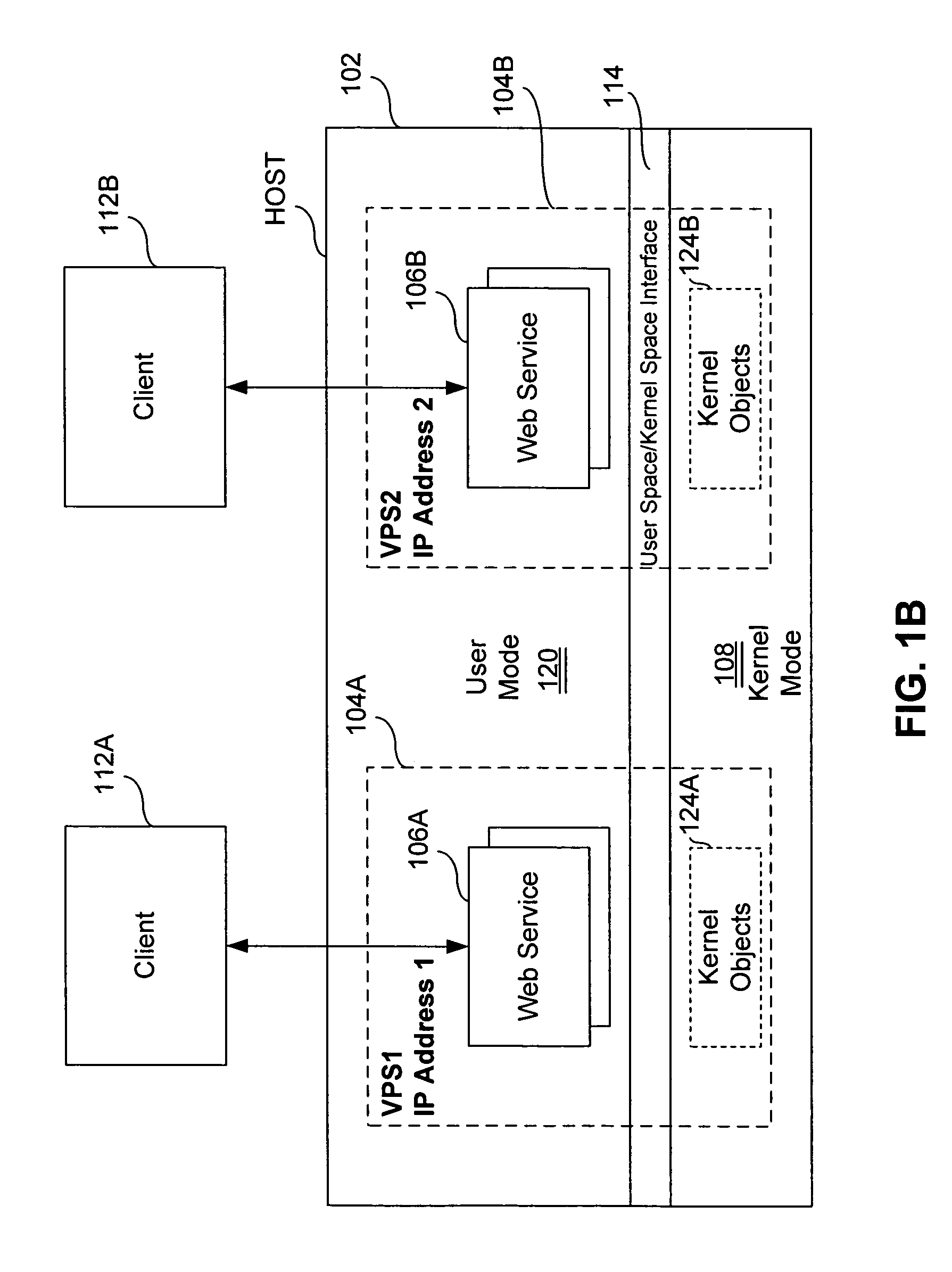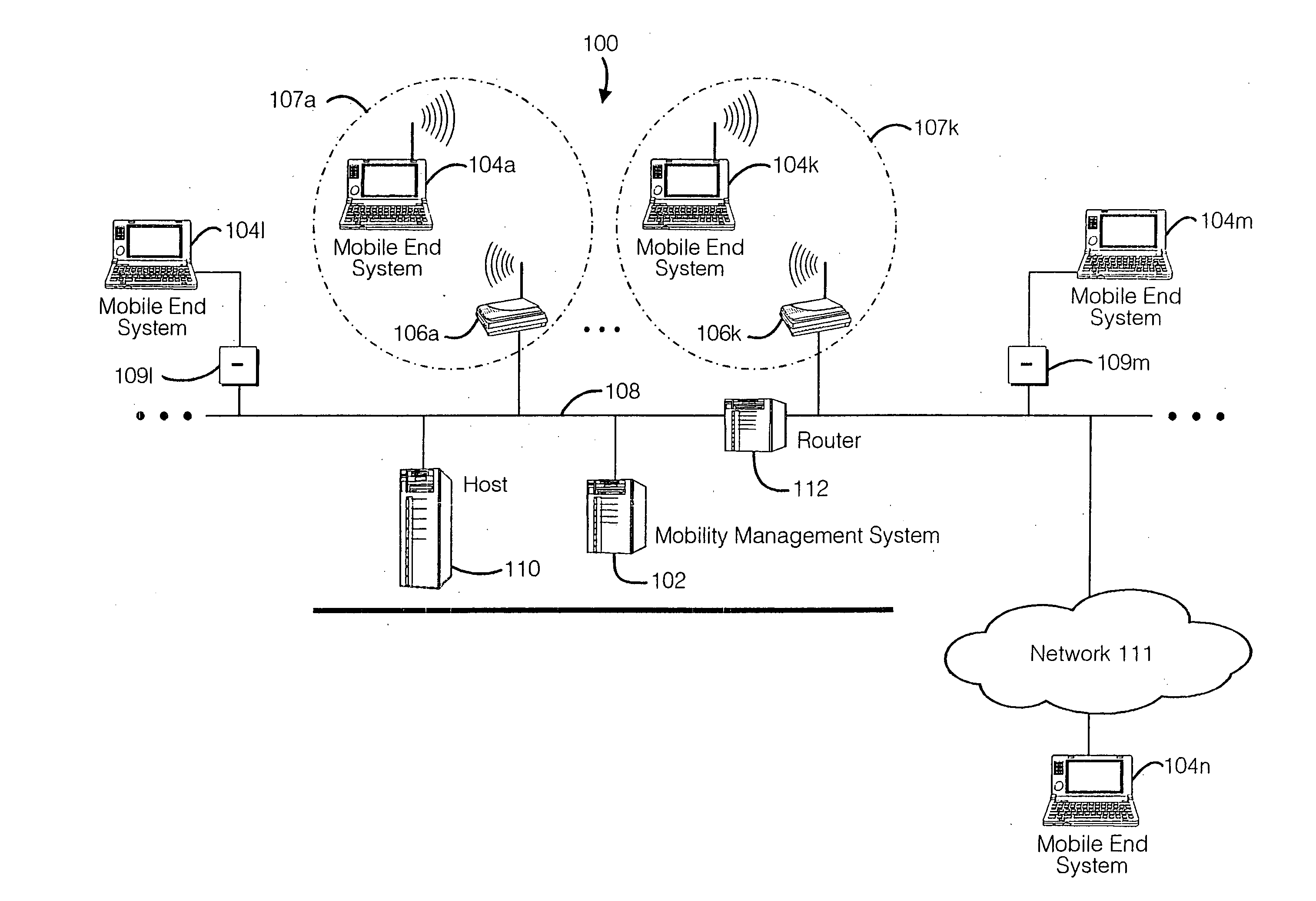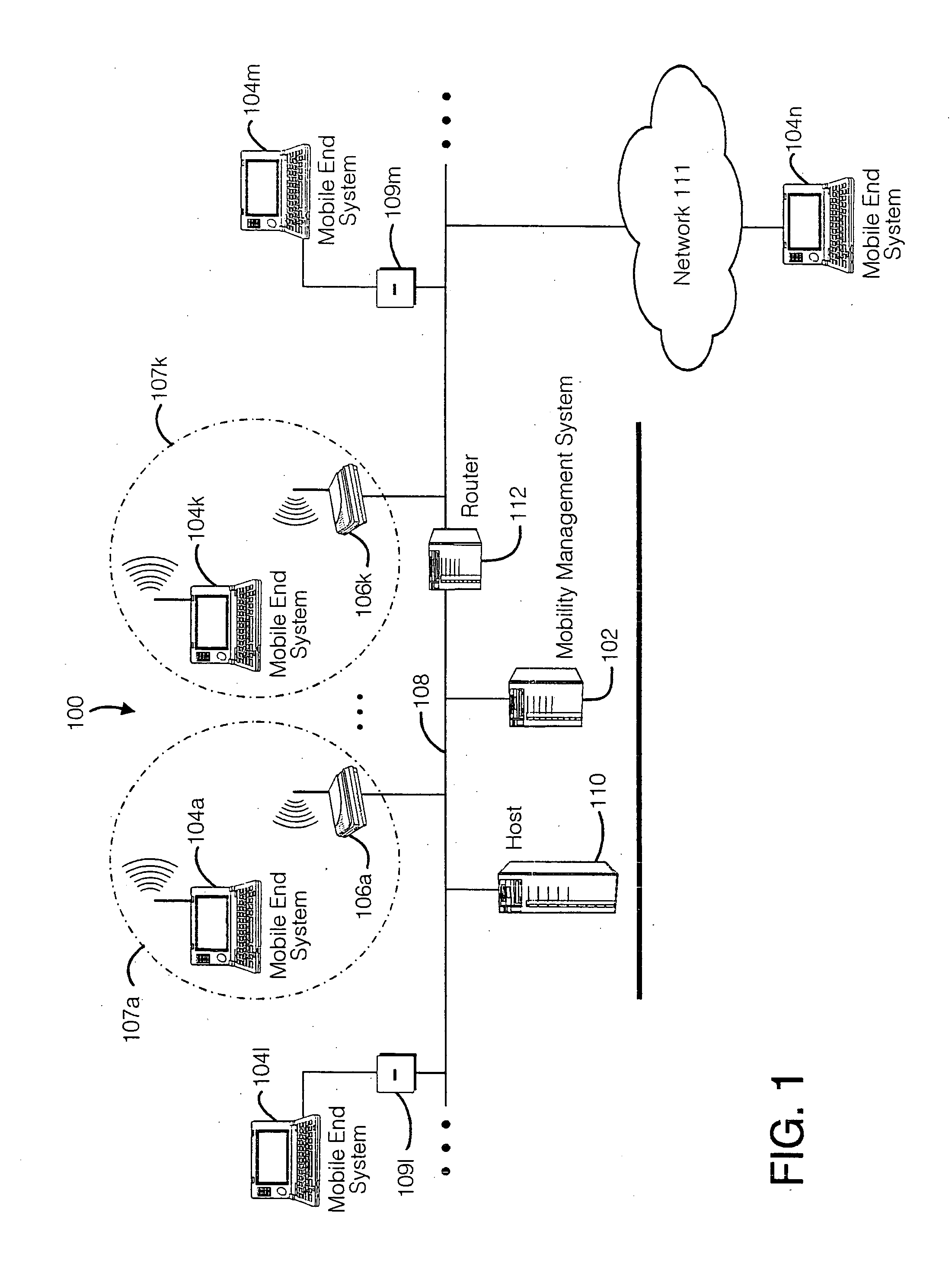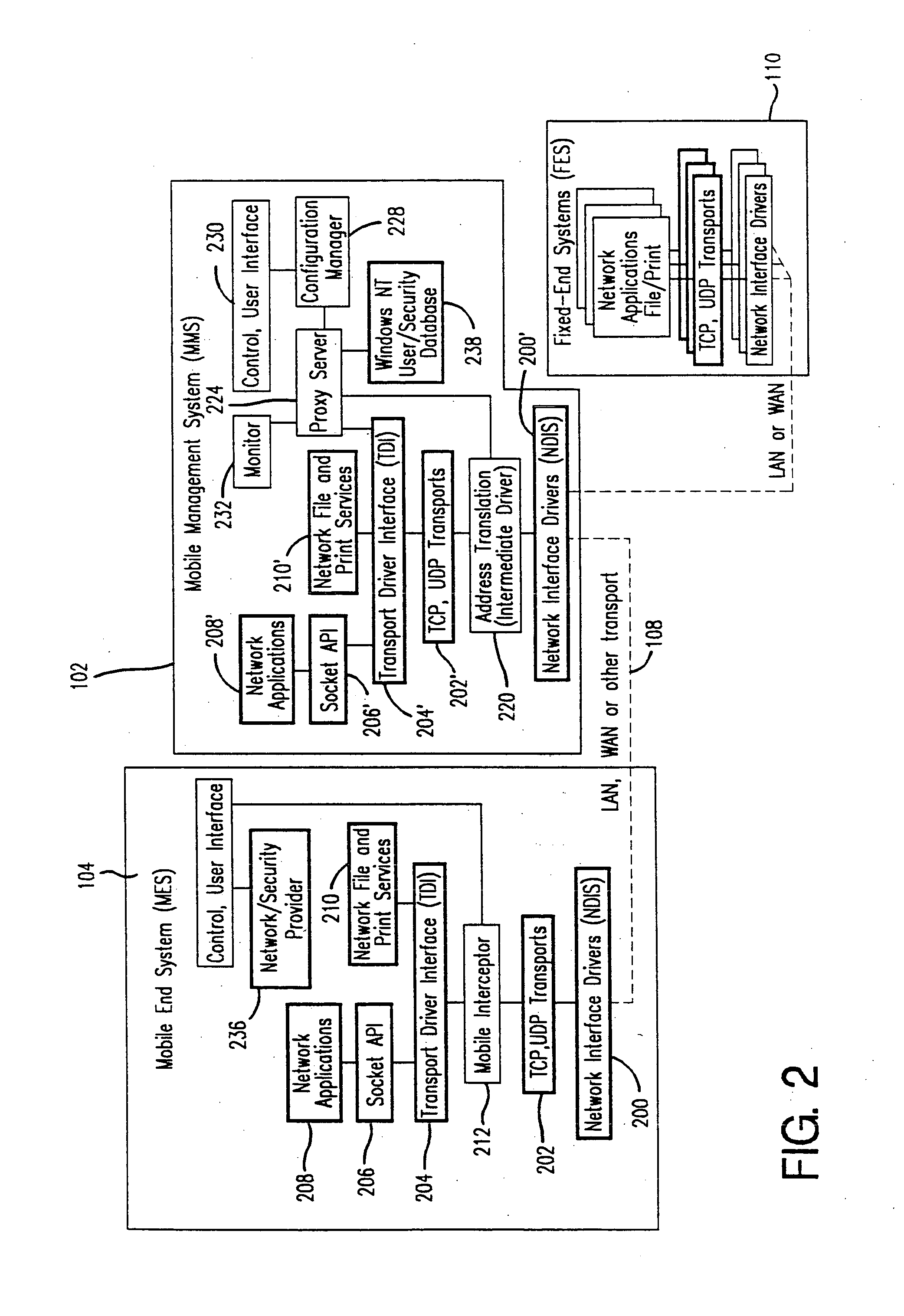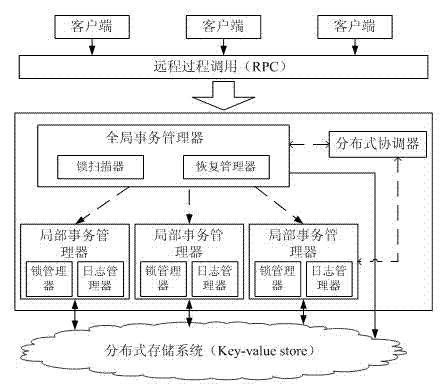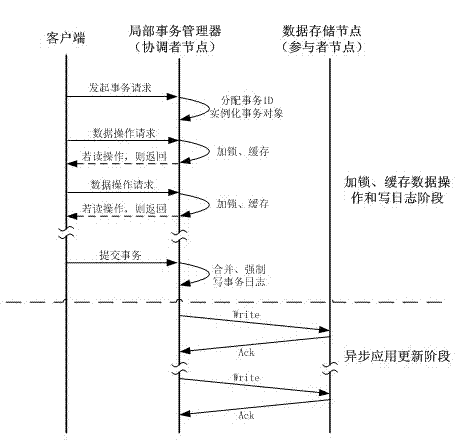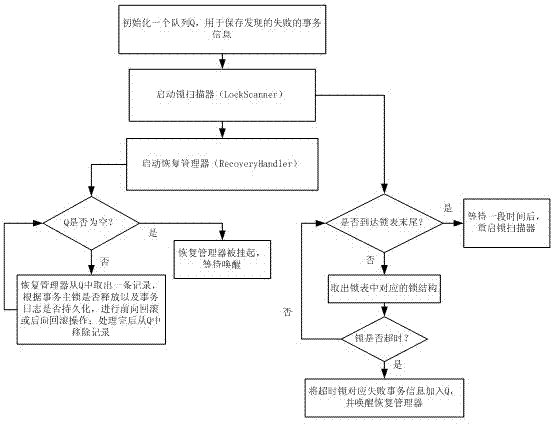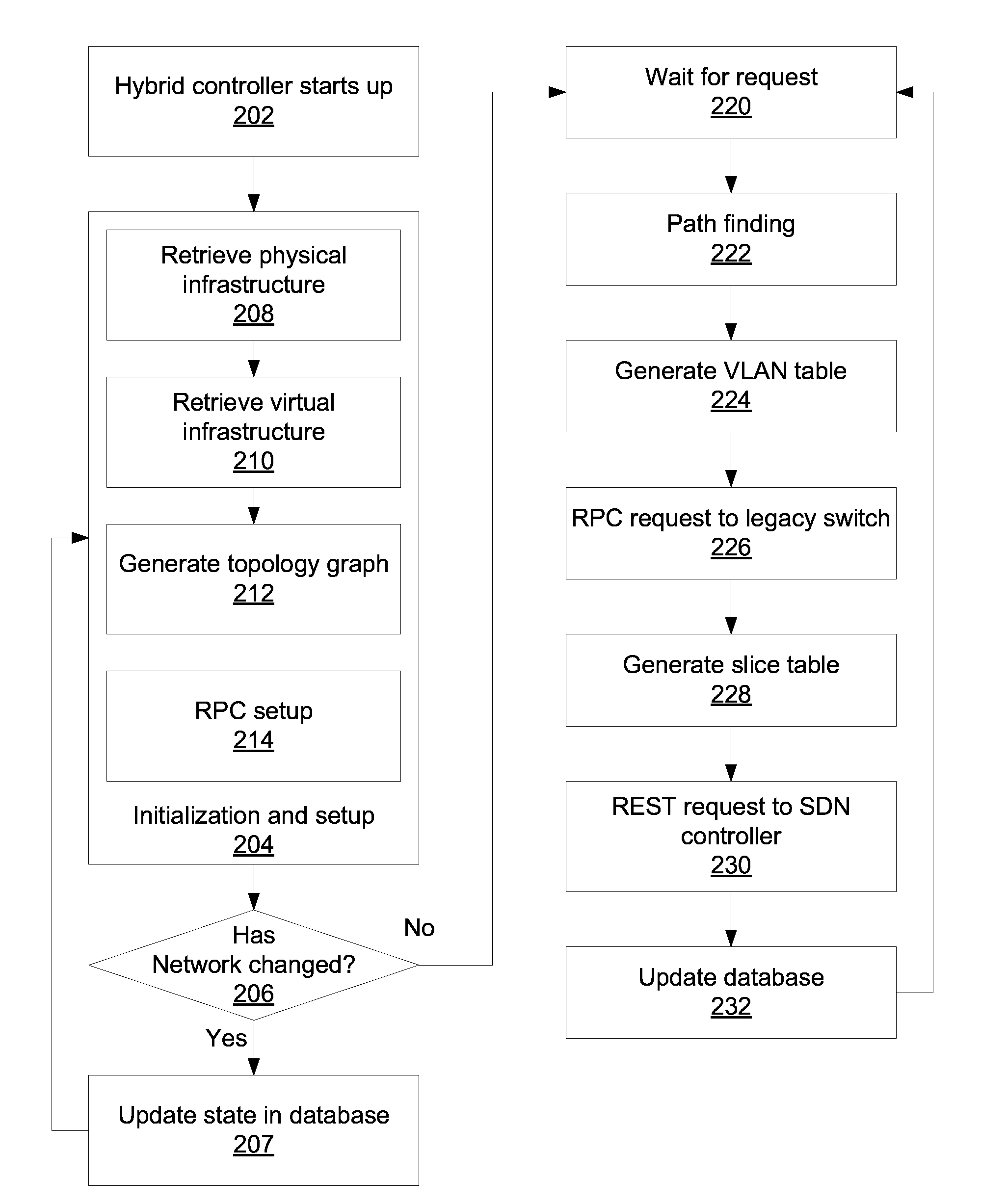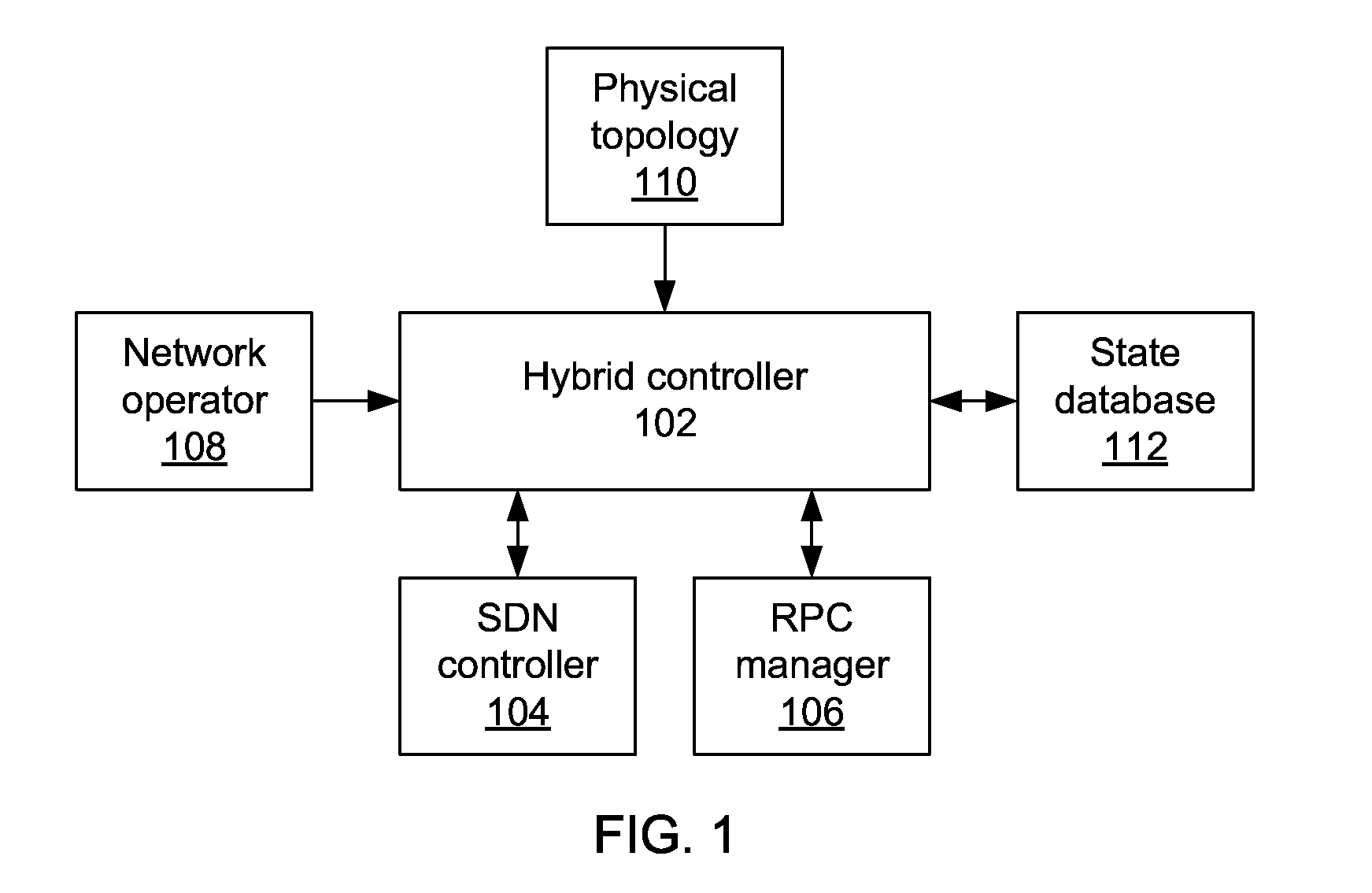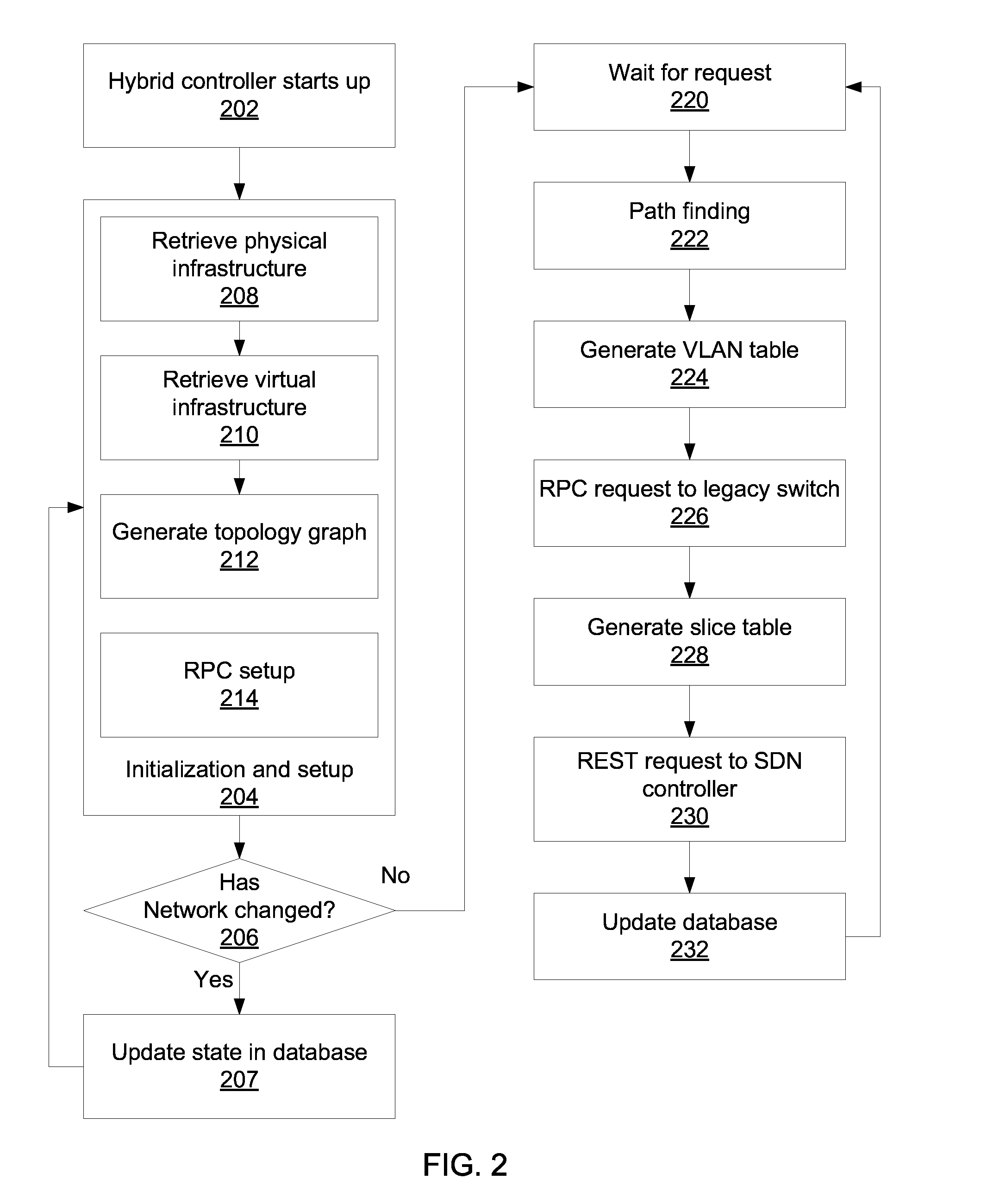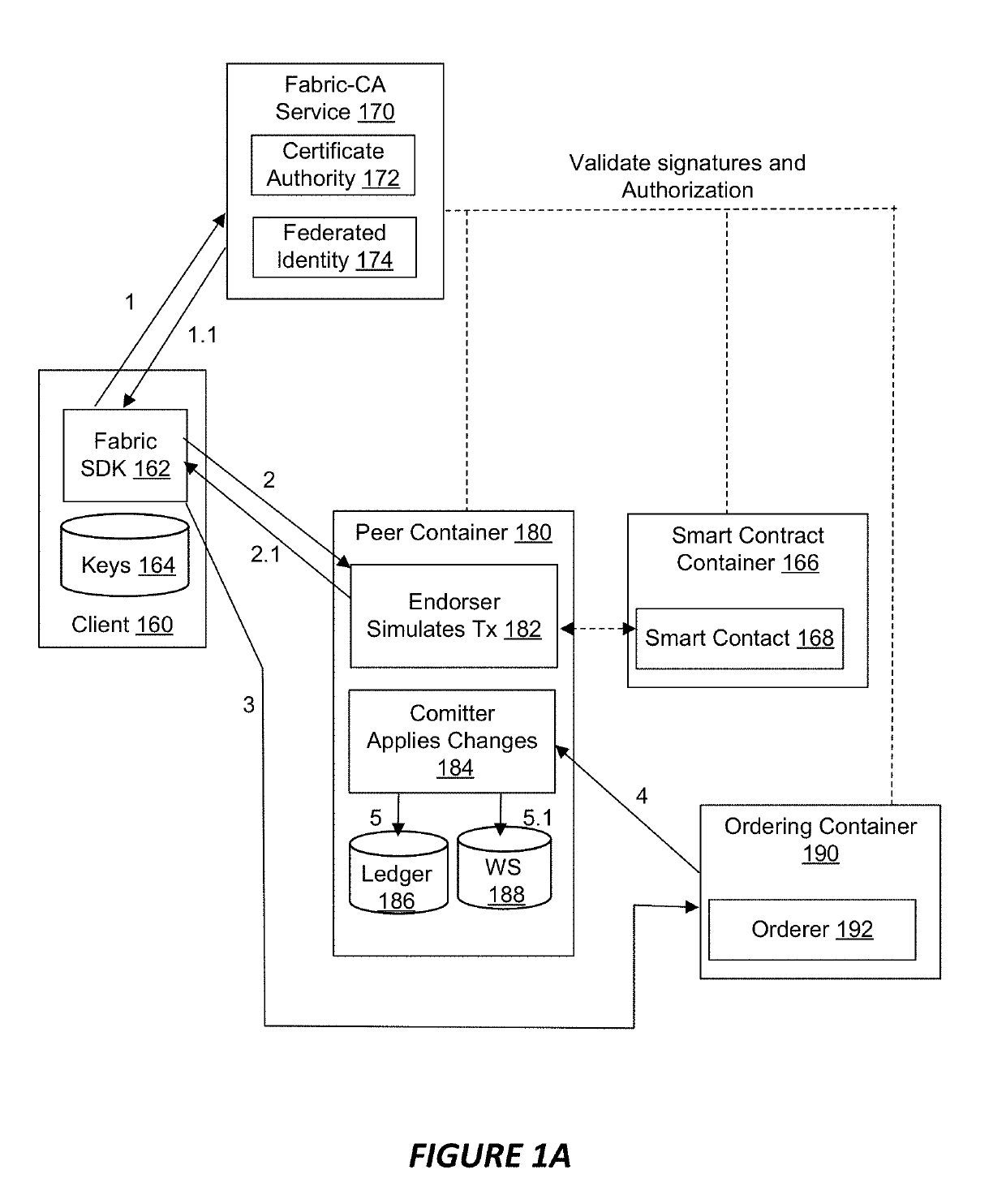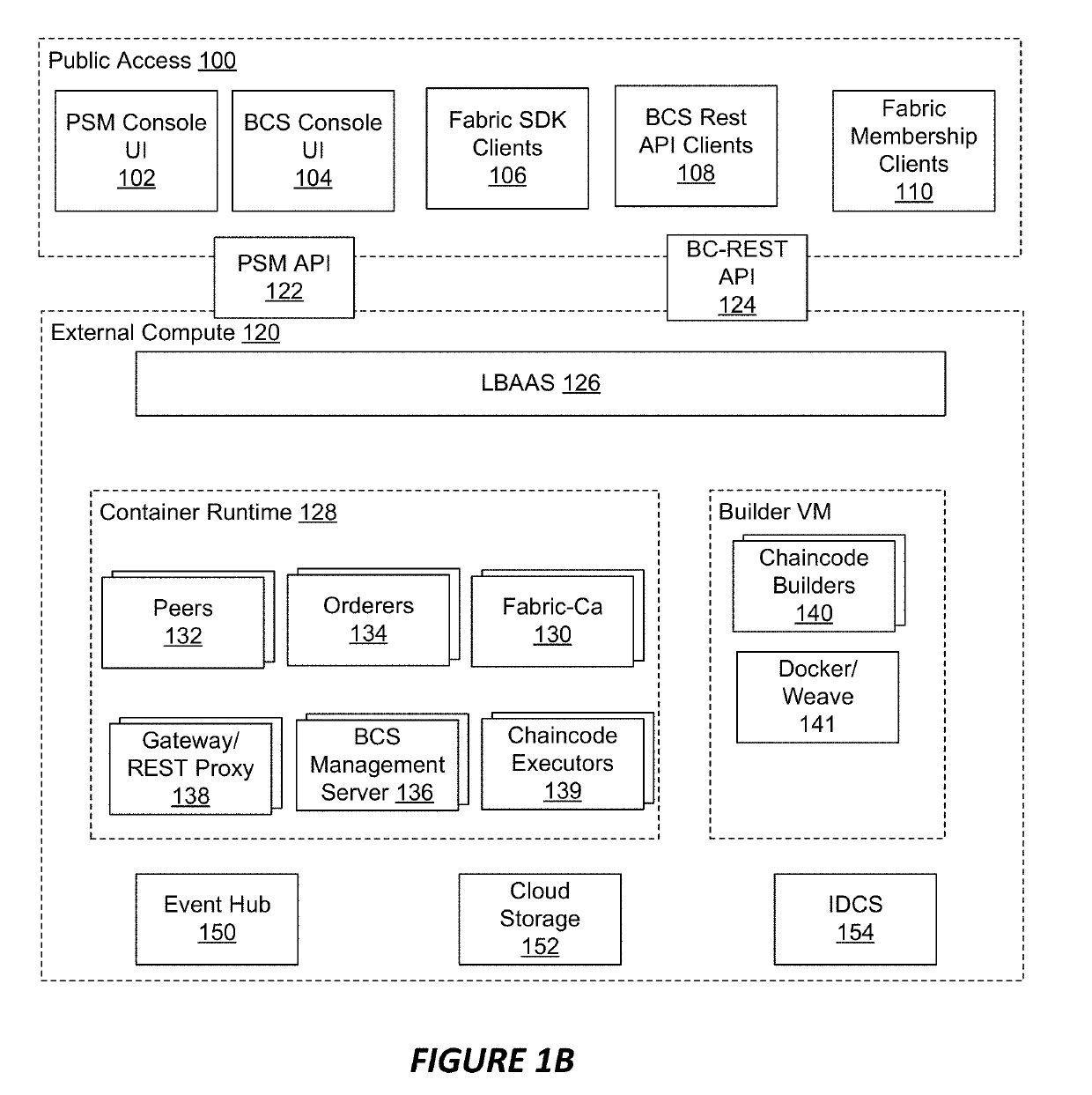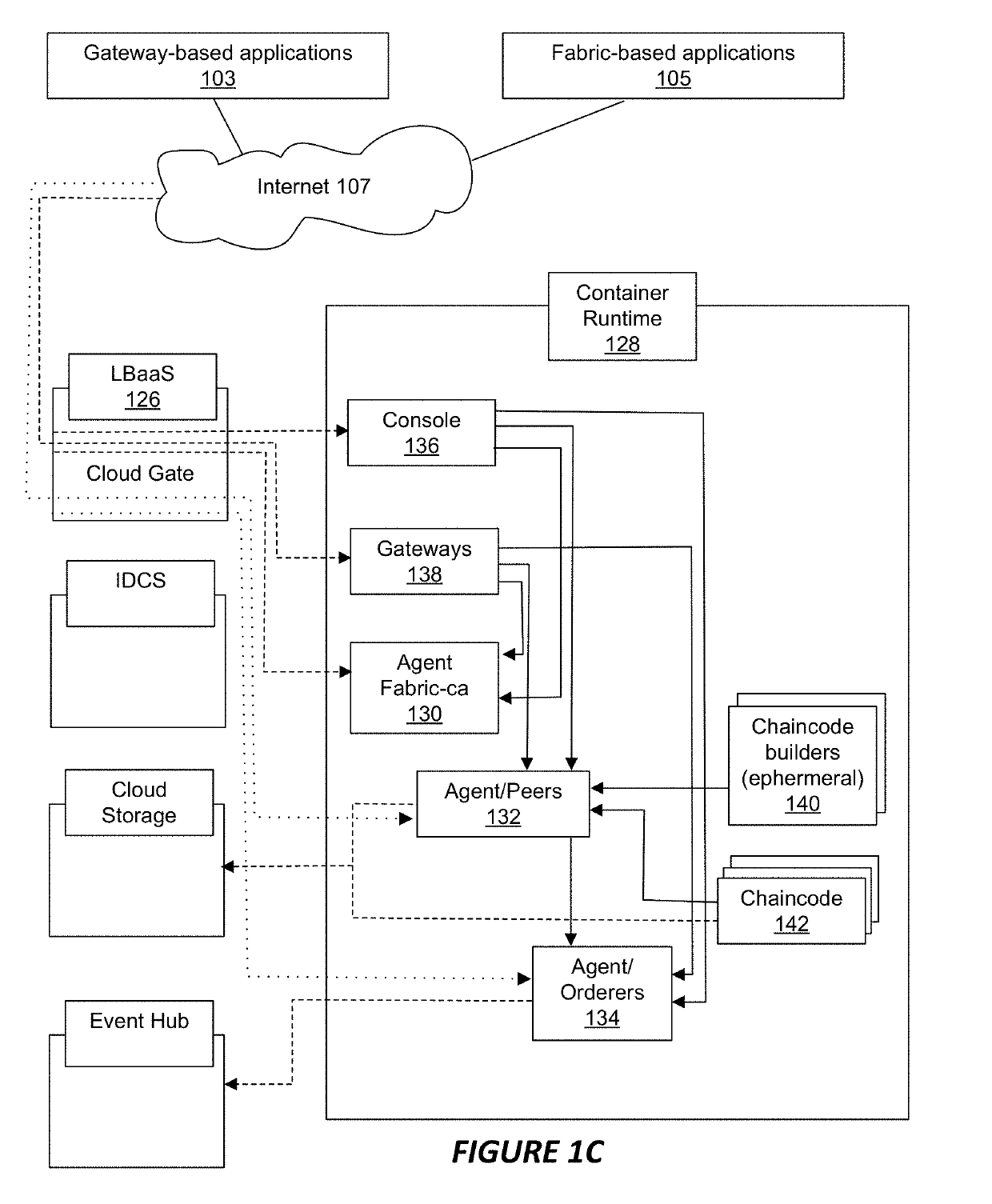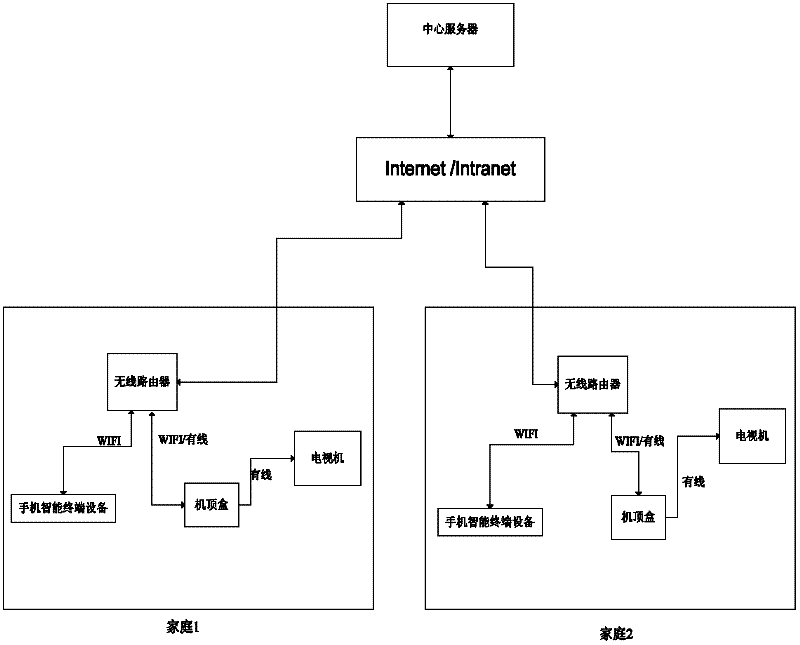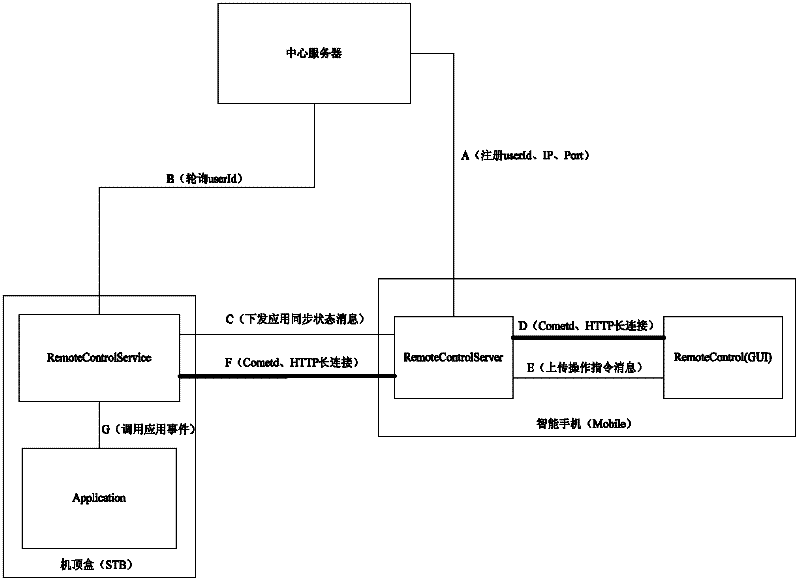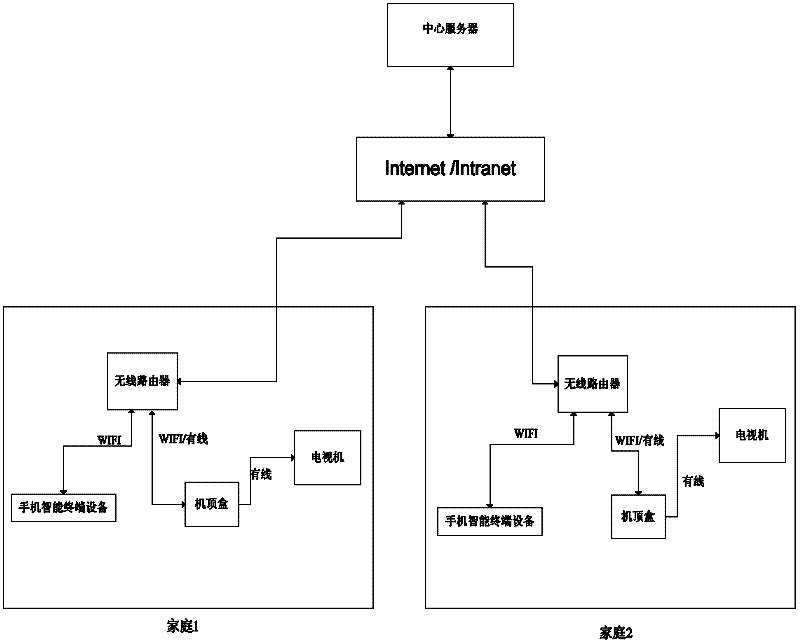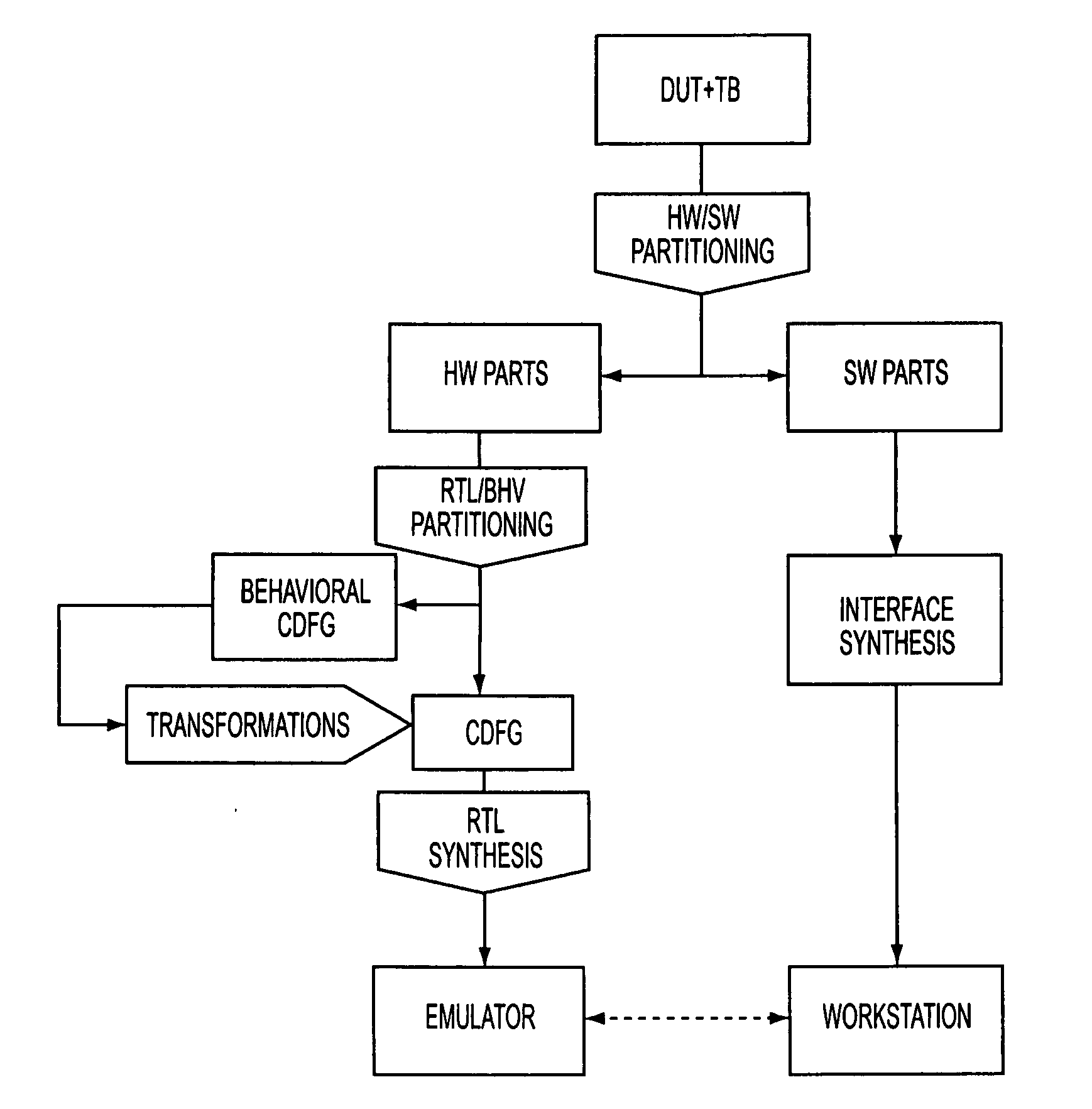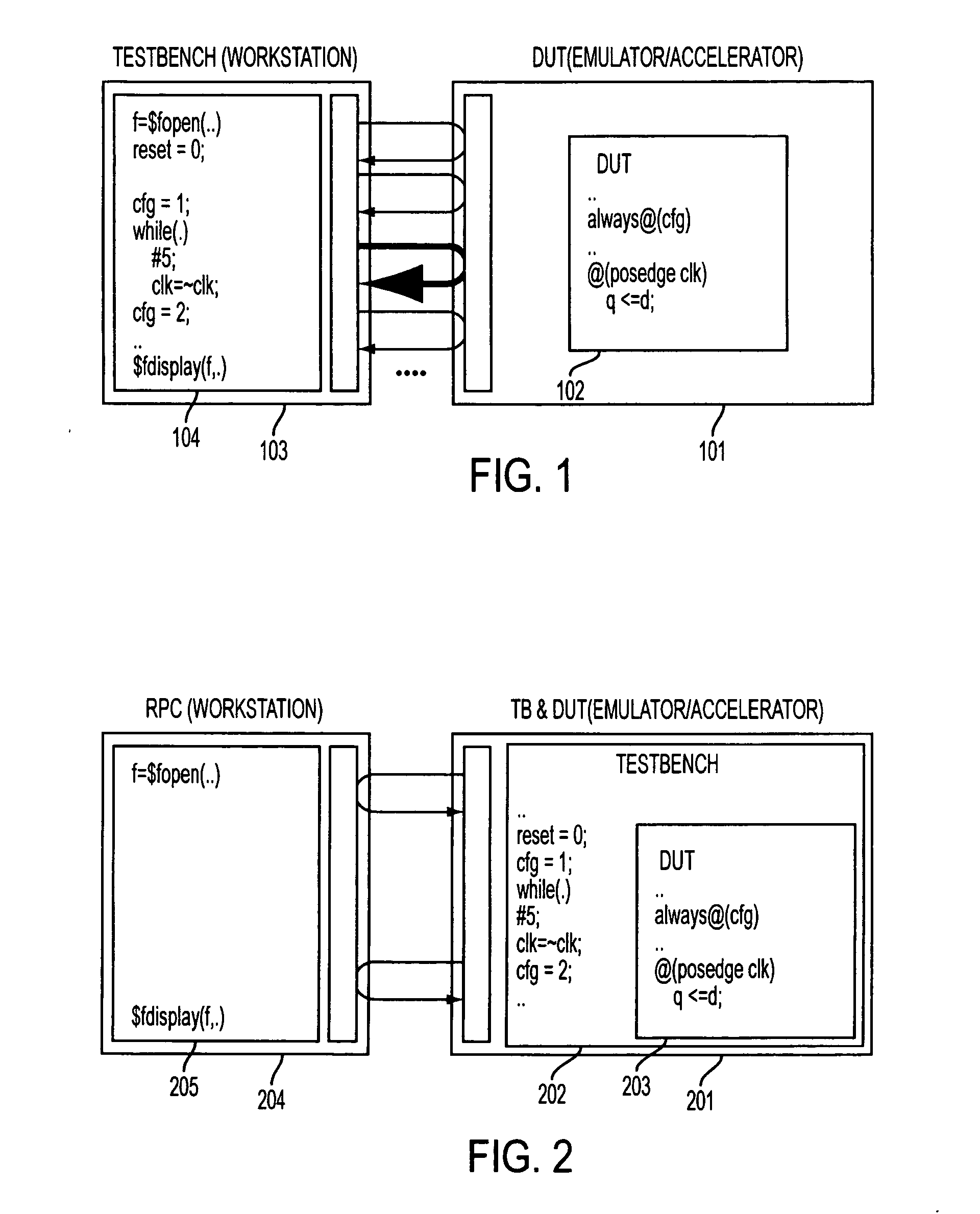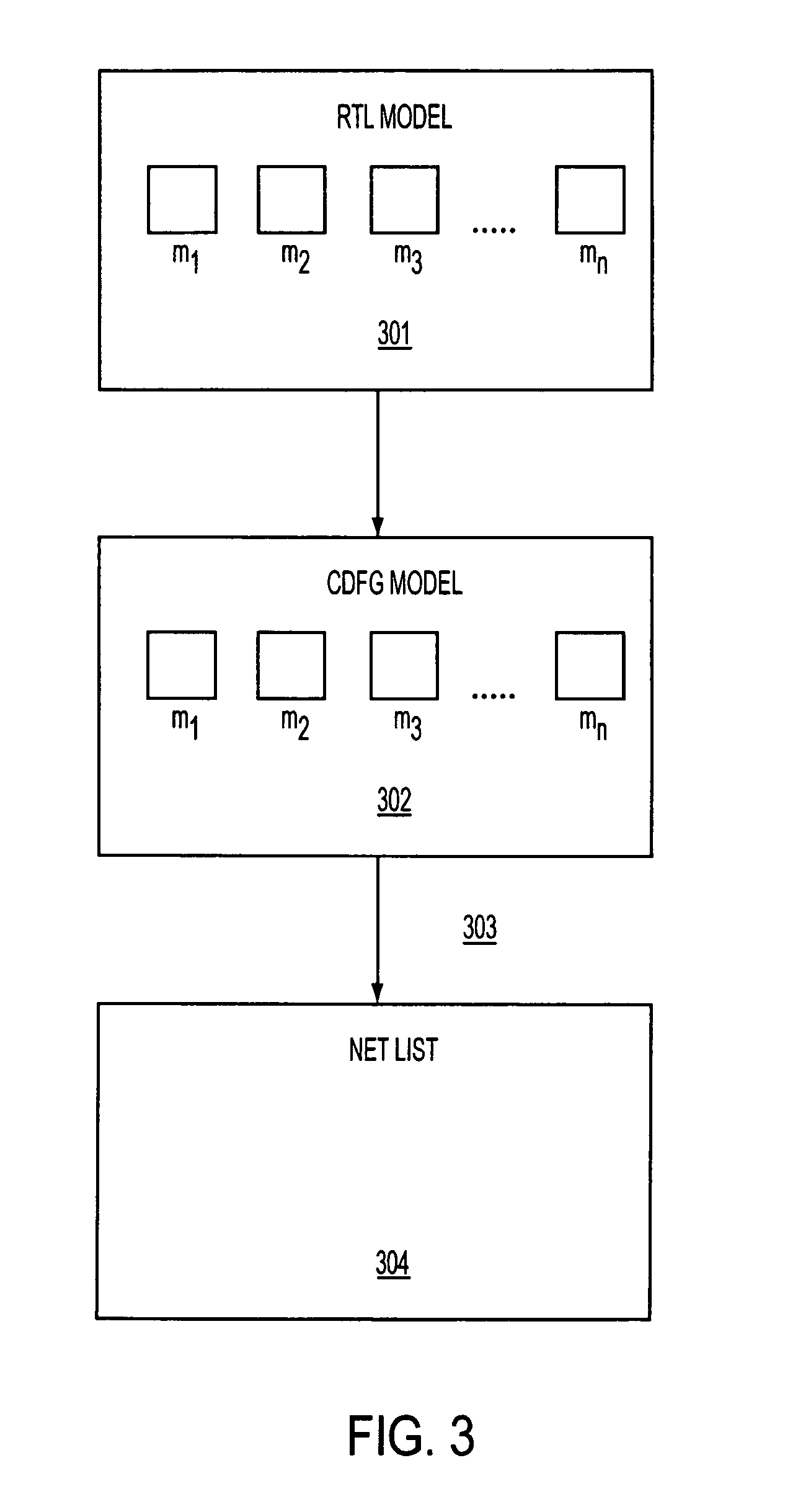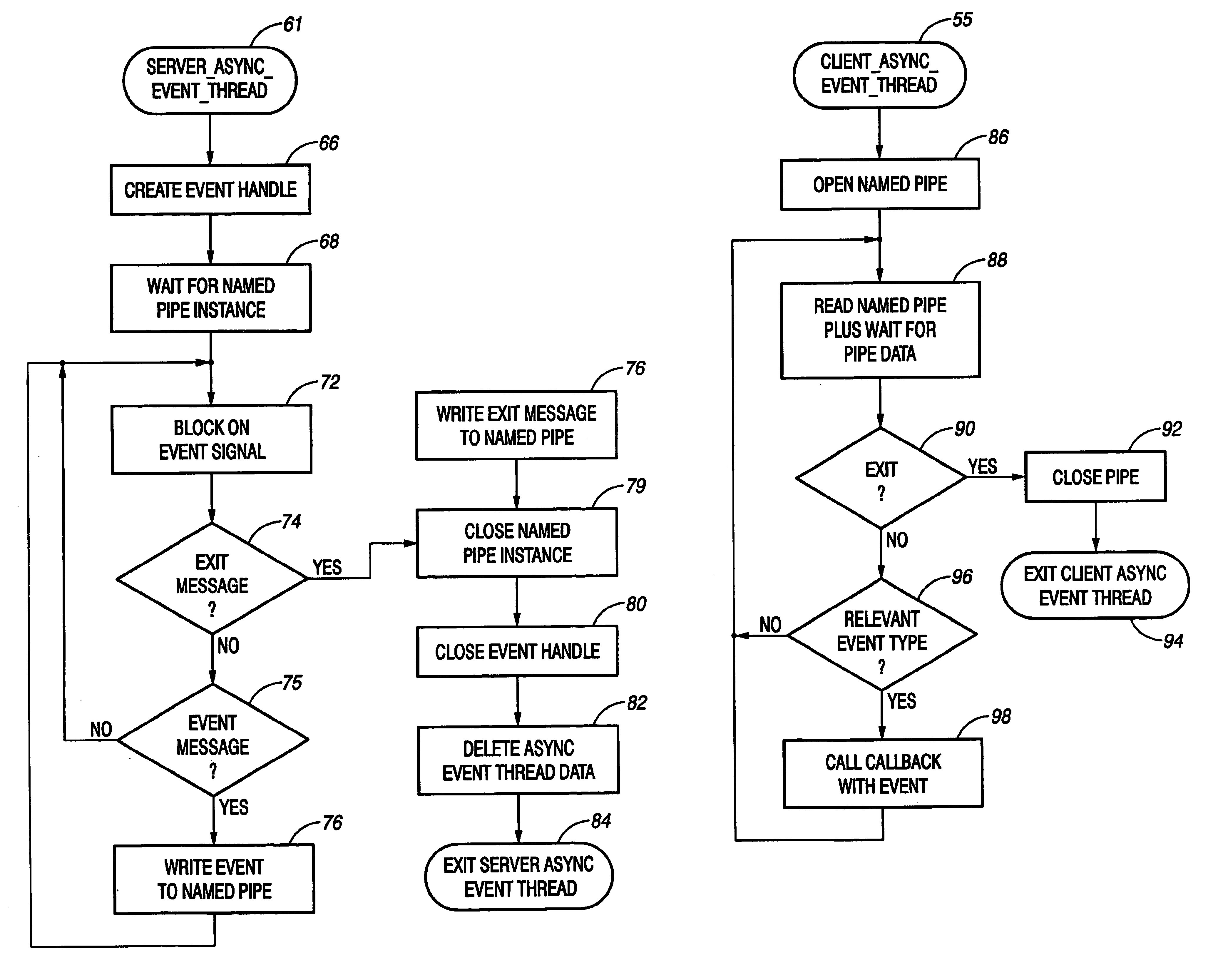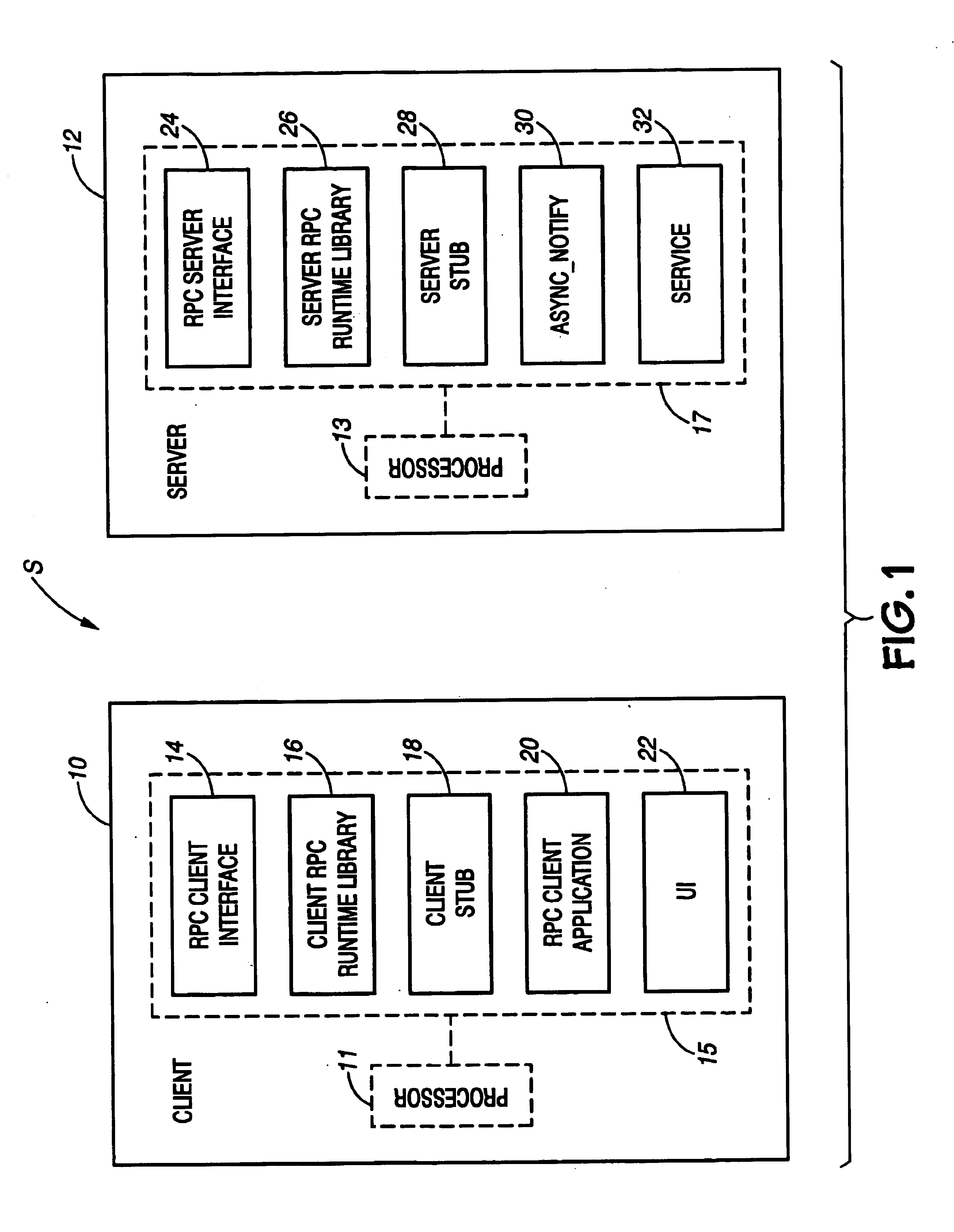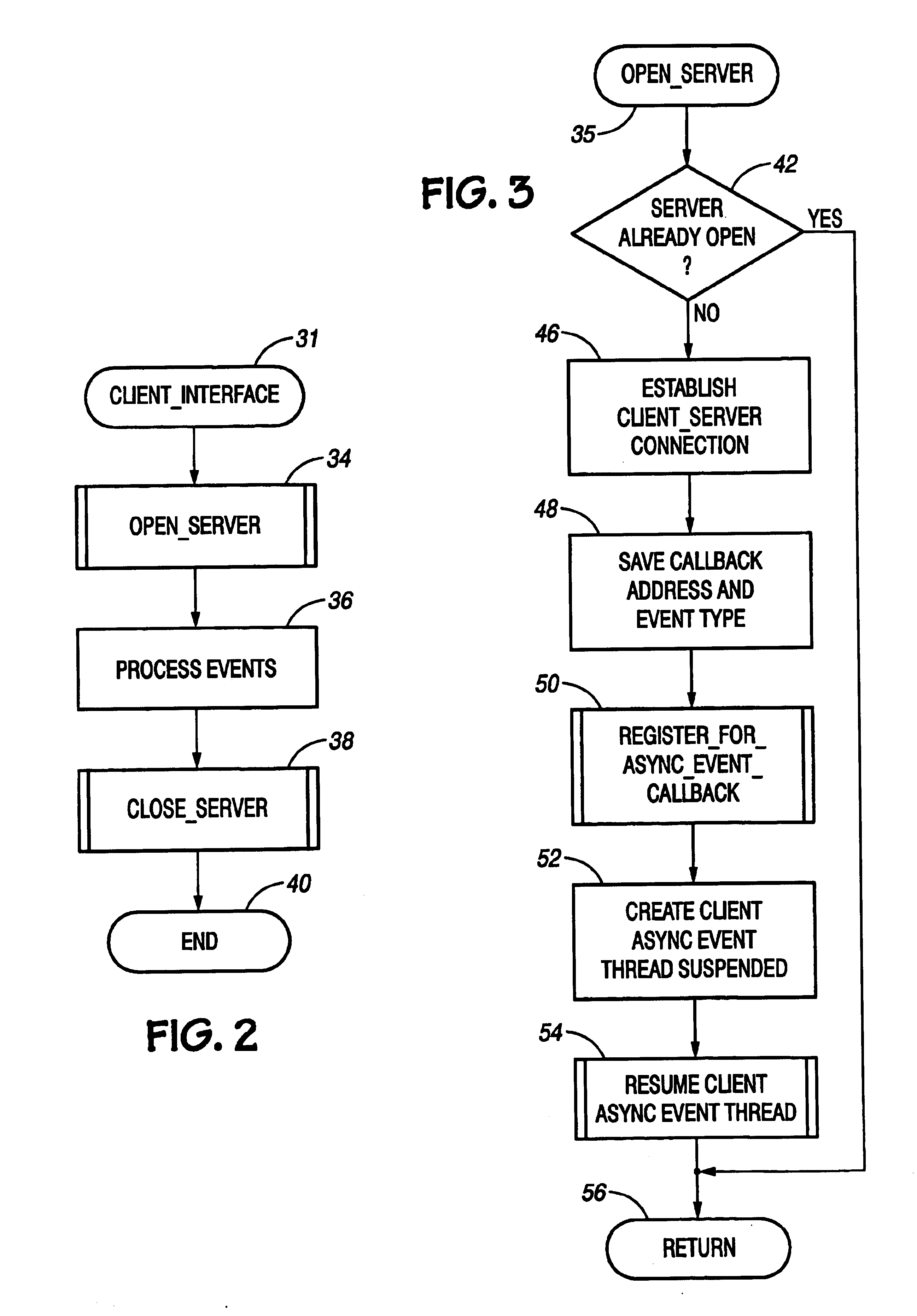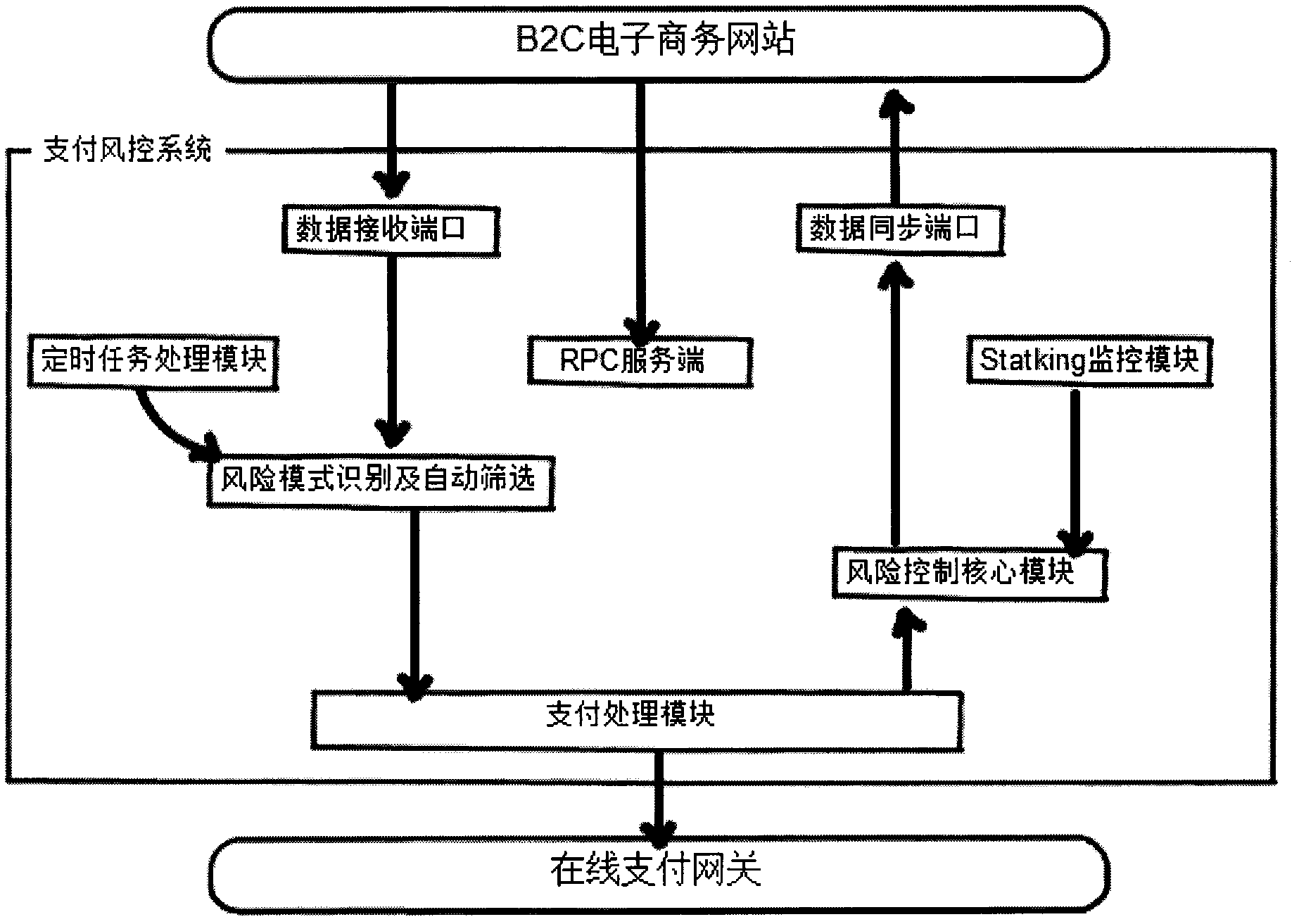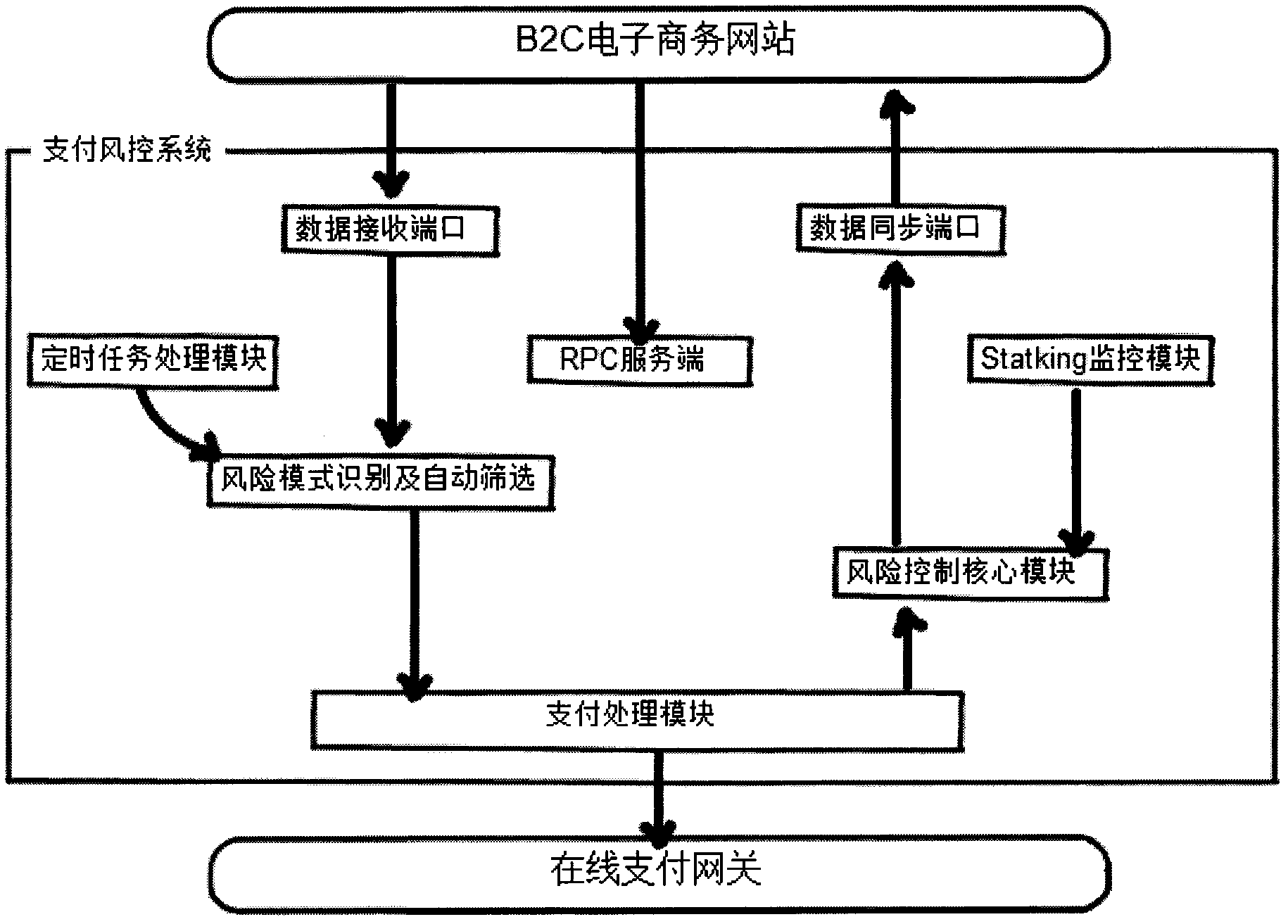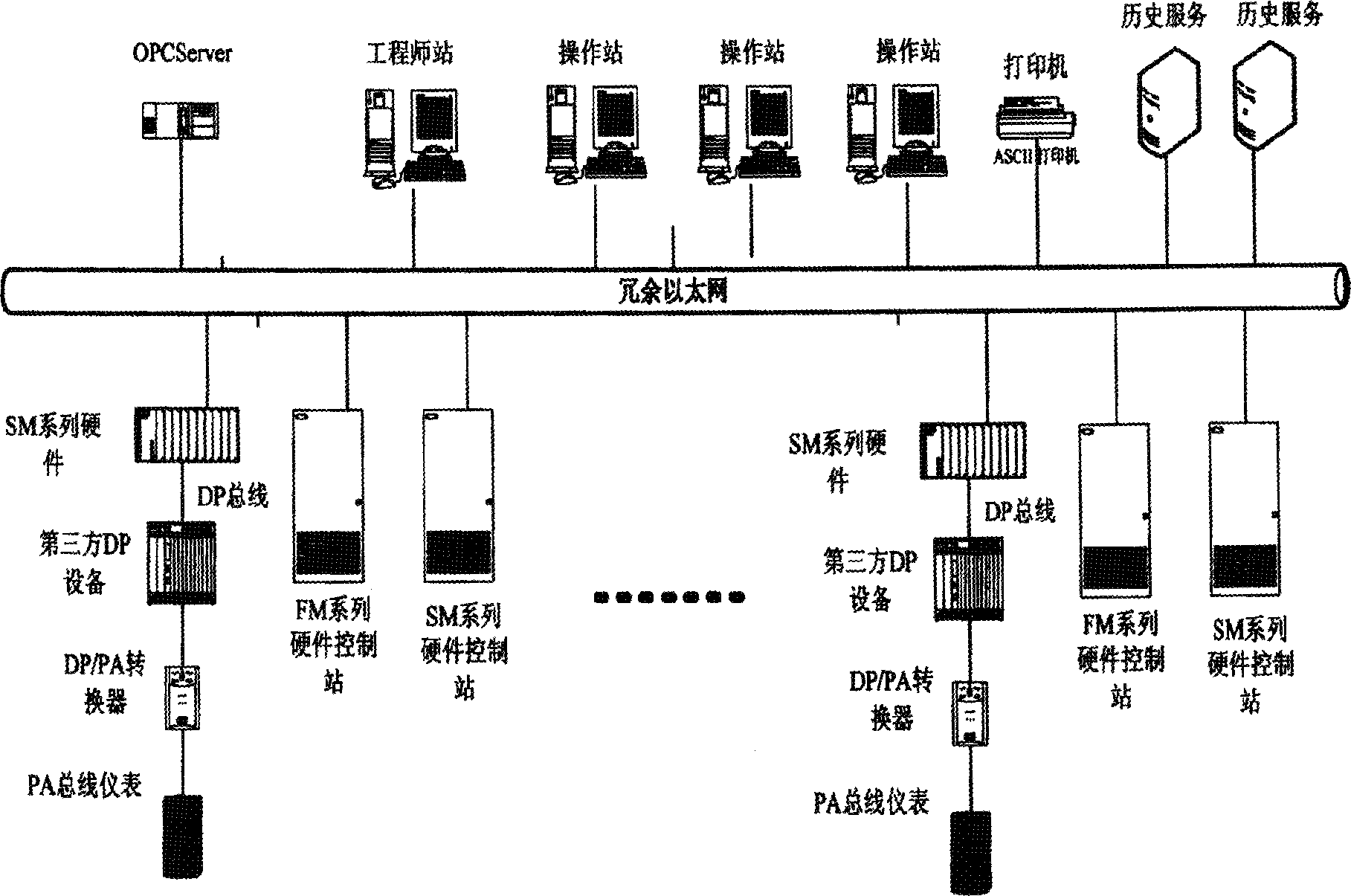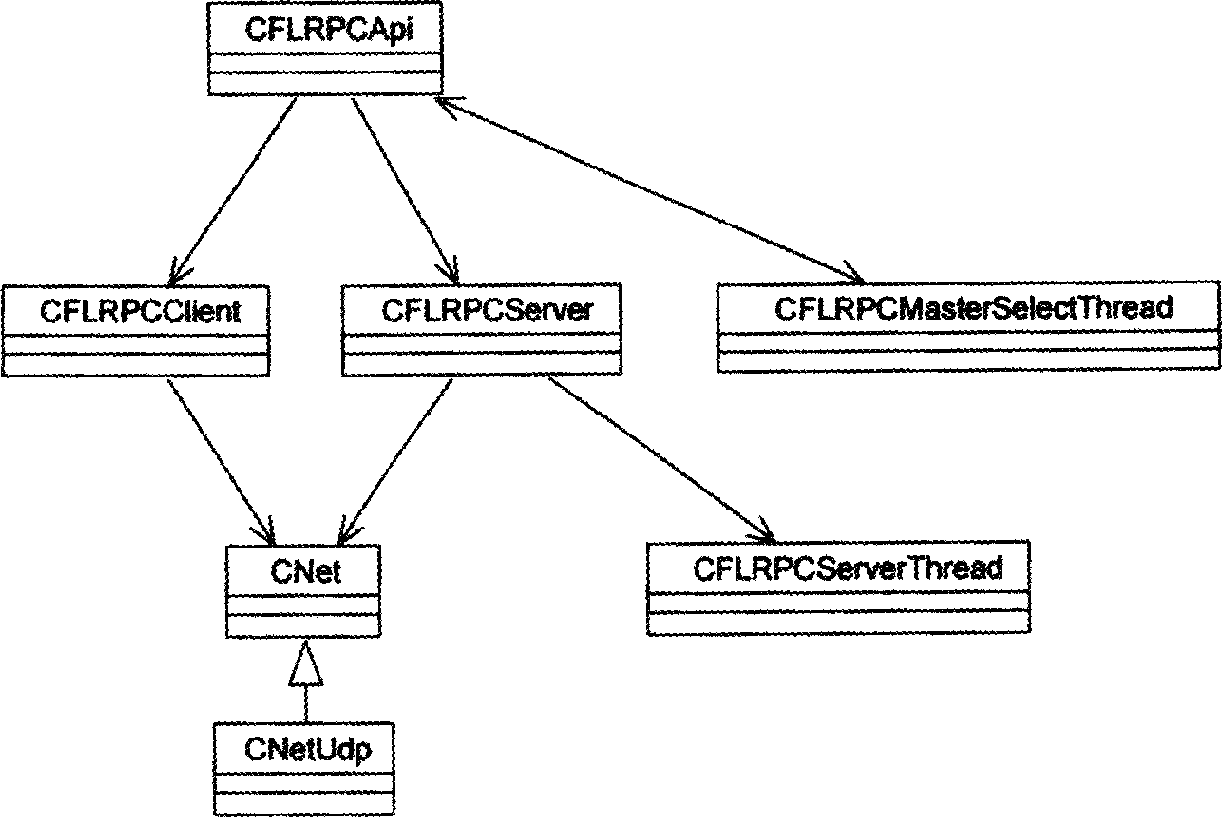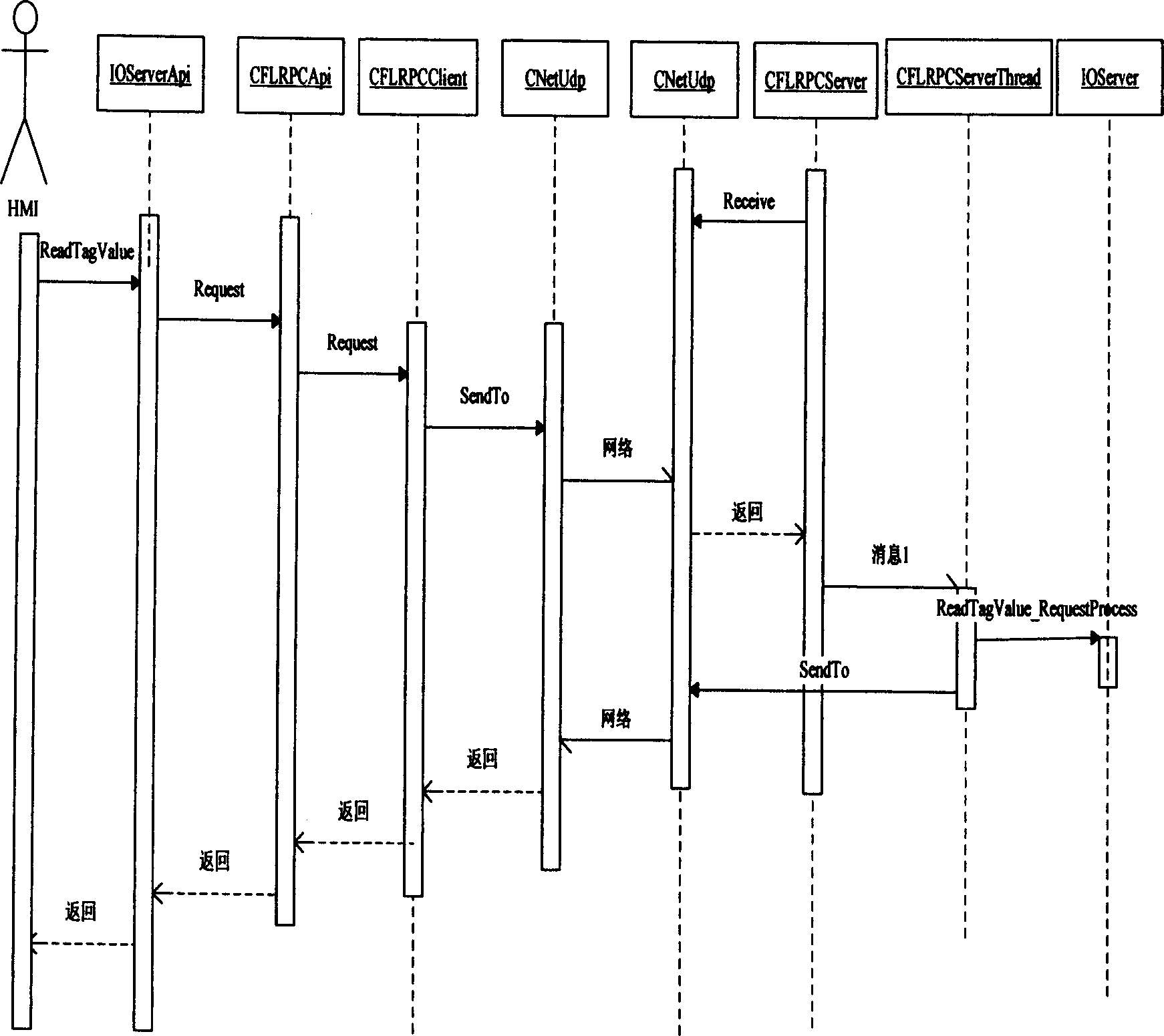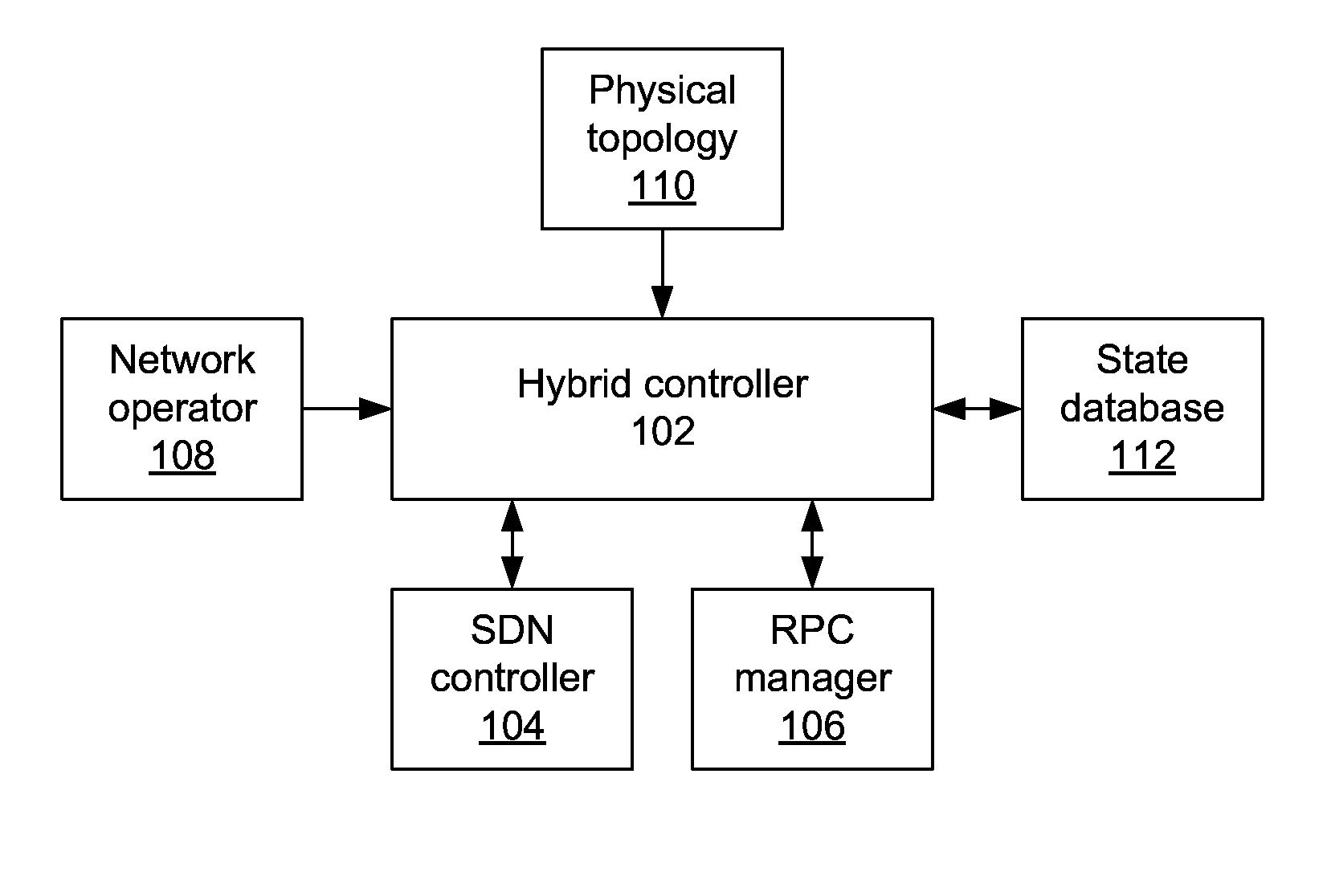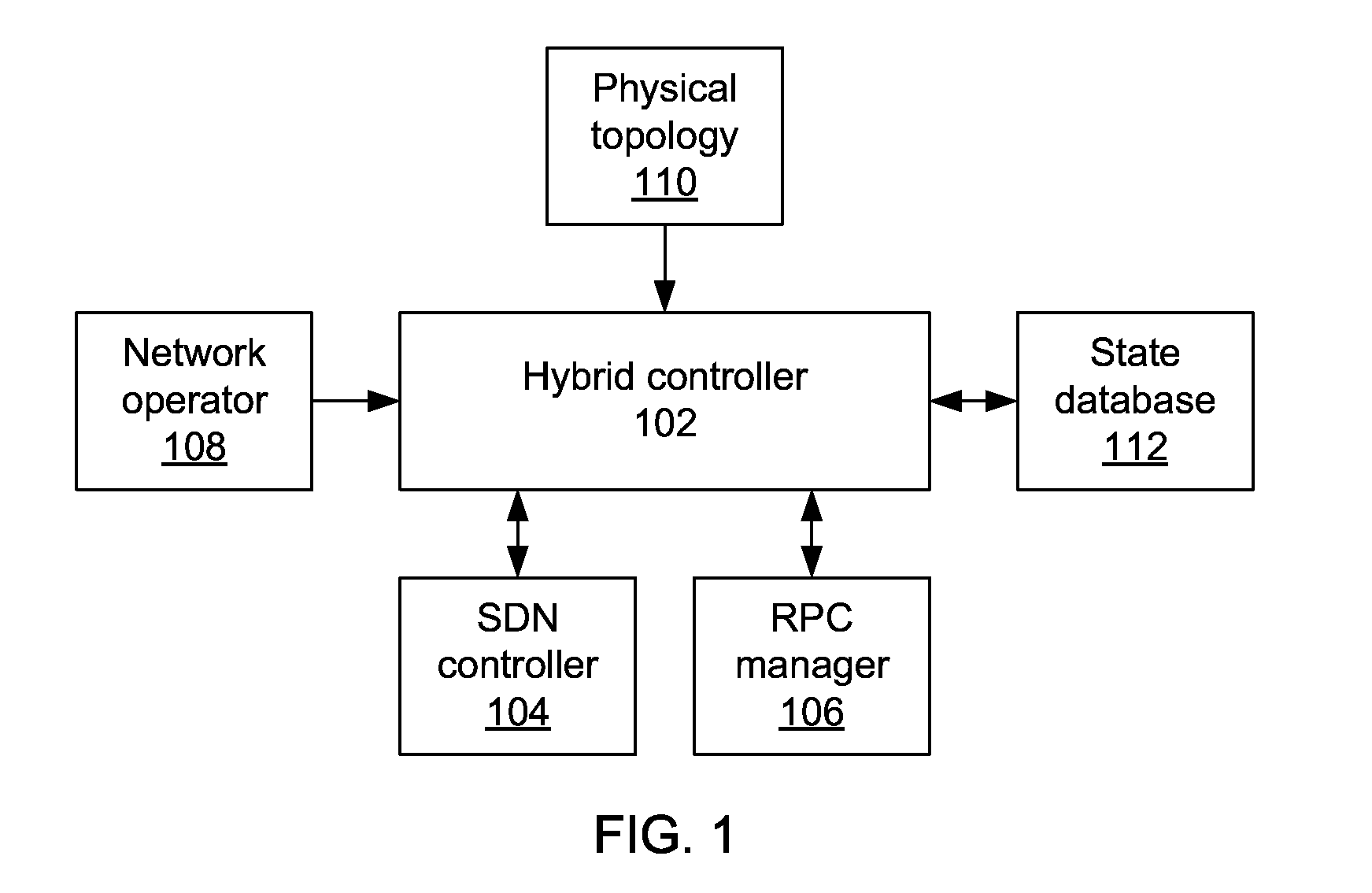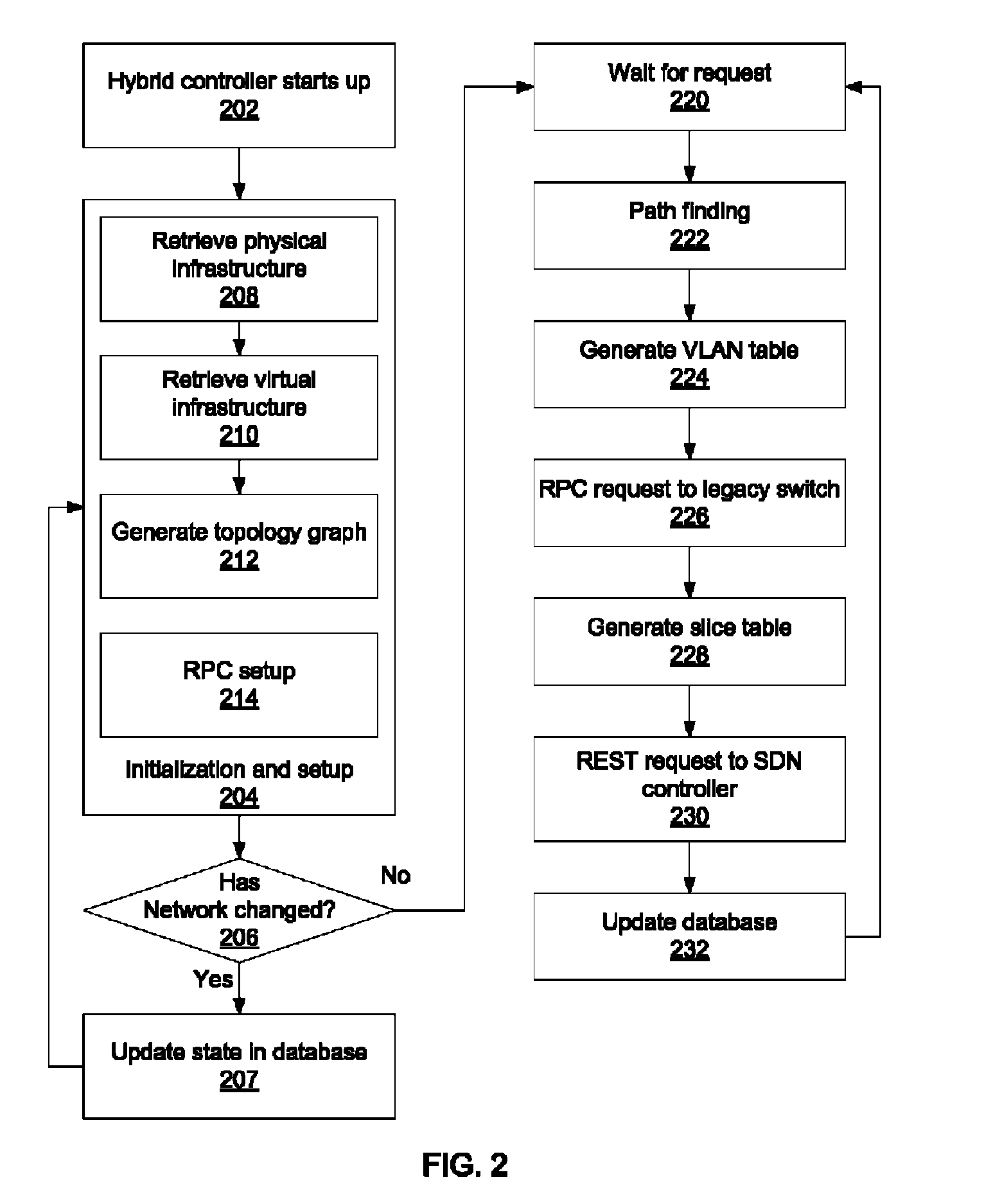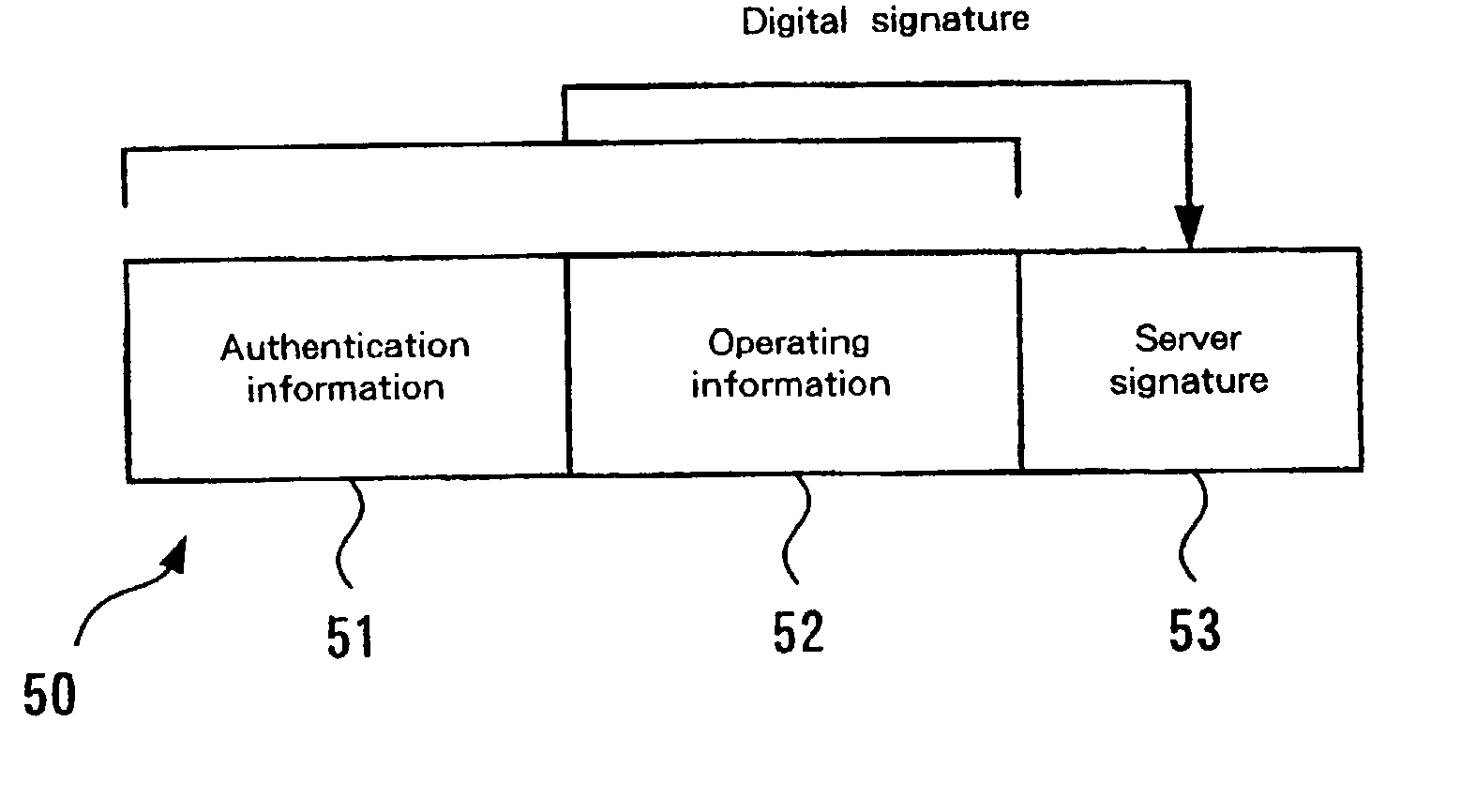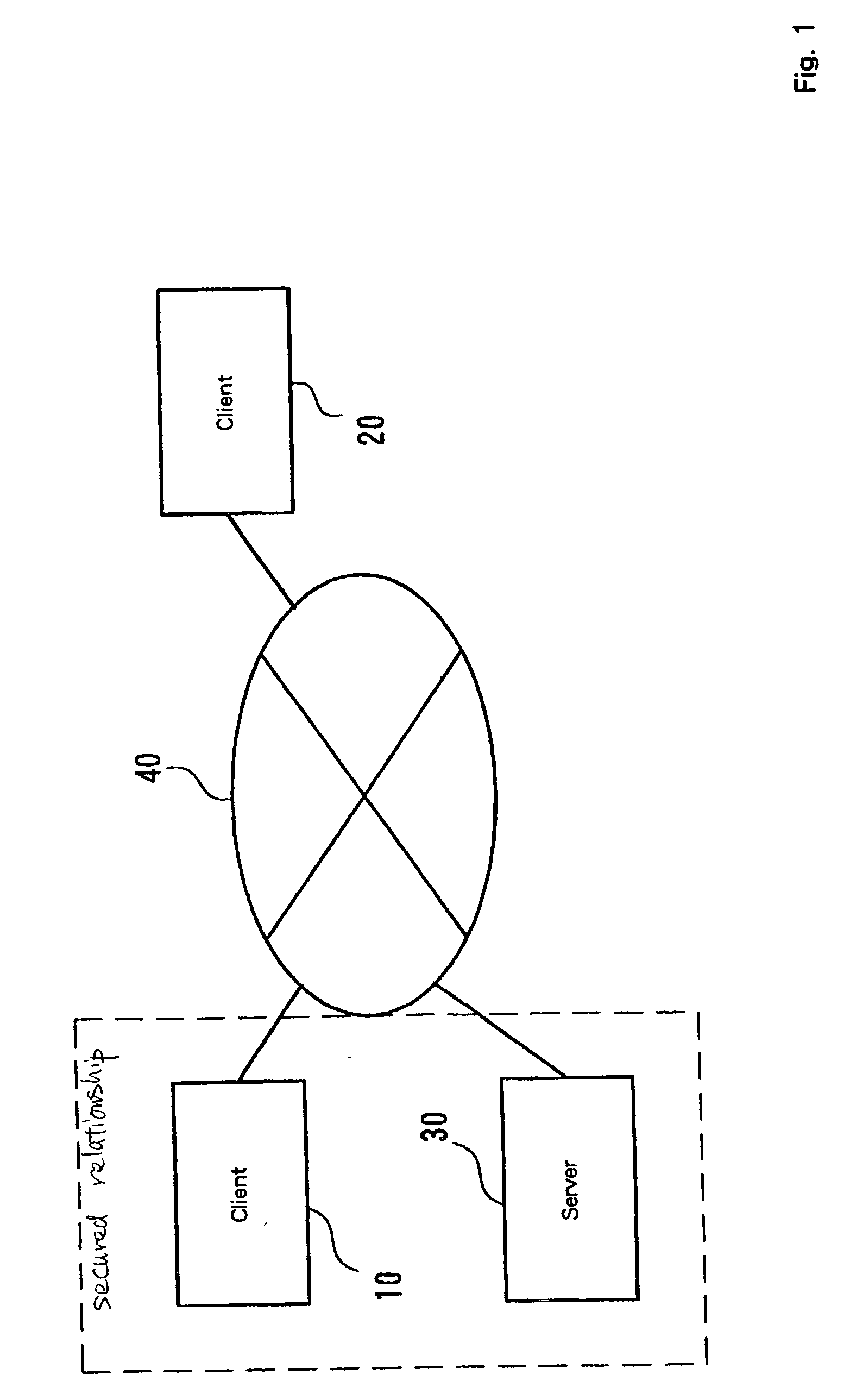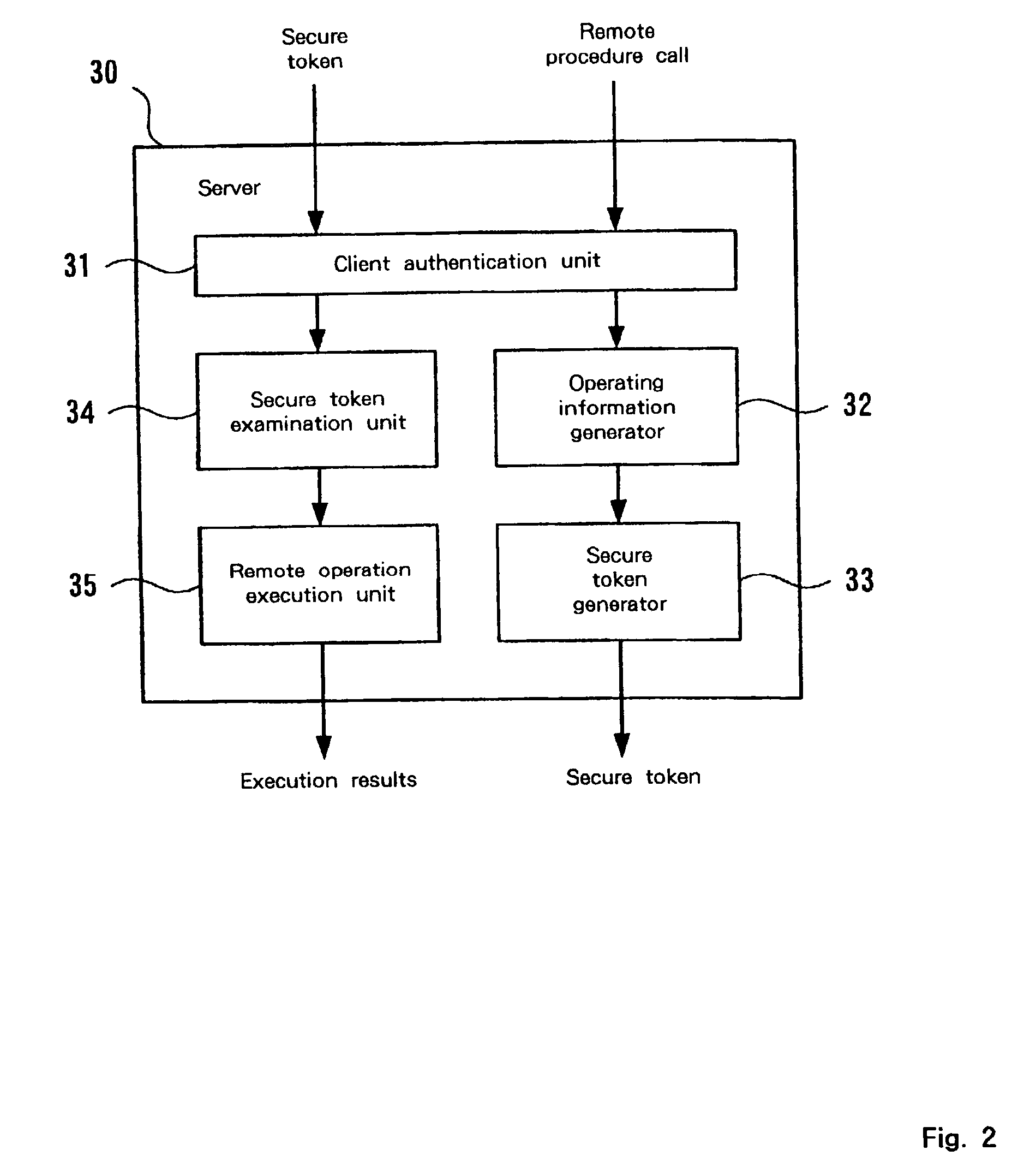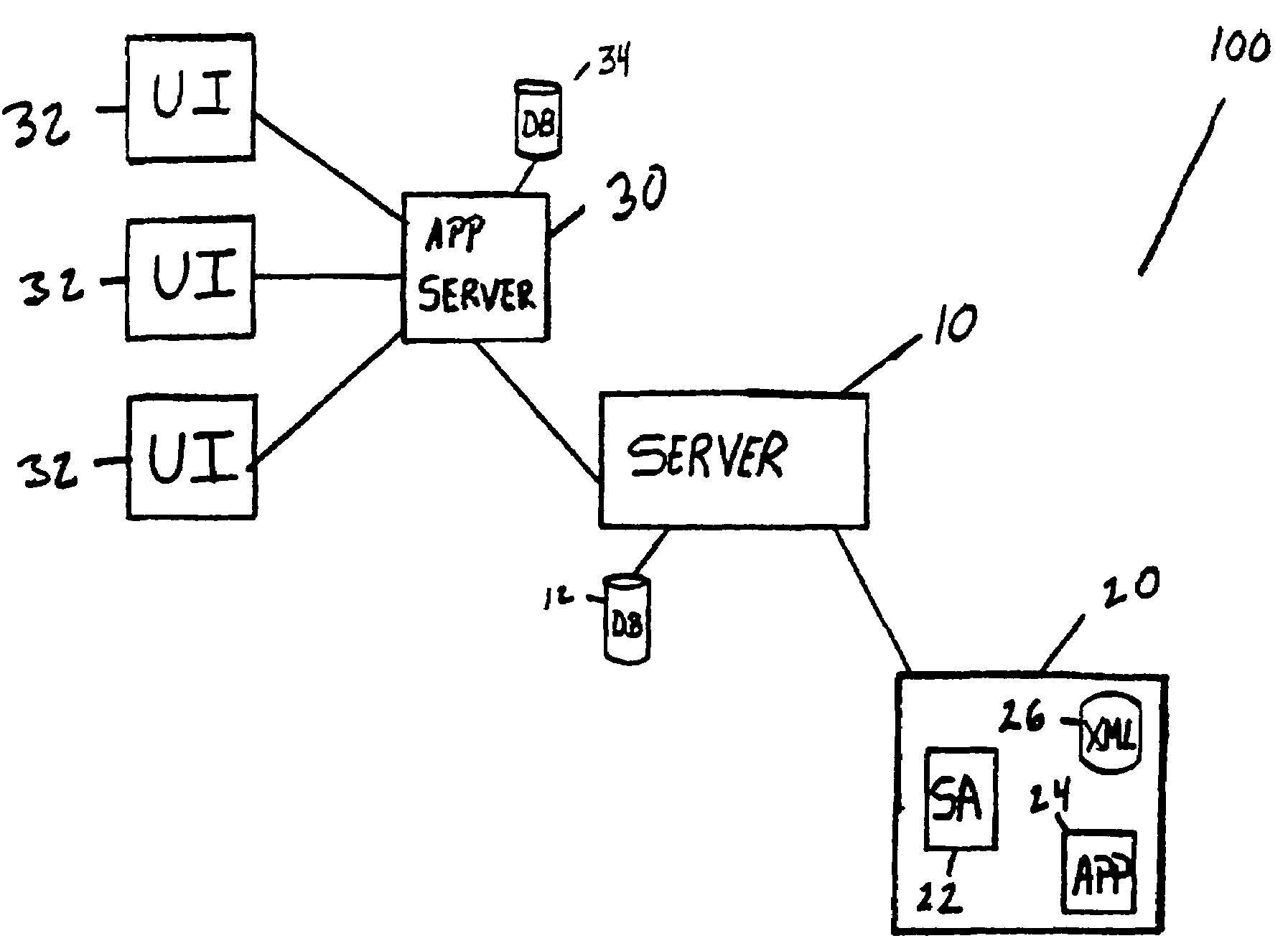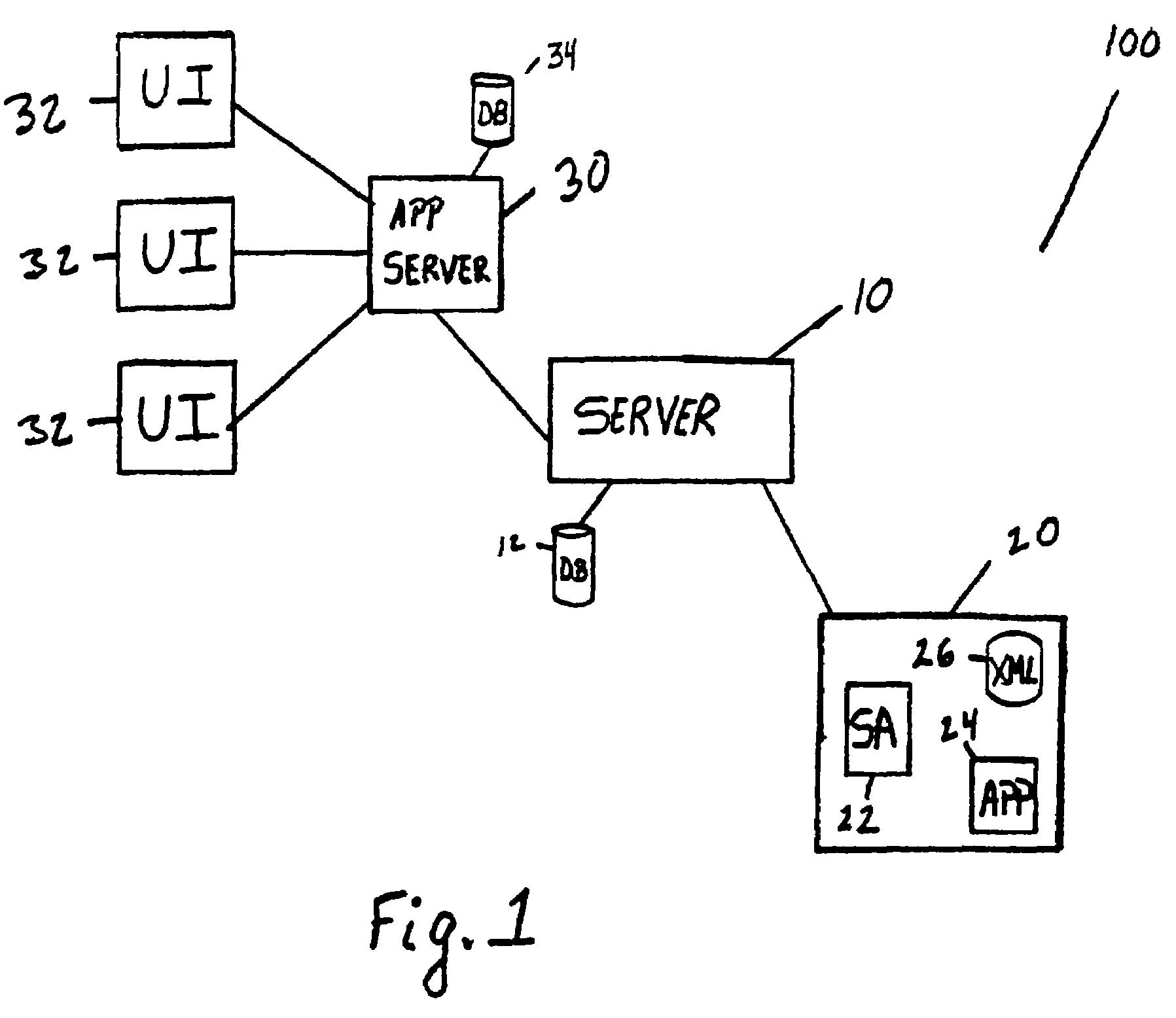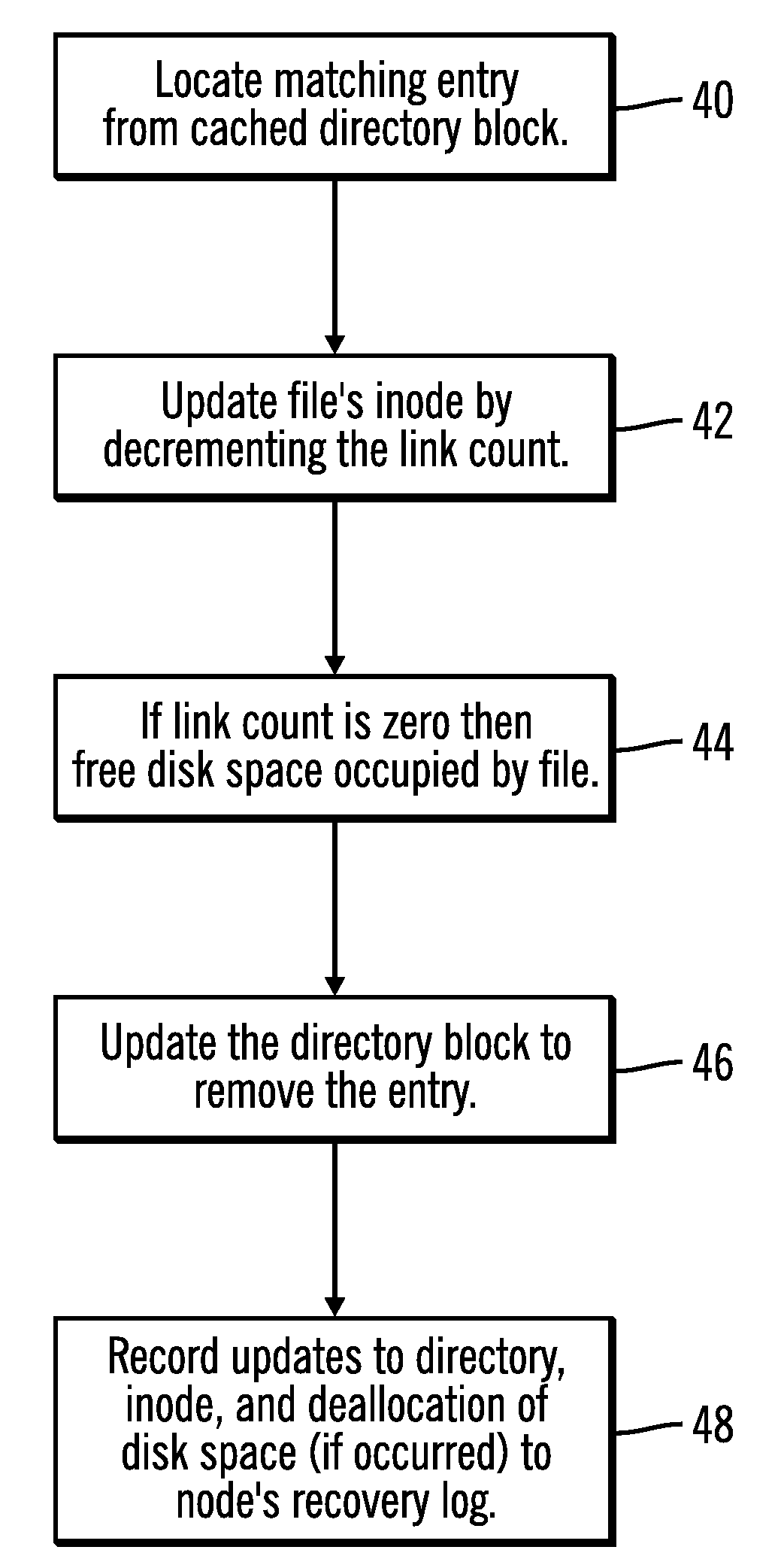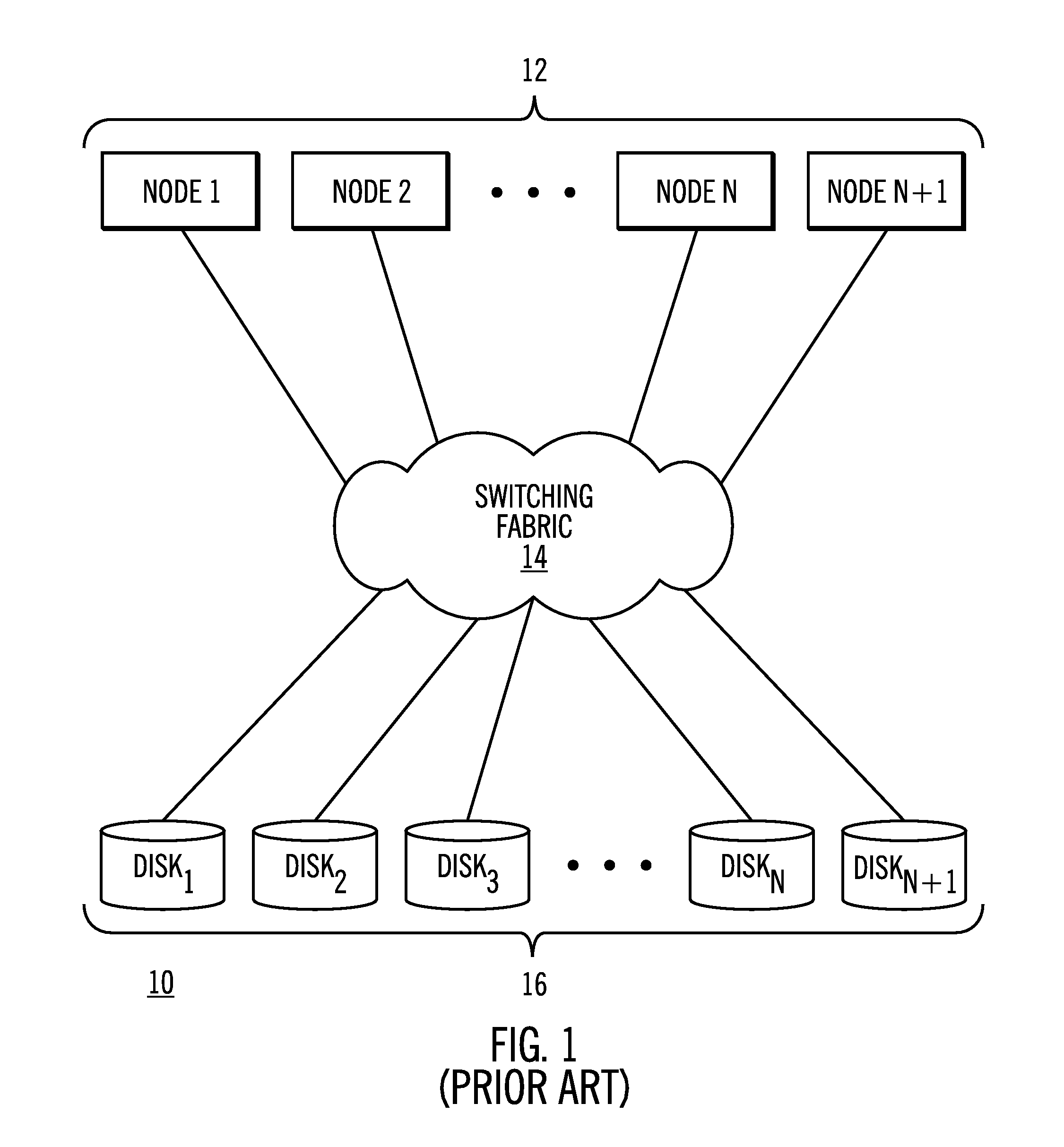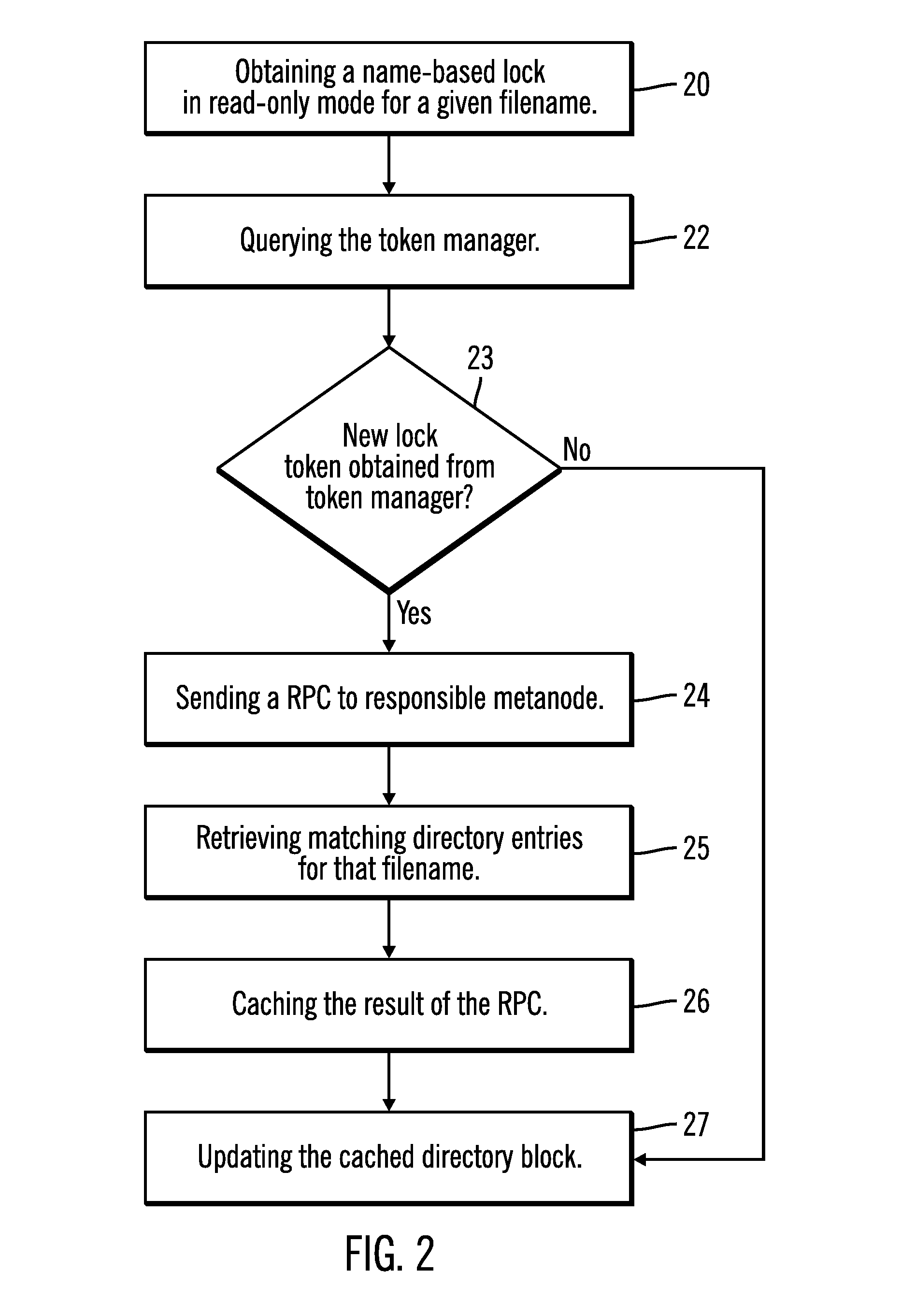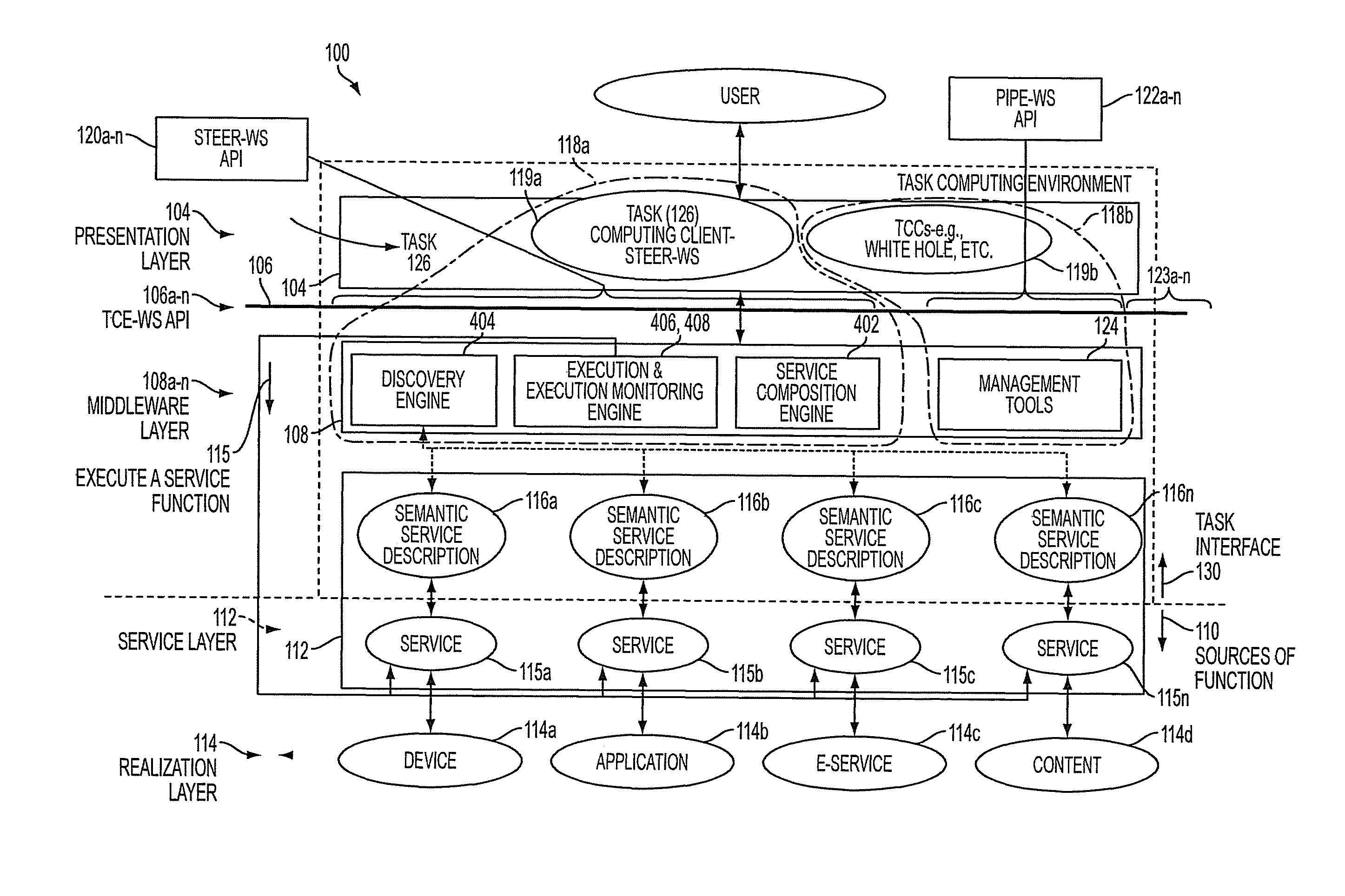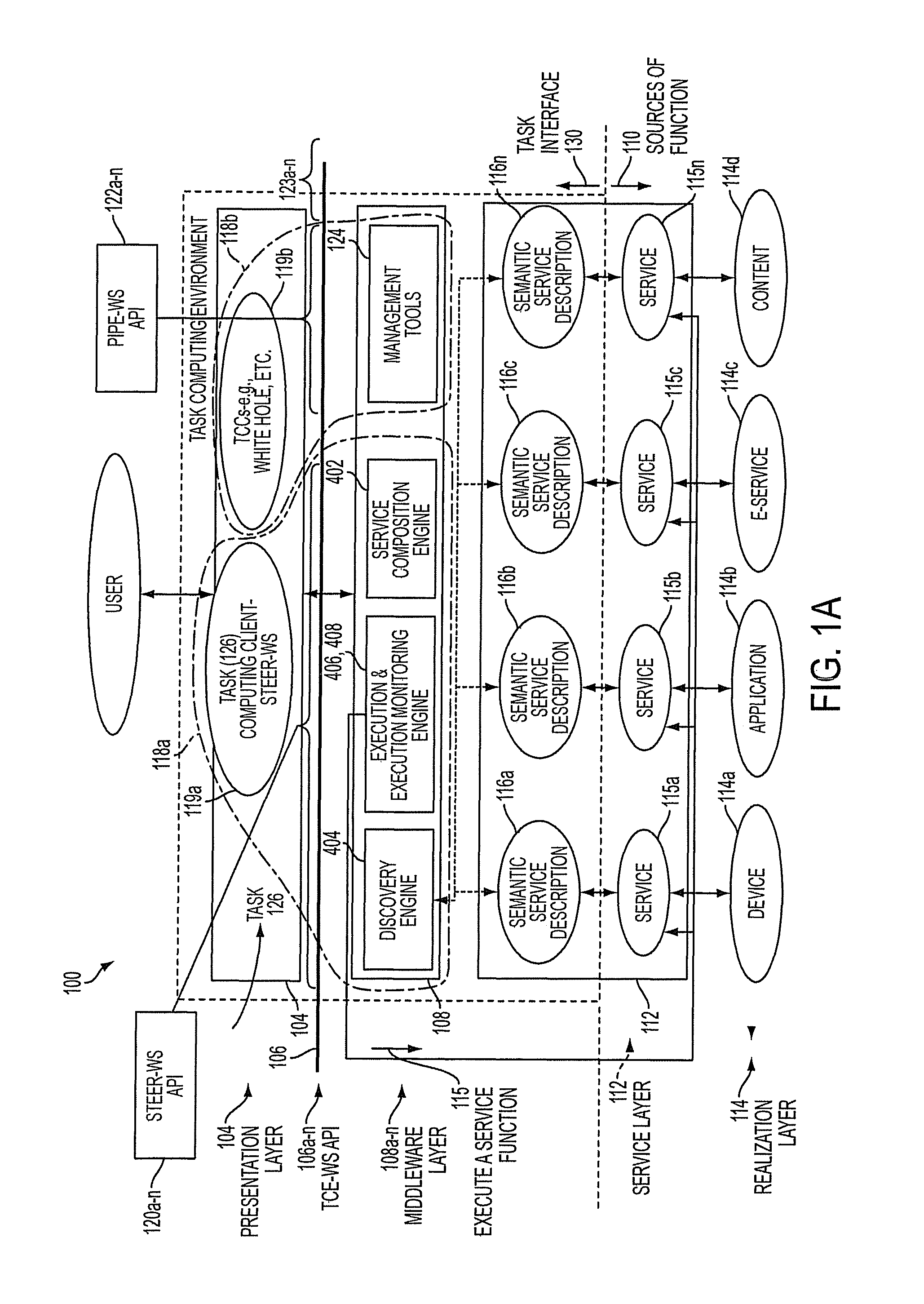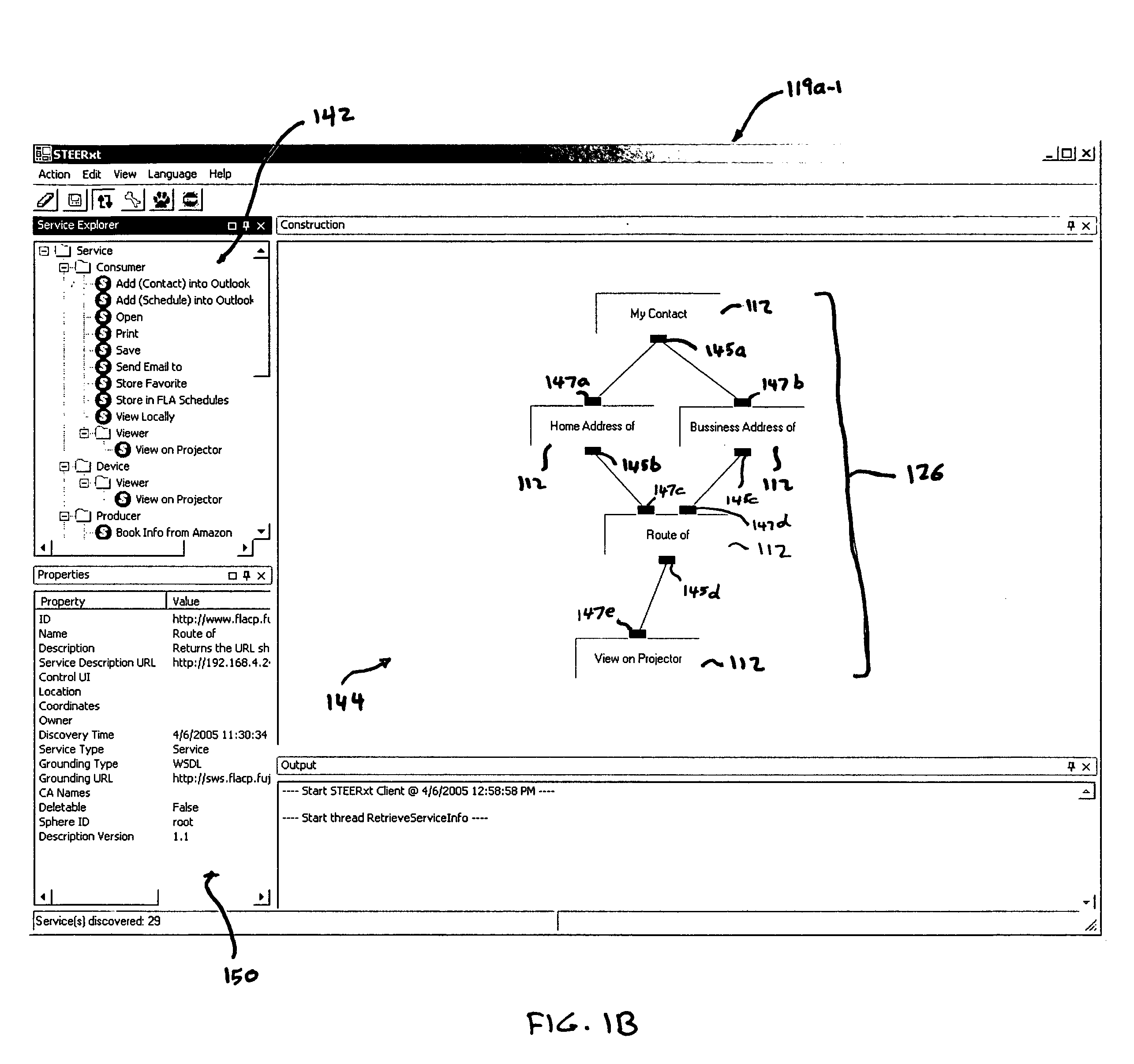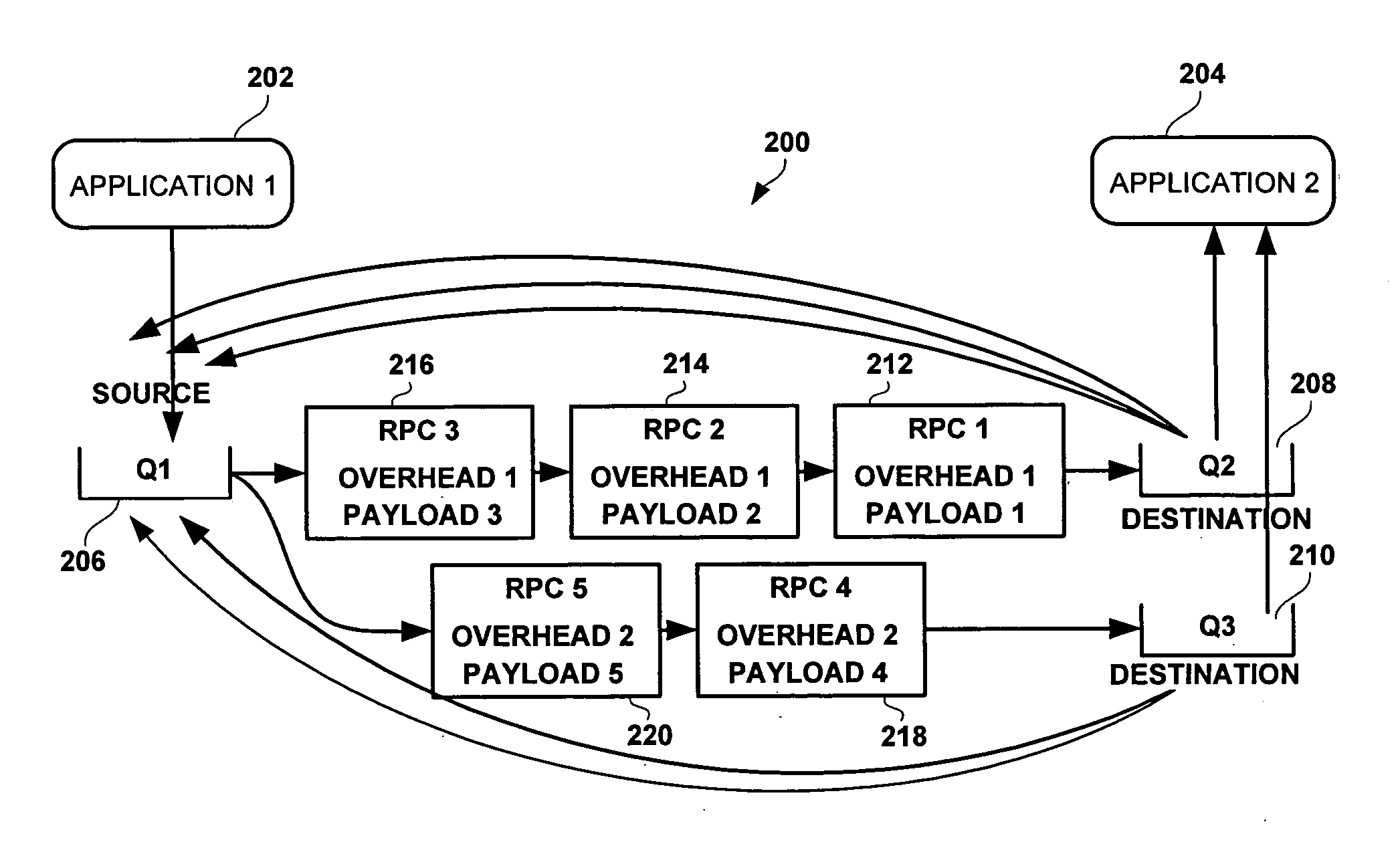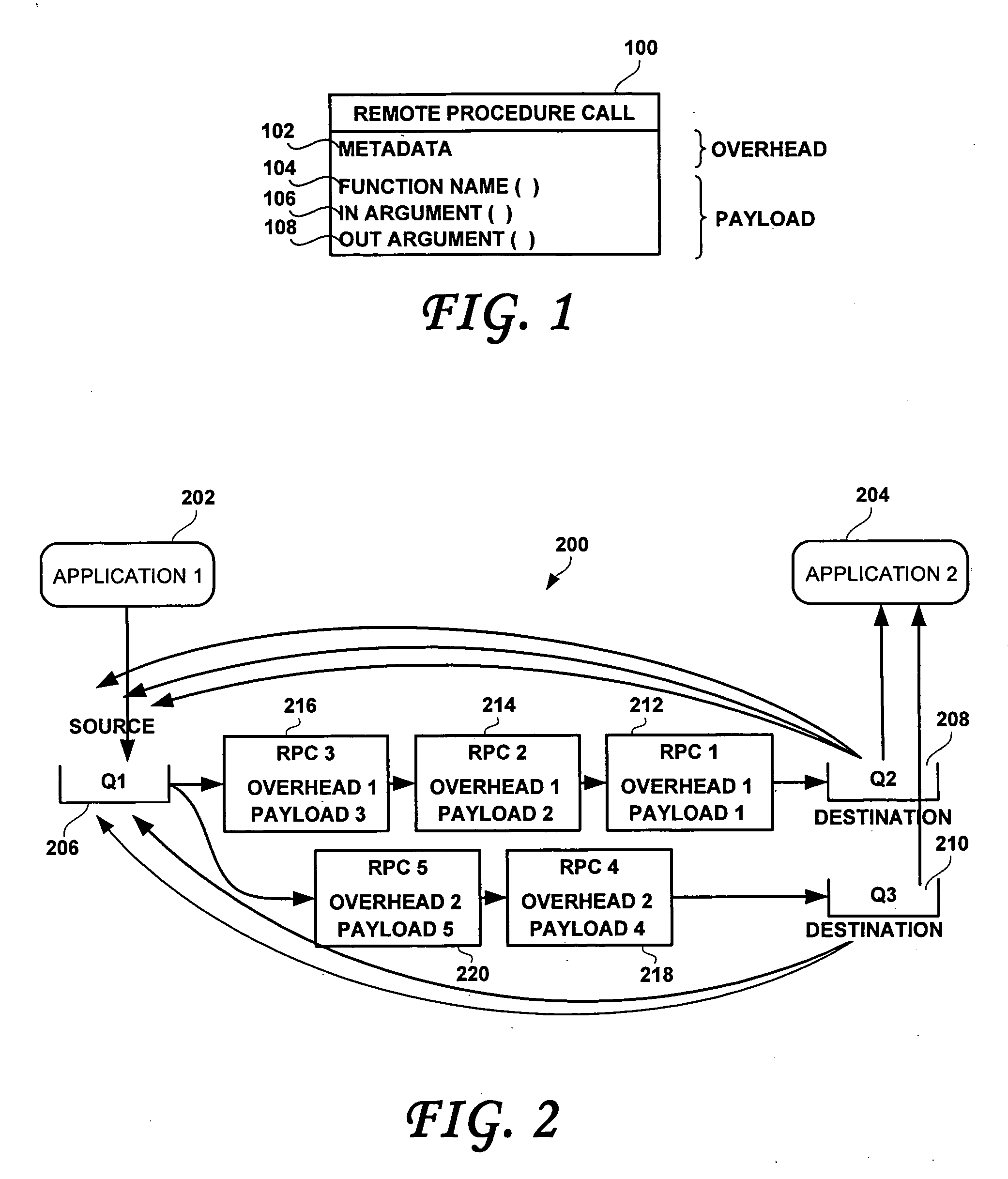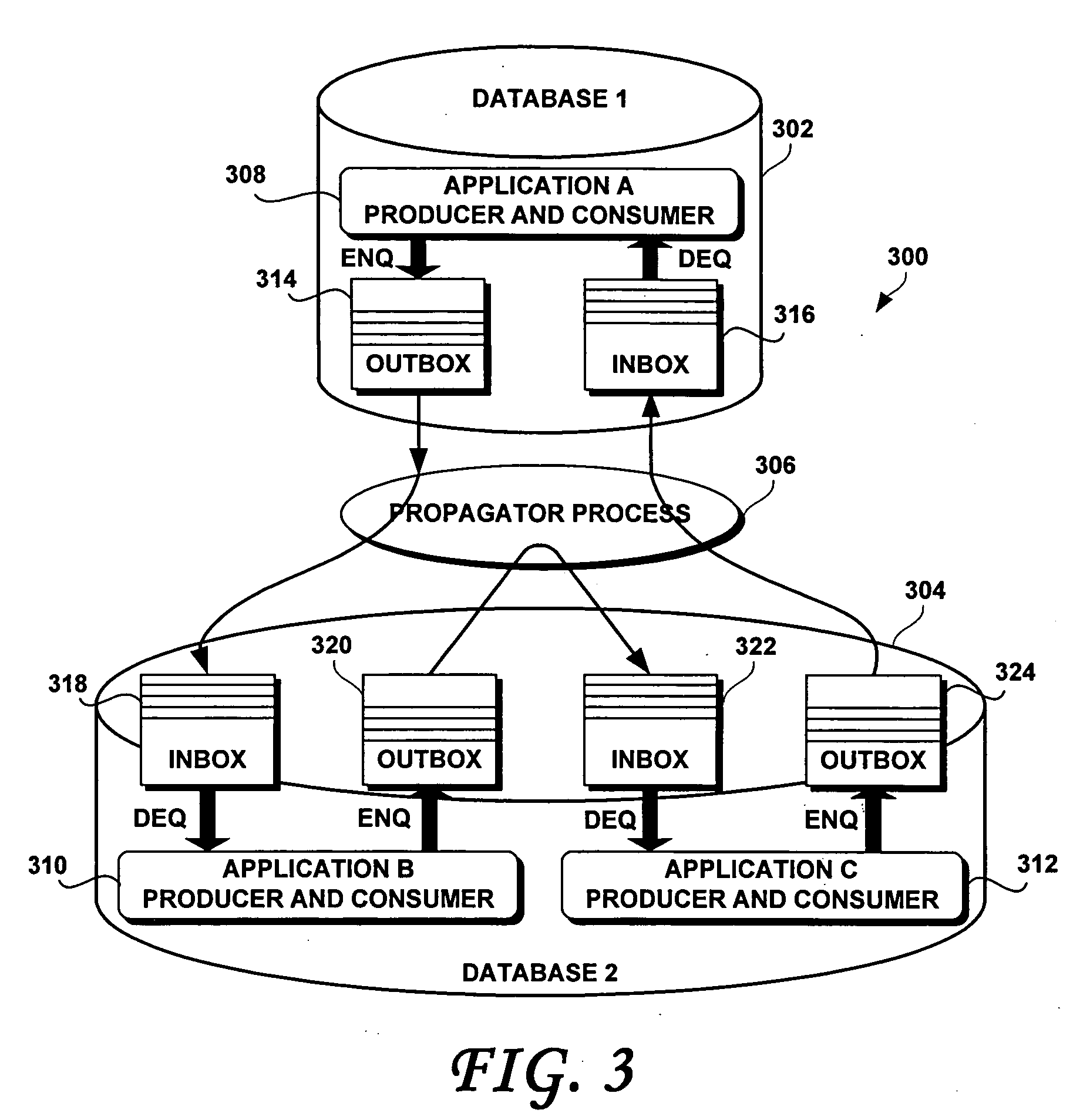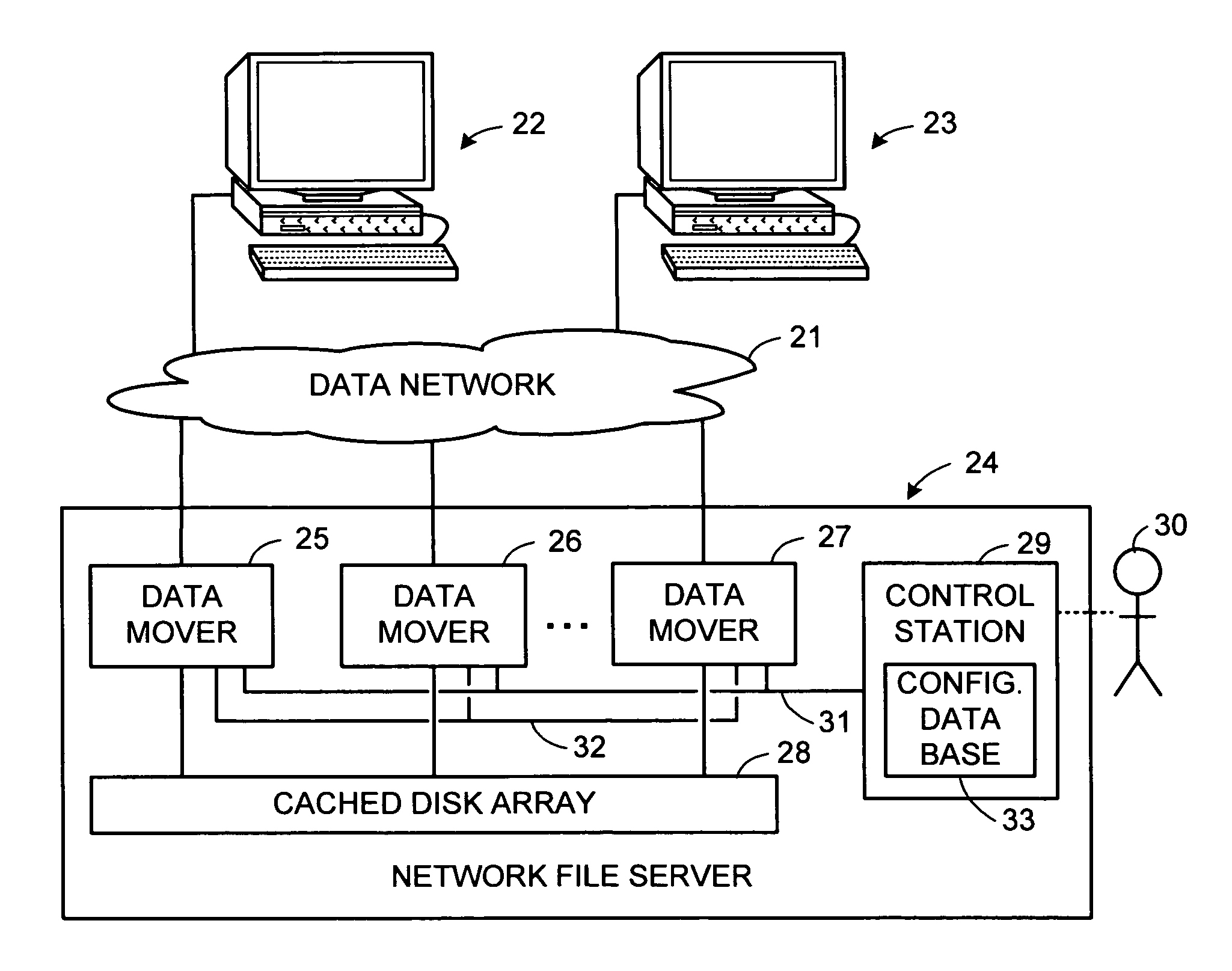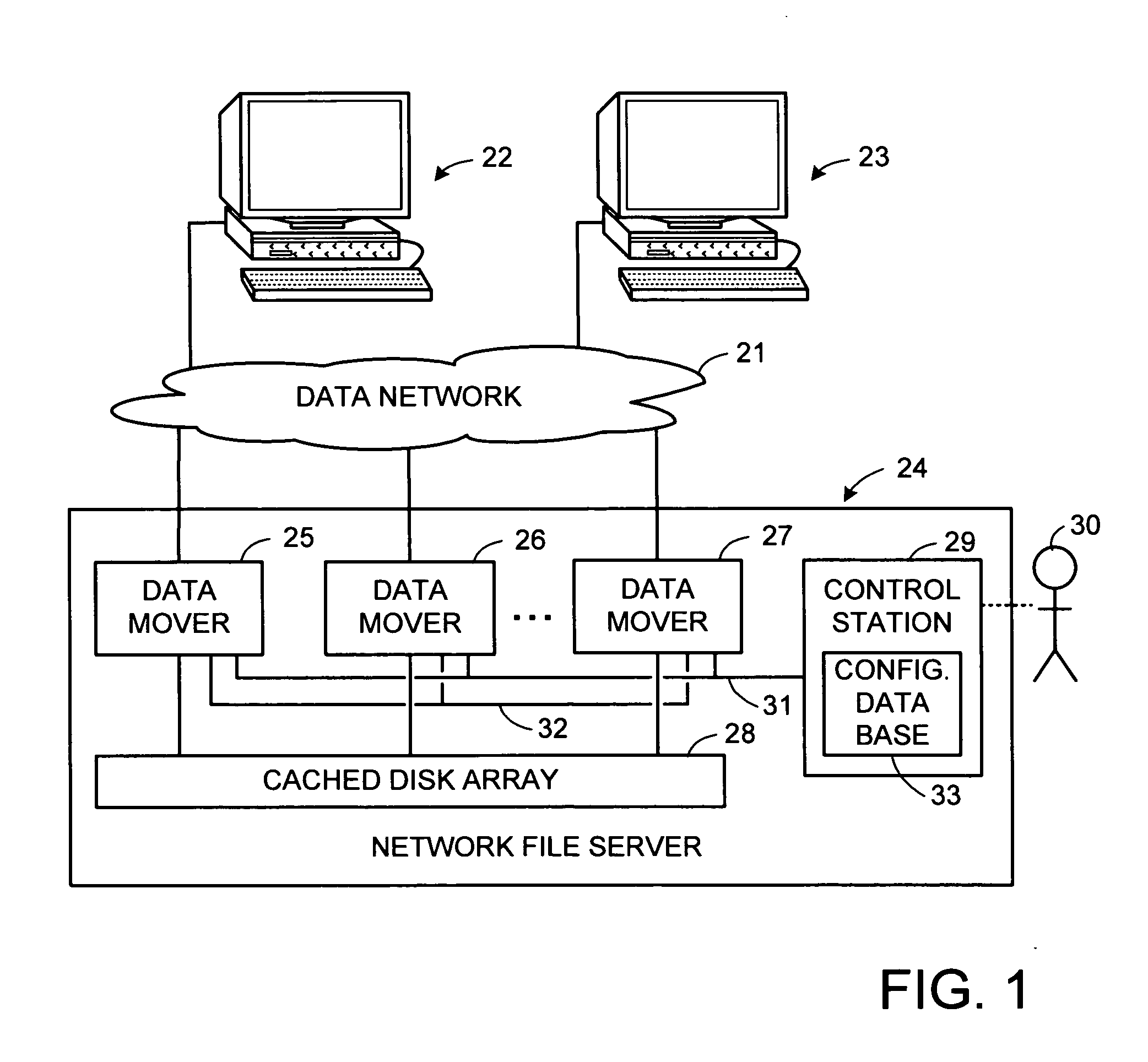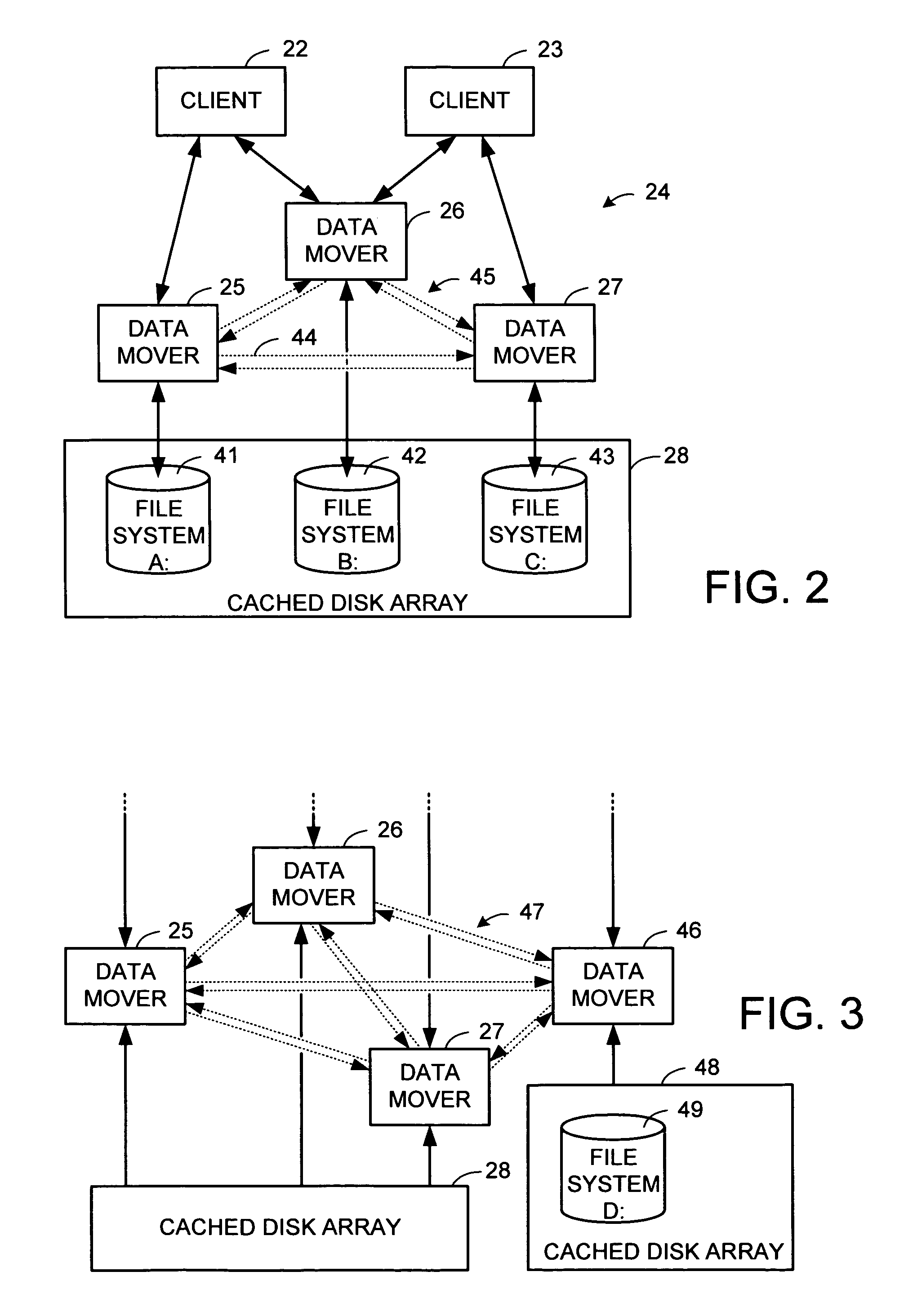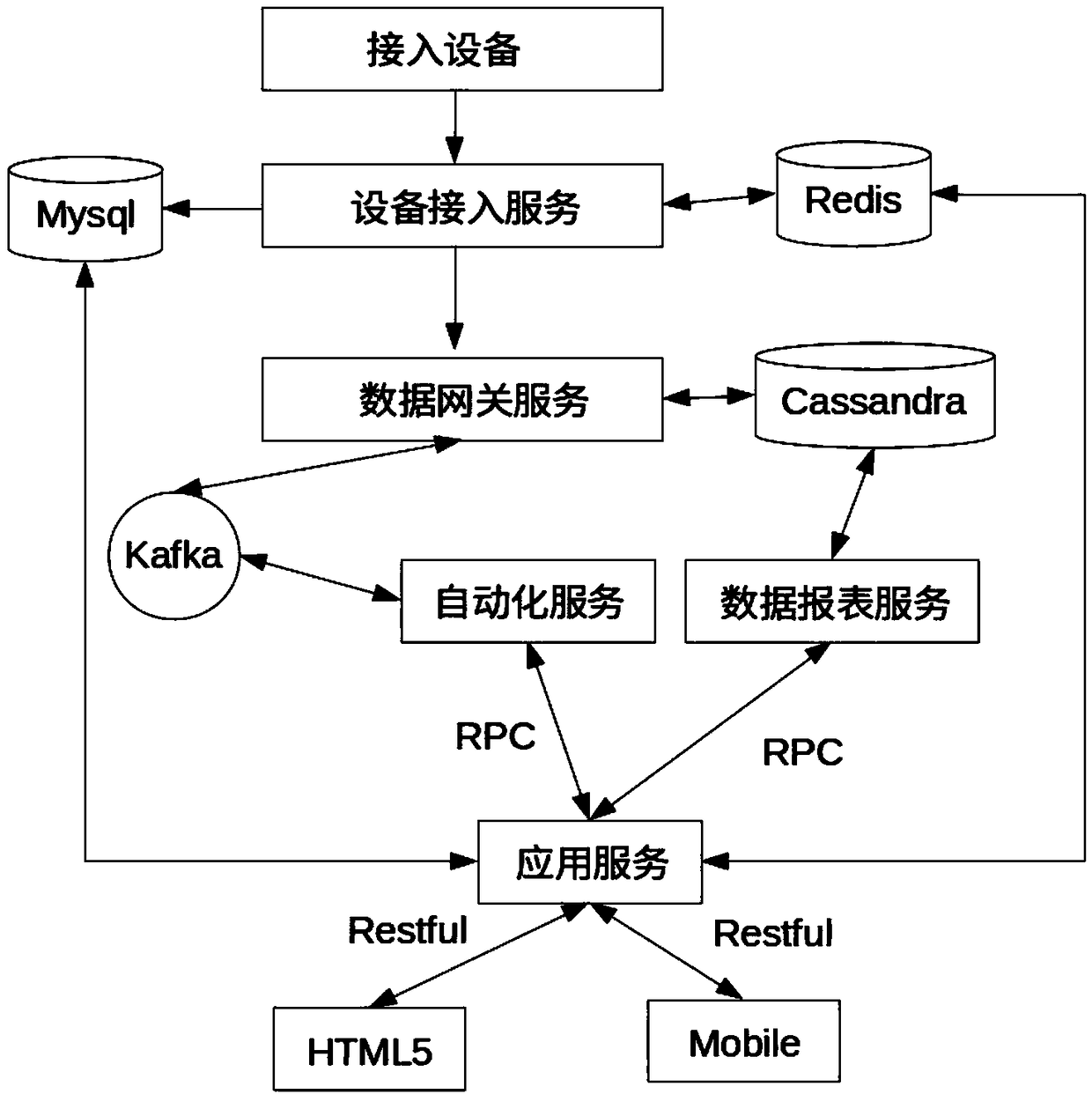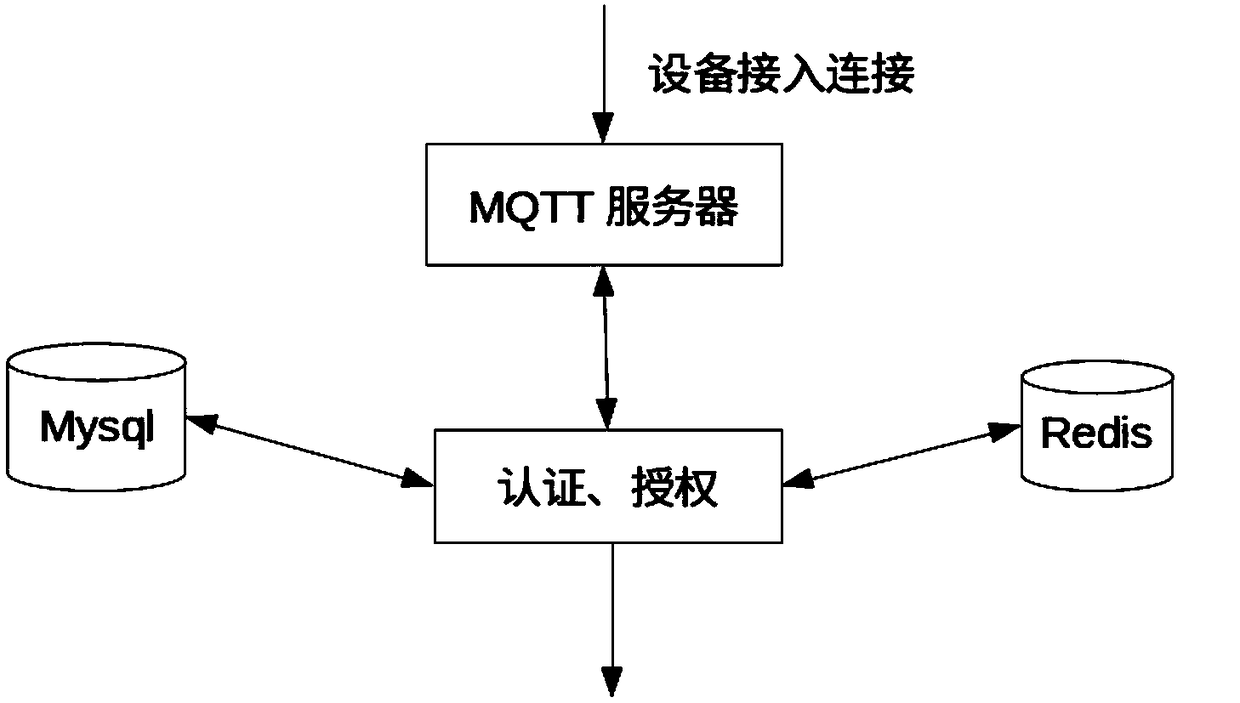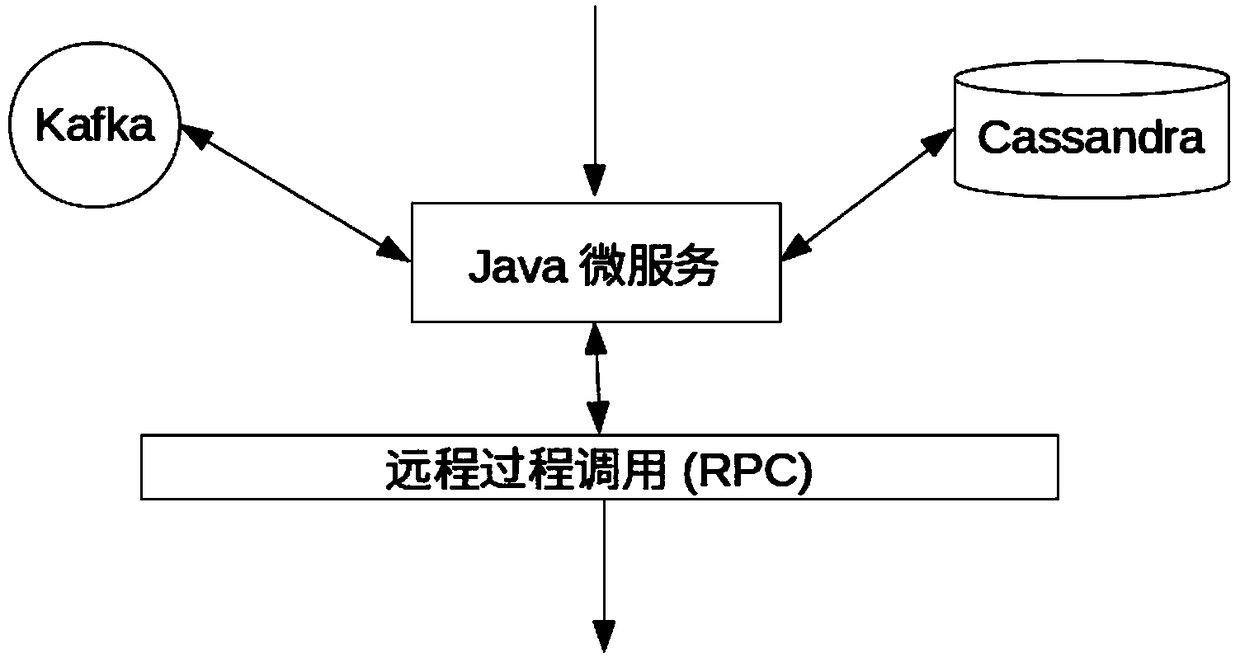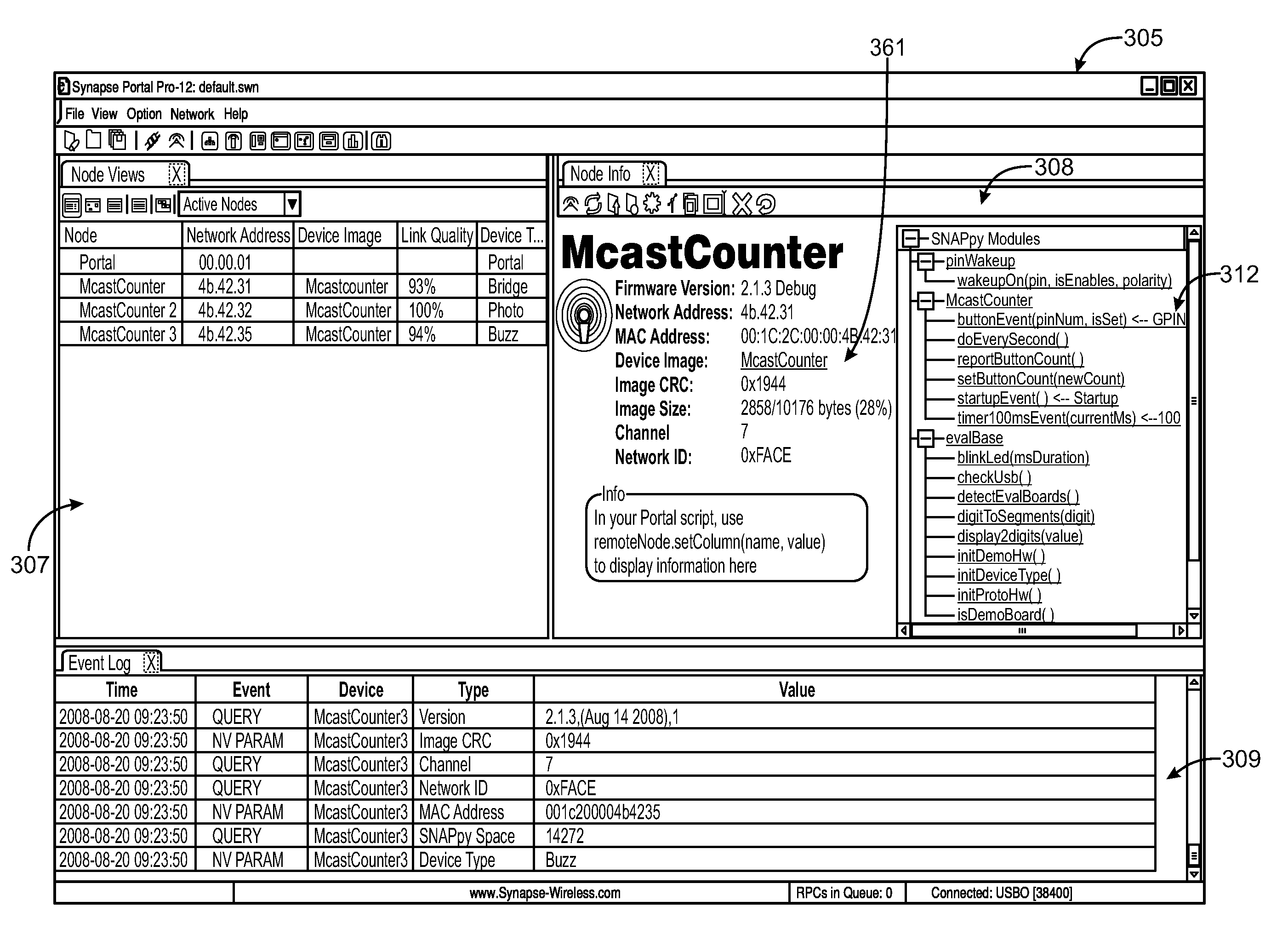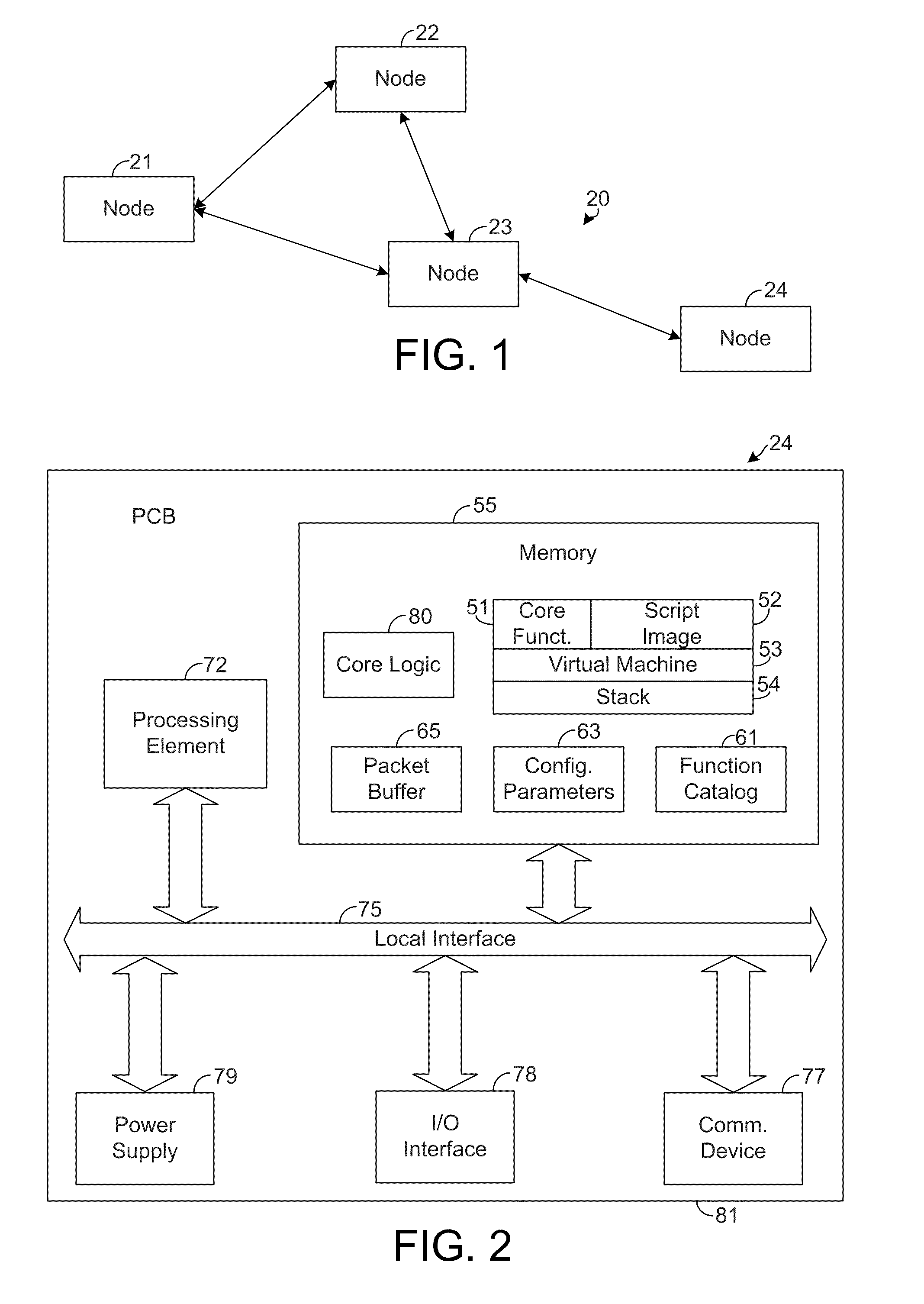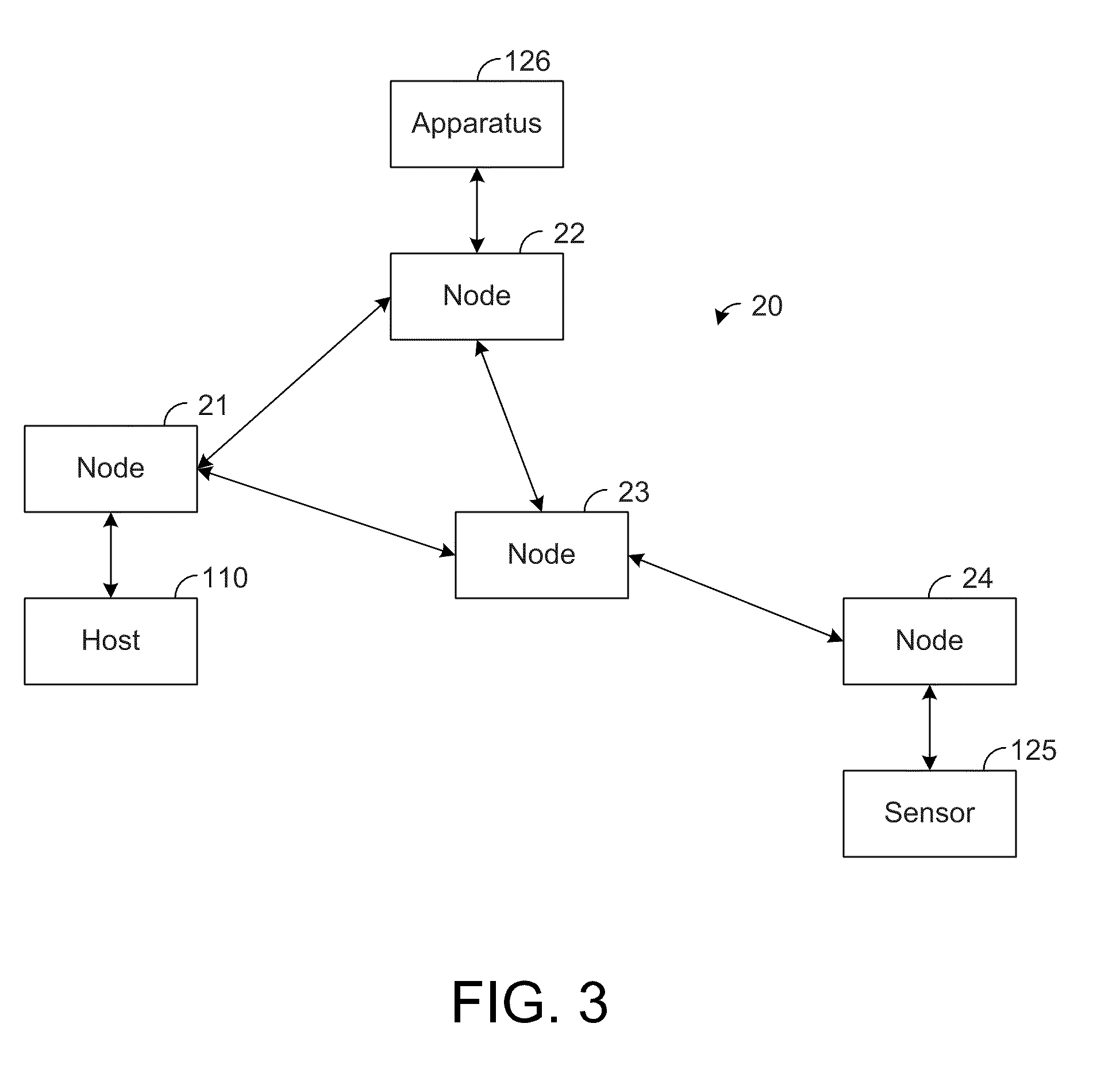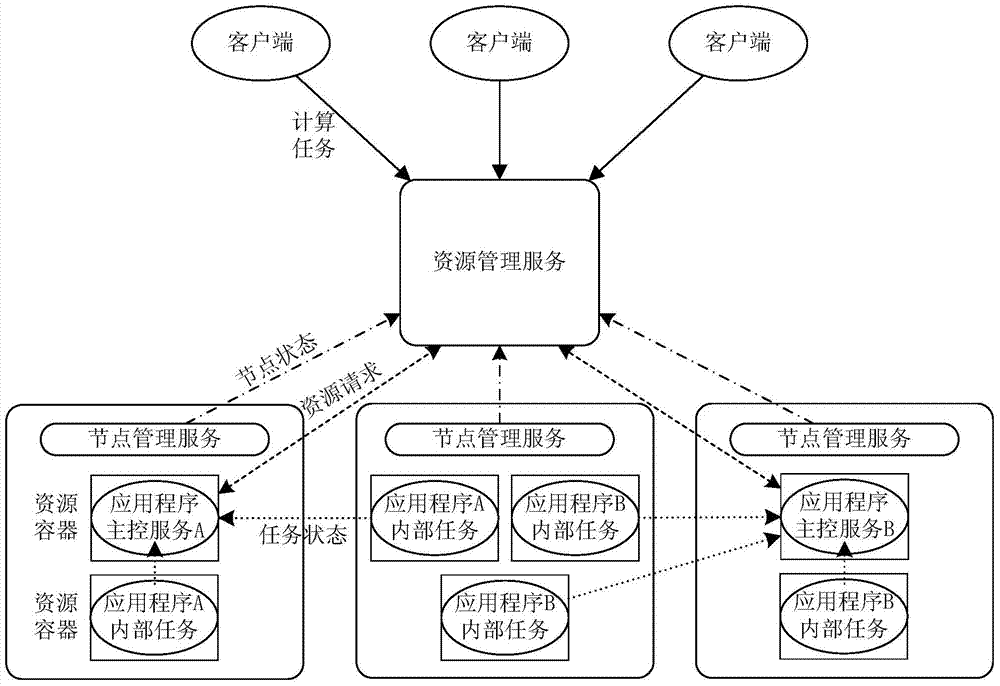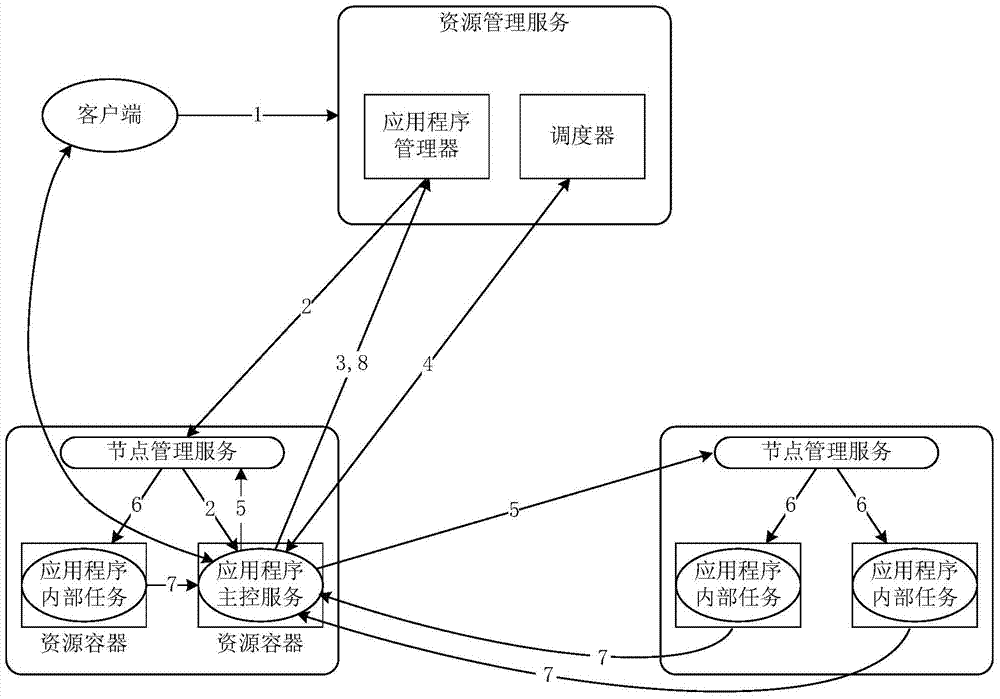Patents
Literature
665 results about "Remote procedure call" patented technology
Efficacy Topic
Property
Owner
Technical Advancement
Application Domain
Technology Topic
Technology Field Word
Patent Country/Region
Patent Type
Patent Status
Application Year
Inventor
In distributed computing, a remote procedure call (RPC) is when a computer program causes a procedure (subroutine) to execute in a different address space (commonly on another computer on a shared network), which is coded as if it were a normal (local) procedure call, without the programmer explicitly coding the details for the remote interaction. That is, the programmer writes essentially the same code whether the subroutine is local to the executing program, or remote. This is a form of client–server interaction (caller is client, executor is server), typically implemented via a request–response message-passing system. In the object-oriented programming paradigm, RPC calls are represented by remote method invocation (RMI). The RPC model implies a level of location transparency, namely that calling procedures is largely the same whether it is local or remote, but usually they are not identical, so local calls can be distinguished from remote calls. Remote calls are usually orders of magnitude slower and less reliable than local calls, so distinguishing them is important.
Task computing
InactiveUS20040230636A1General purpose stored program computerMultiprogramming arrangementsProcedure callsWeb service
A computer-based system includes task computing enabling users to define tasks by combining available functionality and to execute such tasks. The computer-based system of includes available functionality which originates in devices, computing applications and electronic services available through local and remote procedure calls including Web Services, UPnP, CORBA, RMI, RPC, DCE, DCOM or comprises previously defined tasks. All available functionality is abstracted to the user as a service and each service is expressed in a service description language, and the services have a semantic description associated with them.
Owner:FUJITSU LTD
Method and apparatus for providing mobile and other intermittent connectivity in a computing environment
InactiveUS6981047B2Error prevention/detection by using return channelData switching by path configurationMobile endNetwork address
A seamless solution transparently addresses the characteristics of nomadic systems, and enables existing network applications to run reliably in mobile environments. The solution extends the enterprise network, letting network managers provide mobile users with easy access to the same applications as stationary users without sacrificing reliability or centralized management. The solution combines advantages of existing wire-line network standards with emerging mobile standards to create a solution that works with existing network applications. A Mobility Management Server coupled to the mobile network maintains the state of each of any number of Mobile End Systems and handles the complex session management required to maintain persistent connections to the network and to other peer processes. If a Mobile End System becomes unreachable, suspends, or changes network address (e.g., due to roaming from one network interconnect to another), the Mobility Management Server maintains the connection to the associated peer task—allowing the Mobile End System to maintain a continuous connection even though it may temporarily lose contact with its network medium. In one example, Mobility Management Server communicates with Mobile End Systems using Remote Procedure Call and Internet Mobility Protocols.
Owner:MOBILE SONIC INC
Task computing
InactiveUS20050246726A1Program control using stored programsConcurrent instruction executionLayer interfaceProcedure calls
Task Computing computer system by segmenting the system into a plurality of implementation tiers of a presentation layer, a remote procedure call programming interface (API), a middleware layer to which the presentation layer interfaces via the remote procedure call API to real-time, dynamically generate a computer implemented task interface at the presentation layer to a semantically described source of function as a service on a computer system, and a service layer and a function source realization layer providing the semantically described source of function as the service on the computer system to which the middleware layer interfaces. Real-time and dynamically composing an executable task that comprises one or more services using the generated task interface at the presentation layer to one or more services on the computer based upon the semantically described application-, device- and service-rich computer.
Owner:FUJITSU LTD
XML remote procedure call (XML-RPC)
InactiveUS7028312B1Easy to implementLess complexMultiple digital computer combinationsSpecific program execution arrangementsProcedure callsXML-RPC
Owner:SOFTWARE AG USA
Method of <script> based remote JavaScript function call of web page
InactiveUS6941562B2Multiprogramming arrangementsMultiple digital computer combinationsReal-time dataWeb browser
The present invention permits a JavaScript-based Remote Procedure Call (RPC) to be executed from a Web page displayed in a Web browser window, without utilizing browser plug-in, Java Applet, or ActiveX technology. Traditionally, clunky downloads and Web browser plug-ins has been required to enable Web page interactivity, which greatly compromises the performance and reach of the Web page. Based purely on HTML and JavaScript, the present invention utilizes the HTML <script> element to pass data to the server and execute a remote procedure, receiving the resulting output to the same displayed Web page. The present invention can be used to build a lightweight Web page that offers real-time data and interactivity.
Owner:NETGRATUS INC +1
Analytics system and method
An agentless software data collector in a customer computer network collects metrics data from managed devices on the network to provide to a remote data center accessed via a public wide area network (WAN) interface. The software data collector collects metrics data, as well as receives real-time queries, such as from a Remote Procedure Call (RPC) initiated from a hosted web interface.
Owner:DYNATRACE
System and method for facilitating context-switching in a multi-context computer system
InactiveUS6944699B1Software simulation/interpretation/emulationMemory systemsOperational systemProcedure calls
A virtual machine monitor (VMM) is included in a computer system that has a protected host operating system (HOS). A virtual machine running at least one application via a virtual operating system is connected to the VMM. Both the HOS and the VMM have separate operating contexts and disjoint address spaces, but are both co-resident at system level. A driver that is downloadable into the HOS at system level forms a total context switch between the VMM and HOS contexts. A user-level emulator accepts commands from the VMM via the system-level driver and processes these commands as remote procedure calls. The emulator is able to issue host operating system calls and thereby access the physical system devices via the host operating system. The host operating system itself thus handles execution of certain VMM instructions, such as accessing physical devices.
Owner:VMWARE INC
Adaptive timeout value setting for distributed computing environment (DCE) applications
InactiveUS6526433B1Hardware monitoringMultiple digital computer combinationsValue setDistributed Computing Environment
An adaptive timeout value setting is determined for DCE applications, wherein the timeout value setting is adapted and adjusted according to environmental factors and communication conditions between a client / server pair. The adaptive timeout value setting takes into consideration the communication time between a client and a server in each client / server pair in determining and setting a timeout value for each pair. The timeout value for a client / server pair is adjusted in a dynamic fashion so that the client is able to be more adaptive to real environment changes and so that the server's performance is not degraded due to ineffective timeouts. The system and method determines an adaptive timeout value setting in distributed computing environment (DCE) applications for a client / server pair wherein each pair has a client system and a server system. A server response time of the server system is tracked to a remote procedure call from the client system. The remote procedure call includes a binding handle, and the server response time is based on a time of the server system responding to the remote procedure. An optimal timeout value is calculated from the response time, and a timeout value of the binding handle is reset as the optimal timeout value.
Owner:IBM CORP
Distributed shared memory using interconnected atomic transaction engines at respective memory interfaces
ActiveUS10732865B2Light weightLess complexInput/output to record carriersProgram synchronisationComputer architectureMemory interface
A hardware-assisted Distributed Memory System may include software configurable shared memory regions in the local memory of each of multiple processor cores. Accesses to these shared memory regions may be made through a network of on-chip atomic transaction engine (ATE) instances, one per core, over a private interconnect matrix that connects them together. For example, each ATE instance may issue Remote Procedure Calls (RPCs), with or without responses, to an ATE instance associated with a remote processor core in order to perform operations that target memory locations controlled by the remote processor core. Each ATE instance may process RPCs (atomically) that are received from other ATE instances or that are generated locally. For some operation types, an ATE instance may execute the operations identified in the RPCs itself using dedicated hardware. For other operation types, the ATE instance may interrupt its local processor core to perform the operations.
Owner:ORACLE INT CORP
Integrating distributed computing environment remote procedure calls with an advisory work load manager
InactiveUS6067580AResource allocationMultiple digital computer combinationsAmbulatory systemDistributed Computing Environment
Distributed computing environment (DCE) remote procedure calls (RPCs) are integrated with an advisory work load manager (WLM) to provide a way to intelligently dispatch RPC requests among the available application server processes. The routing decisions are made dynamically (for each RPC) based on interactions between the location broker and an advisory work load manager. Furthermore, when the system contains multiple coupled processors (tightly coupled within a single frame, or loosely coupled within a computing complex, a local area network (LAN) configuration, a distributed computing environment (DCE) cell, etc.), the invention extends to balance the processing of RPC requests and the associated client sessions across the coupled systems. Once a session is assigned to a given process, the invention also supports performance monitoring and reporting, dynamic system resource allocation for the RPC requests, and potentially any other benefits that may be available through the specific work load manager (WLM).
Owner:IBM CORP
Virtual private server with enhanced security
ActiveUS7461144B1Improve securityData processing applicationsDigital computer detailsComputer resourcesOperational system
An end user computer includes a processor running an operating system. A plurality of virtual private servers (VPSs) are supported within the operating system. A plurality of applications are available to a user of the end user computer. The applications are launched within different VPSs. At least one of the VPSs has multiple applications launched within it. At least two of the applications are launched within different VPSs, and communicate with each other using secure communications means, such as firewalls, proxies, dedicated clipboards, named pipes, shared memory, dedicated inter-process communications, Local Procedure Calls / Remote Procedure Calls, API, network sockets, TCP / IP communications, network protocol communications and memory mapped files. The VPSs can be dynamically created and terminated. VPS control means are available to the user and include means for creation / termination of VPSs, a file system and registry backup, control information for backup / restore of data on a VPS level, placement of applications / processes rules for creation / support of corresponding VPSs, granulation of isolation for VPS / applications / processes, computer resource control, definition of permissible operations for inter-VPS communication, means for definition of permissible operations for inter-process communications.
Owner:VIRTUOZZO INT GMBH
Method and apparatus for providing mobile and other intermittent connectivity in a computing environment
ActiveUS20050223115A1Reduce network trafficMaximum performanceError preventionConnection managementMobile endNetwork address
A seamless solution transparently addresses the characteristics of nomadic systems, and enables existing network applications to run reliably in mobile environments. The solution extends the enterprise network, letting network managers provide mobile users with easy access to the same applications as stationary users without sacrificing reliability or centralized management. The solution combines advantages of existing wire-line network standards with emerging mobile standards to create a solution that works with existing network applications. A Mobility Management Server coupled to the mobile network maintains the state of each of any number of Mobile End Systems and handles the complex session management required to maintain persistent connections to the network and to other peer processes. If a Mobile End System becomes unreachable, suspends, or changes network address (e.g., due to roaming from one network interconnect to another), the Mobility Management Server maintains the connection to the associated peer task—allowing the Mobile End System to maintain a continuous connection even though it may temporarily lose contact with its network medium. In one example, Mobility Management Server communicates with Mobile End Systems using Remote Procedure Call and Internet Mobility Protocols.
Owner:MOBILE SONIC INC
Distributed transaction processing method on cloud computing platform
InactiveCN102831156AReduce overheadReduce the number of forced log writesTransmissionSpecial data processing applicationsData operationsTransaction log
The invention discloses a distributed transaction processing method on a cloud computing platform. The method comprises the following steps that: at first, start base services in a data storage cluster of the cloud computing platform, and start transaction processing services on a node of a data management cluster; connect a client end to a data management service node by a RPC (Remote Procedure Call Protocol), request a new transaction, and a local transaction manager receives a request to instantiate a transaction object and assign a transaction identifier for sending to the client end; the client end issues a data operation request of the transaction, and the local transaction manager sends the request to a corresponding transaction object for processing according to the transaction identifier owned by the client end; the client end issues a transaction submitting command, and the local manager is responsible for submitting the transaction. The distributed transaction processing method is applied to the cloud computing platform, so that size of transaction logs and log operation times are reduced by caching and combining transaction logs; and moreover, a master lock and lease management solve a blocking problem; a strategy processing failure condition is recovered to maintain data consistency.
Owner:ZHEJIANG UNIV
Hybrid network management
Method and systems for controlling a hybrid network having software-defined network (SDN) switches and legacy switches include initializing a hybrid network topology by retrieving information on a physical and virtual infrastructure of the hybrid network; generating a path between two nodes on the hybrid network based on the physical and virtual infrastructure of the hybrid network; generating a virtual local area network by issuing remote procedure call instructions to legacy switches in accordance with a network configuration request; and generating an SDN network slice by issuing SDN commands to SDN switches in accordance with the network configuration request.
Owner:NEC CORP
System and method for providing a representational state transfer proxy service for a blockchain cloud service
ActiveUS20190104196A1Key distribution for secure communicationResource allocationRepresentational state transferEngineering
In accordance with an embodiment, described herein are systems and methods for implementing a distributed ledger a blockchain cloud service. The blockchain cloud service can include nodes of the distributed ledger and a REST proxy service component. The REST proxy service uses a service development kit for the distributed ledger to communicate with the distributed ledger, and can provide REST APIs for use by client applications to query through chaincodes, synchronously or asynchronously invoke transactions through the chaincodes, get transaction statuses, and get BCS proxy versions. The REST proxy service component can authenticate REST calls, and translate the REST calls into remote procedural calls, for use in interfacing with the distributed ledger. The REST proxy service component can further provide REST APIs that support the same functions which are provided by the BCS management console component, and provide a user interface for client applications to consume the BCS instance.
Owner:ORACLE INT CORP
System and method for controlling television remotely through intelligent mobile phone
ActiveCN102404637ARealize remote control operationUnified operabilitySubstation equipmentTransmissionOperational systemThe Internet
The invention relates to a system and a method for controlling a television remotely through an intelligent mobile phone. The system comprises the television, a set-top box and the intelligent mobile phone and further comprises a central server connected with the set-top box through the Internet; and the intelligent mobile phone is connected with the central server through the Internet and controls the set-top box through http persistent connection. The invention has the beneficial effects that a software plug-in is installed in the android mobile phone as well as the android set-top box, and the keyboard or the motion event on an android operating system of the set-top box is invoked and triggered through RPC (remote procedure call), so that all applications of the set-top box can be controlled remotely through the mobile phone. A remote controller and the set-top box are based on WiFi (Wireless Local Area Network) network communication; a user is very familiar to the personal mobile phone, especially the input method of the mobile phone; and soft remote control of the mobile phone, which is based on the Internet technology, is helpful to unification of operation interface and operation mode of users and can realize real remote-controlled operation without being influenced by position, distance and sensitivity.
Owner:优地网络有限公司
Compilation of remote procedure calls between a timed HDL model on a reconfigurable hardware platform and an untimed model on a sequential computing platform
ActiveUS20050198606A1Guaranteed repeatabilityEasy to useElectrical testingSoftware simulation/interpretation/emulationTelecommunications linkProcedure calls
A system is described for managing interaction between an untimed HAL portion and a timed HDL portion of the testbench, wherein the timed portion is embodied on an emulator and the un-timed portion executes on a workstation. Repeatability of verification results may be achieved even though the HAL portion and the HDL portion run in parallel with each other. A communication interface is also described for synchronizing and passing data between multiple HDL threads on the emulator domain and simultaneously-running multiple HAL threads on the workstation domain. In addition, a remote procedural-call-based communication link, transparent to the user, is generated between the workstation and the emulator. A technique provides for repeatability for blocking and non-blocking procedure calls. FSMs and synchronization logic are automatically inferred to implement remote procedural calls. A subset of behavioral language is identified that combines the power of conventional modeling paradigms with RTL performance.
Owner:SIEMENS PROD LIFECYCLE MANAGEMENT SOFTWARE INC
Method of communicating asynchronous events to remote procedure call clients
A computer system in accordance with the present invention provides a method of communicating events from a server to remote procedure call clients. The disclosed technique begins with a remote procedure call by a remote procedure call client to a server to establish an initial client-server connection. Next, there is a remote procedure call to create a guaranteed delivery communication conduit, such as a named pipe, between the server and client and to create a server asynchronous event thread in a blocked state for blocking execution of the server asynchronous event thread. A client asynchronous event thread in the client is then created to open the named pipe. If the server detects an event, an event message is generated which places the server asynchronous event thread in an unblocked state to allow execution of the server asynchronous event thread. Event data may then be transmitted across the named pipe from the server to the client. After transfer of the event data is complete, the server asynchronous event thread is blocked. By unblocking the server asynchronous event thread when an event is detected and blocking the server asynchronous event thread following transmission of the event through a named pipe to the client, asynchronous events may be communicated by a server to remote procedure call clients. As a result, it is not necessary for a remote procedure call client to poll a server to receive asynchronous event information.
Owner:HEWLETT-PACKARD ENTERPRISE DEV LP
System for risk control over online payment
InactiveCN102194177AEffective controlEnsure safetyPayment architectureData synchronizationData connection
The invention discloses a system for risk control over online payment. An electronic commerce website is subjected to data connection with an online payment gateway through the system; the system comprises a data receiving port, a risk pattern identifying and automatic screening module, a risk control core module, a payment processing module, a data synchronizing port and an RPC (Remote Procedure Call) server side and is used for finishing the payment risk control and online payment flow. After a user order is generated, the system can be used for automatically analyzing and distinguishing the user order and then determining whether the user order belongs to high-risk orders, suspicious orders or trust orders by integrating various elements. Aiming at credit-card fraud, order cancel and the like in the current electronic commerce transaction process, particularly in the foreign trade B2C (Business to Customer) industry, the risk control system disclosed by the invention establishes an identification model, can carry out automatic identification and screening and can be used for effectively controlling the online payment so as to reduce the collection risk of online payment.
Owner:NANJING COFREE SOFTWARE TECH
Remote process transfering method and system in distribution type control system
ActiveCN1852209AMasking complexityRealize dual network redundancy switching functionData switching by path configurationDistribution controlControl system
Following modules are included at two ends of remote procedure call (RPC): external interface module for providing external uniform interface; client end module and server end module accessible by the external interface module; network interface module accessible by modules at client end and server end; and module of service process thread pool accessible by the server module. After receiving message of RPC, the external interface module obtains all configuration parameters of server task, creates an instance of client end module, and initiates call; client end module accomplishes packaging data and slicing segment, the network interface module sends the packaged data and sliced segment to server module at opposite end as well as carries out switching processes; after recombining segment of RPC messages, server module starts process threaded, and returns result back to caller along original route. Features are: easy of use, masking complexity, and redundant dual networks switching.
Owner:北京和利时控制技术有限公司
Hybrid network management
Method and systems for controlling a hybrid network having software-defined network (SDN) switches and legacy switches include initializing a hybrid network topology by retrieving information on a physical and virtual infrastructure of the hybrid network; generating a path between two nodes on the hybrid network based on the physical and virtual infrastructure of the hybrid network; generating a virtual local area network by issuing remote procedure call instructions to legacy switches in accordance with a network configuration request; and generating an SDN network slice by issuing SDN commands to SDN switches in accordance with the network configuration request.
Owner:NEC CORP
System and method for access control
InactiveUS20030005333A1User identity/authority verificationUnauthorized memory use protectionData setAccess control matrix
A mechanism for access control based on remote procedure calls is established whereby server management costs for the processing associated with the authentication of client access rights and the provision of requested resources can be reduced by distributing these costs among clients. A first client, which has an access right to a server via a network, can issue a remote procedure call to the server. The first client can also communicate with a second client, which doesn't have an access right to the server. The first client requests the server to issue a token, which is a data set for permitting the second client a limited access to the server, and subsequently the token prepared by the server is transmitted to the second client. The second client originally has no access rights relative to the server. However, if the second client transmits a remote procedure call using the received token, limited access is granted. The server performs a process designated by the remote procedure call from the second client. The token includes operating information for designating an operation to be performed based on the remote procedure call, and identification information for identifying the second client.
Owner:IBM CORP
Remote application publication and communication system
InactiveUS7587459B2Web data indexingMultiple digital computer combinationsCommunications systemProcedure calls
The invention is a system and method for publishing distributed applications accessible over a distributed network without having publishing computer to accept remote procedure calls from clients, and also allow integration between such distributed applications. In one embodiment, the invention includes a remote application computer having a service agent, translation file, and published software application thereon. The service agent provides the ability to identify the remote application computer and communicate with the distributed network, the translation file provides parameters to the service agent for interpreting the data i / o format of the published application, and the published application monitors and reports on conditions of a building or structure's environmental, security, and occupancy status.
Owner:EUTECH CYBERNETICS PTE
Concurrent directory update in a cluster file system
InactiveUS20090019047A1Efficient updateDirect accessDigital data information retrievalSpecial data processing applicationsClustered file systemFile system
A method for avoiding directory conflicts across a file system having multiple nodes with one node representing a token manager. For each directory, at least one metanode responsible for directory updates. The method involving obtaining a name-based lock on a filename. Querying the token manager for a lock token. If a new token is obtained, sending a Remote Procedure Call (RPC) to the metanode to obtain matching directory entries, and caching the result of the RPC so that subsequent operations on that filename can be satisfied without additional messages sent to the metanode. Updating a cached directory block in memory by creating a new directory entry in the block or deleting an existing directory entry from the block. Information regarding the updating is sent to the metanode on one of: periodic schedule, a subsequent synchronization event, or when the name-based lock token is revoked.
Owner:IBM CORP
Task computing
InactiveUS7761885B2Program control using stored programsConcurrent instruction executionLayer interfaceApplication software
Task Computing computer system by segmenting the system into a plurality of implementation tiers of a presentation layer, a remote procedure call programming interface (API), a middleware layer to which the presentation layer interfaces via the remote procedure call API to real-time, dynamically generate a computer implemented task interface at the presentation layer to a semantically described source of function as a service on a computer system, and a service layer and a function source realization layer providing the semantically described source of function as the service on the computer system to which the middleware layer interfaces. Real-time and dynamically composing an executable task that comprises one or more services using the generated task interface at the presentation layer to one or more services on the computer based upon the semantically described application-, device- and service-rich computer.
Owner:FUJITSU LTD
Methods and systems for efficient queue propagation using a single protocol-based remote procedure call to stream a batch of messages
ActiveUS20060056413A1Multiprogramming arrangementsData switching by path configurationRemote procedure call
A computer-implemented method of streaming a plurality of messages from a source queue to at least one destination queue over a computer network. The method may include steps of generating a remote procedure call, the remote procedure being configured to encapsulate at least header data, message data for each of the plurality of messages and an end of batch token, the header data being common to each of the plurality of messages and including an identification of the at least one destination queue, the end of batch token signaling that no further message data follows; sending the generated remote procedure call over the computer network to the destination queue identified in the header data, and dequeueing at least the message data for each of the plurality of messages from the source queue and streaming the dequeued messages over the network, and successively enqueueing each streamed message data into the at least one destination queue identified by the header data until the end of batch token is received.
Owner:ORACLE INT CORP
TCP forwarding of client requests of high-level file and storage access protocols in a network file server system
InactiveUS20060230148A1Reduce in quantityEasy to useDigital computer detailsTransmissionProcedure callsThe Internet
For each high-level protocol, a respective mesh of Transmission Control Protocol (TCP) connections is set up for a cluster of server computers for the forwarding of client requests. Each mesh has a respective pair of TCP connections in opposite directions between each pair of server computers in the cluster. The high-level protocols, for example, include the Network File System (NFS) protocol, and the Common Internet File System (CIFS) protocol. Each mesh can be shared among multiple clients because there is no need for maintenance of separate TCP connection state for each client. The server computers may use Remote Procedure Call (RPC) semantics for the forwarding of the client requests, and prior to the forwarding of a client request, a new unique transaction ID can substituted for an original transaction ID in the client request so that forwarded requests have unique transaction IDs.
Owner:EMC CORP
Method for internet of things platform access equipment
The invention relates to the technical field of the internet of things, and especially relates to a method for internet of things platform access equipment. Access equipment must be the equipment capable of running a MQTT client and having a complete TCP / IP protocol stack; platform equipment is a server supporting a MQTT protocol and responsible for receiving and sending the whole MQTT protocol; aplatform has a WEB page side and a mobile APP client; the platform system provides equipment access service, data gateway service, automatic server, data statement service and application service, and the communication among the services is realized through remote process calling. Micro-service architecture is adopted from the whole, each service is responsible for a core function, and the service is operated through a Docker in a virtual container way, and the features of high availability, load balancing and redundancy backup are realized through the configuration, so that the platform access equipment cost is obviously reduced, and the quick local deployment is realized; and high stability, strong fault tolerance and disaster tolerance are provided.
Owner:司中明
Systems and methods for displaying node information in wireless networks
The present disclosure generally pertains to systems and methods for displaying node information in wireless sensor networks. An exemplary system has logic that is configured to display a list of nodes in a wireless sensor network. The logic is further configured to display a plurality of function identifiers in response to a first user input identifying one of the nodes, and the function identifiers identify a plurality of functions and a script image of the one node. The logic is further configured to receive a second user input selecting one of the function identifiers and to transmit a remote procedure call through the wireless network to the one node in response to the second user input. The one node is configured to run the function or script image identified by the selected function identifier in response to the remote procedure call.
Owner:SYNAPSE WIRELESS
RPC (Remote Procedure Call) protocol based cluster resource unified management system
ActiveCN103944769AIncrease profitOvercome deficienciesInterprogram communicationData switching networksResource utilizationCluster systems
The invention relates to an RPC (Remote Procedure Call) protocol based cluster resource unified management system. According to the RPC protocol based cluster resource unified management system, a cluster system is divided into a host node and a plurality of slave nodes; a global resource management service is deployed to the host node; node management services and specific application program main control services aiming at different application programs are deployed to the slave nodes; resources on the slave nodes are packaged into resource containers; the resource management service is responsible for resource management and distribution of the integral system; the node services are responsible for management of resources and tasks on every node; the application program service main control services are responsible for management of the single application program. The RPC protocol based cluster resource unified management system which is a distribution system for main or auxiliary architectures integrally has the advantages of providing unified service ports for other distribution application programs, integrating a plurality of original distribution applications which operate independently and distribute cluster resources, enabling cluster software and hardware resources to be shared, improving the resource utilization rate, reducing operation and maintenance costs, achieving data sharing and enhancing expansibility.
Owner:上海邦芯物联网科技有限公司
Features
- R&D
- Intellectual Property
- Life Sciences
- Materials
- Tech Scout
Why Patsnap Eureka
- Unparalleled Data Quality
- Higher Quality Content
- 60% Fewer Hallucinations
Social media
Patsnap Eureka Blog
Learn More Browse by: Latest US Patents, China's latest patents, Technical Efficacy Thesaurus, Application Domain, Technology Topic, Popular Technical Reports.
© 2025 PatSnap. All rights reserved.Legal|Privacy policy|Modern Slavery Act Transparency Statement|Sitemap|About US| Contact US: help@patsnap.com
